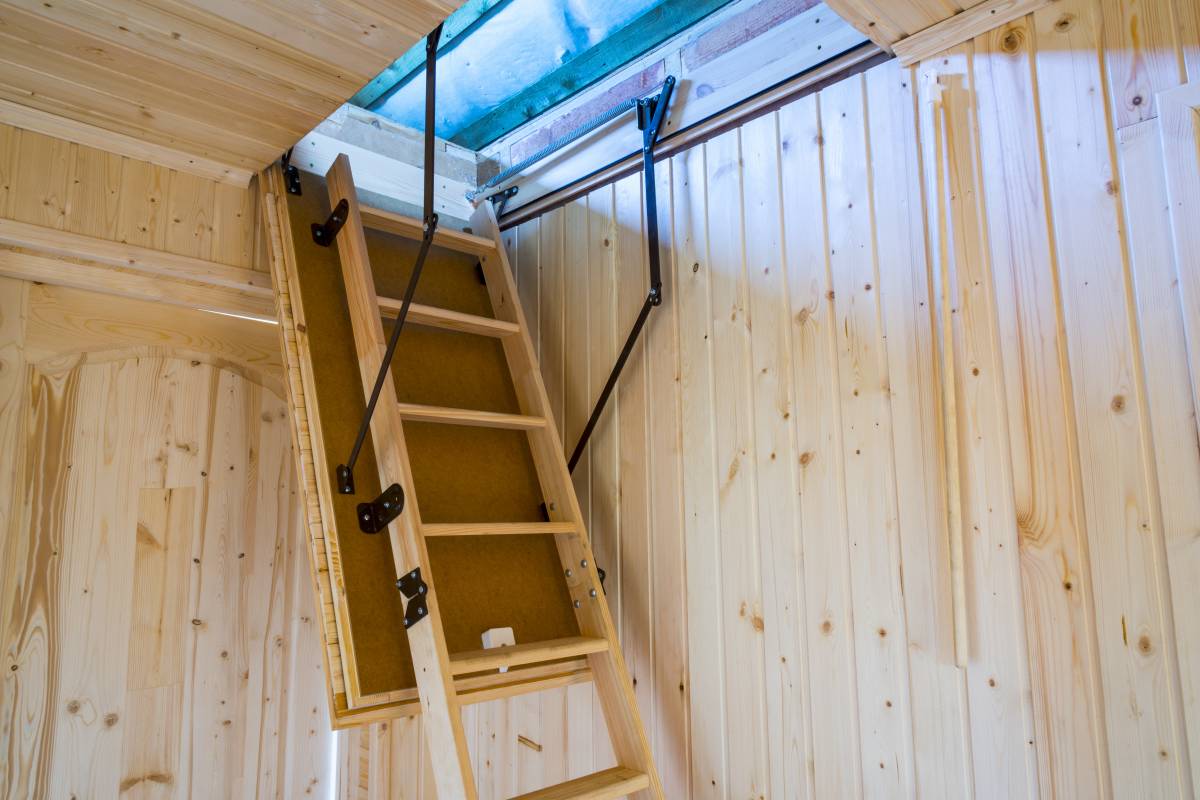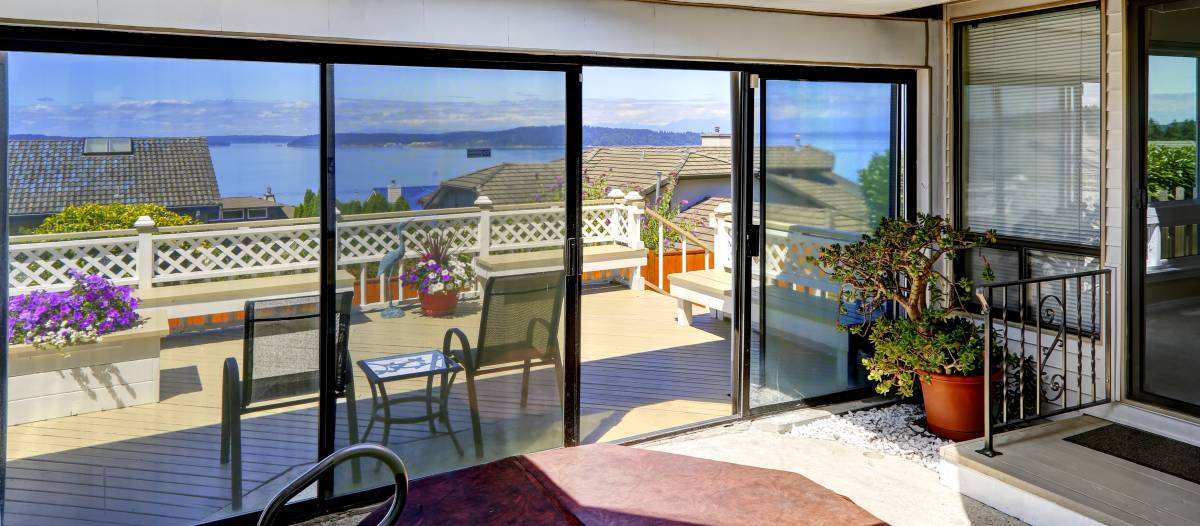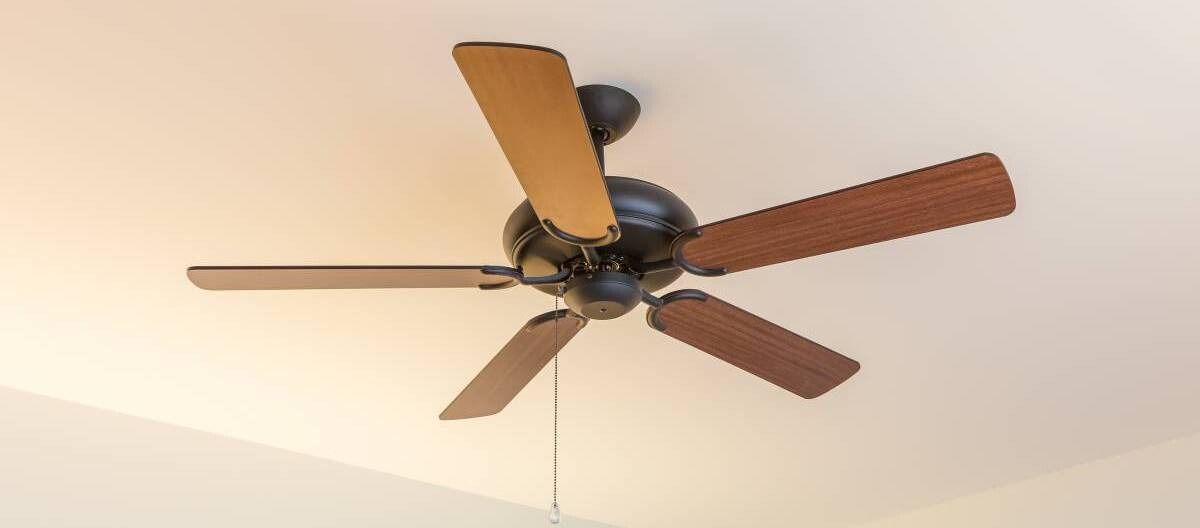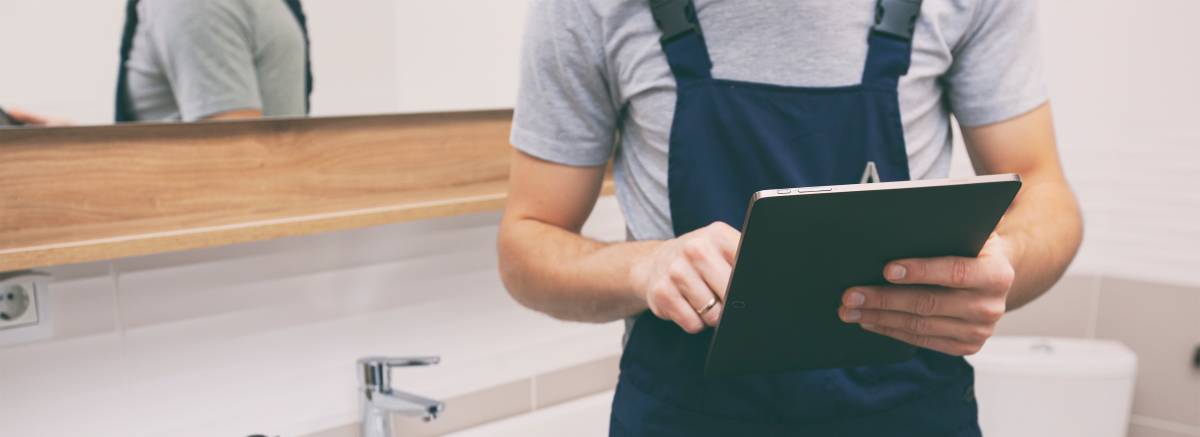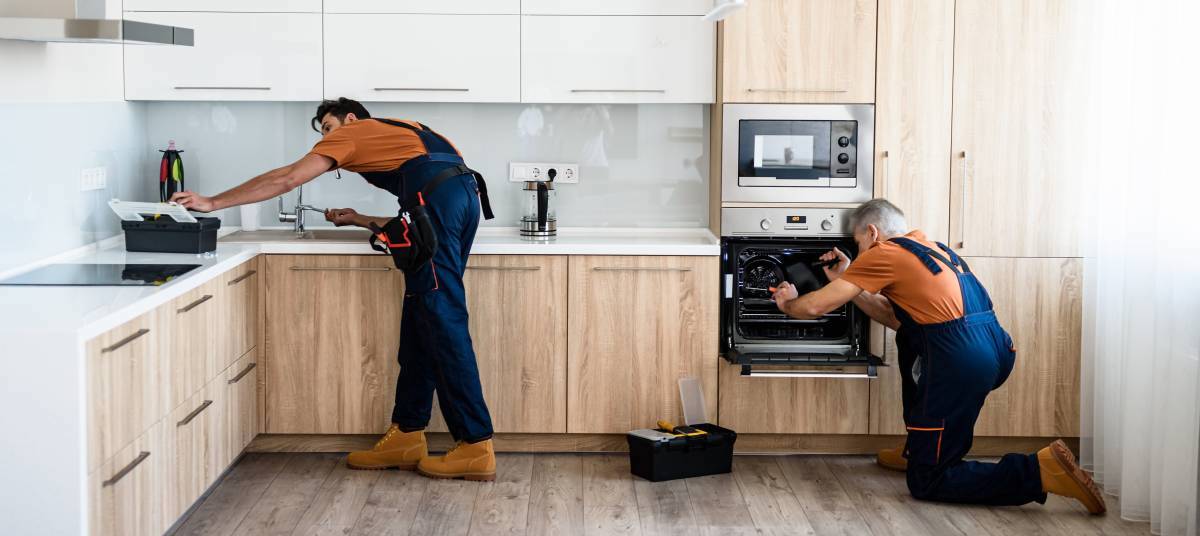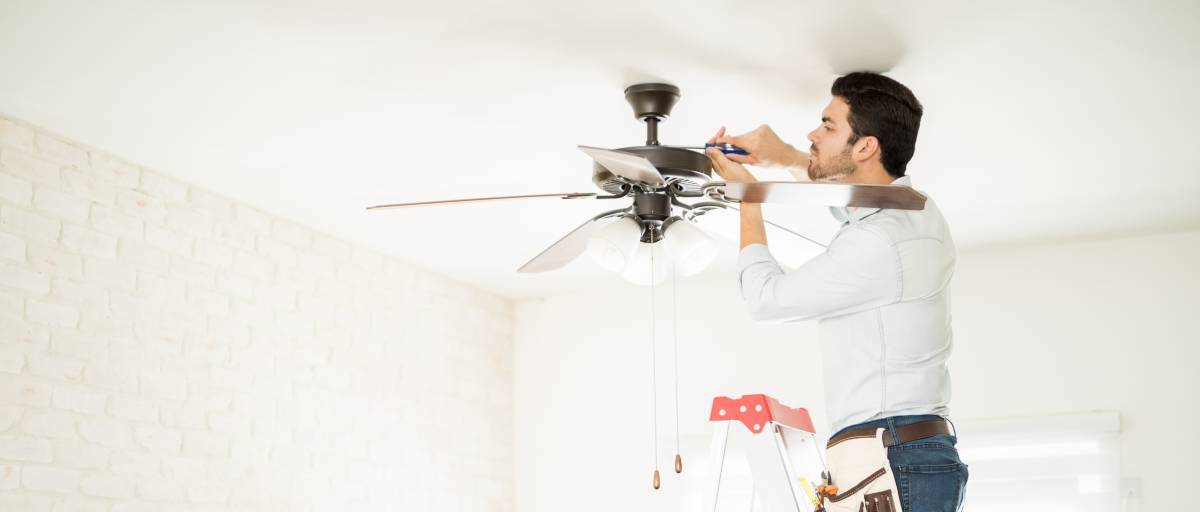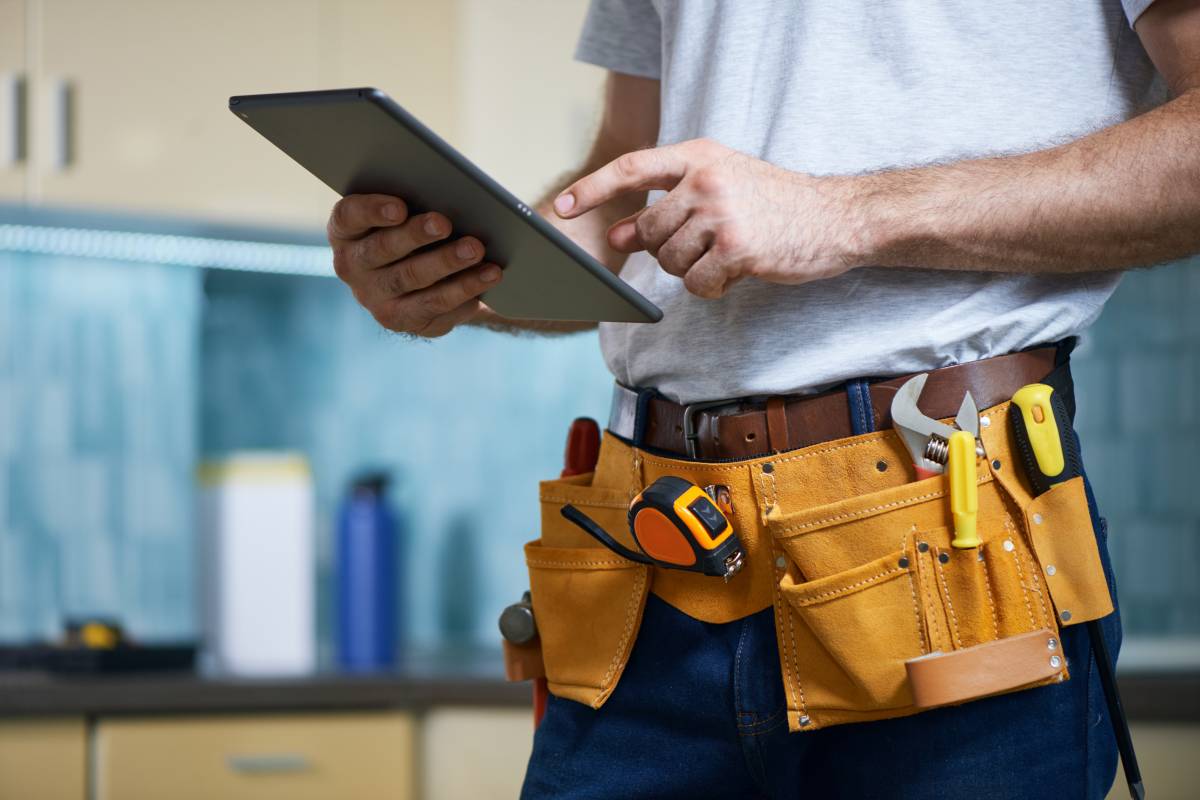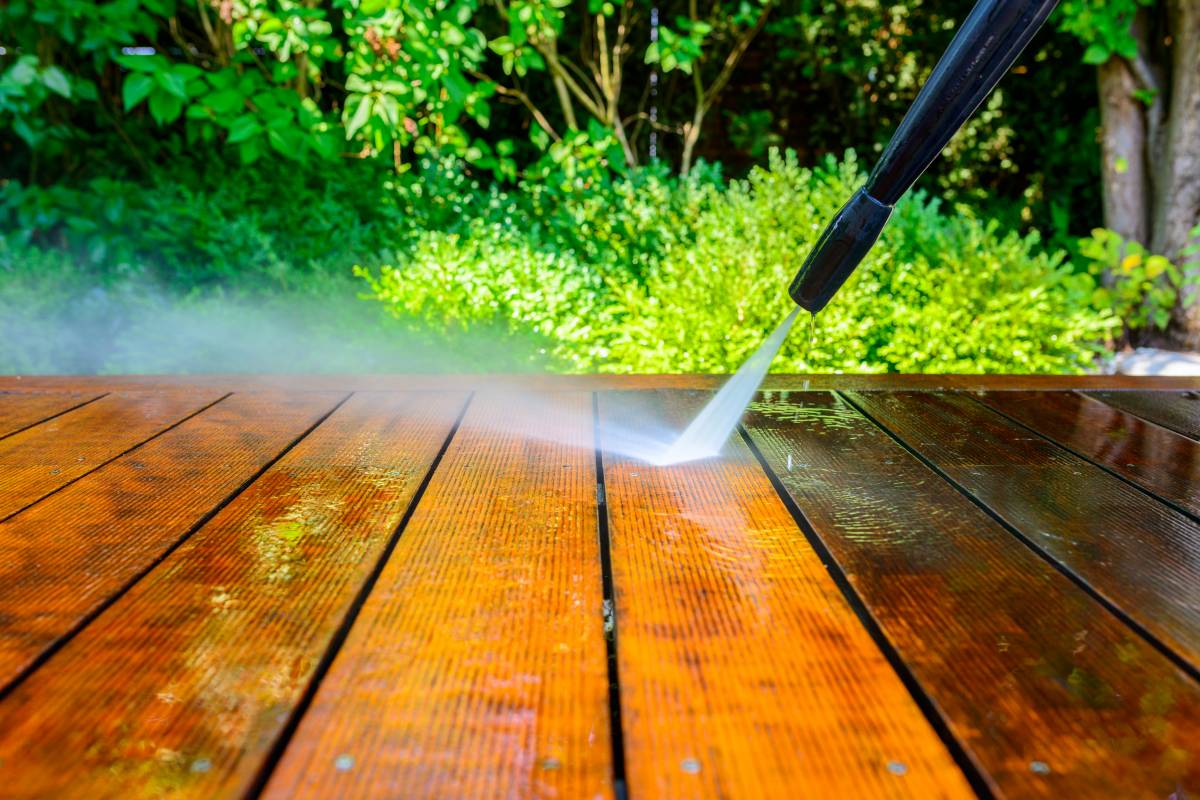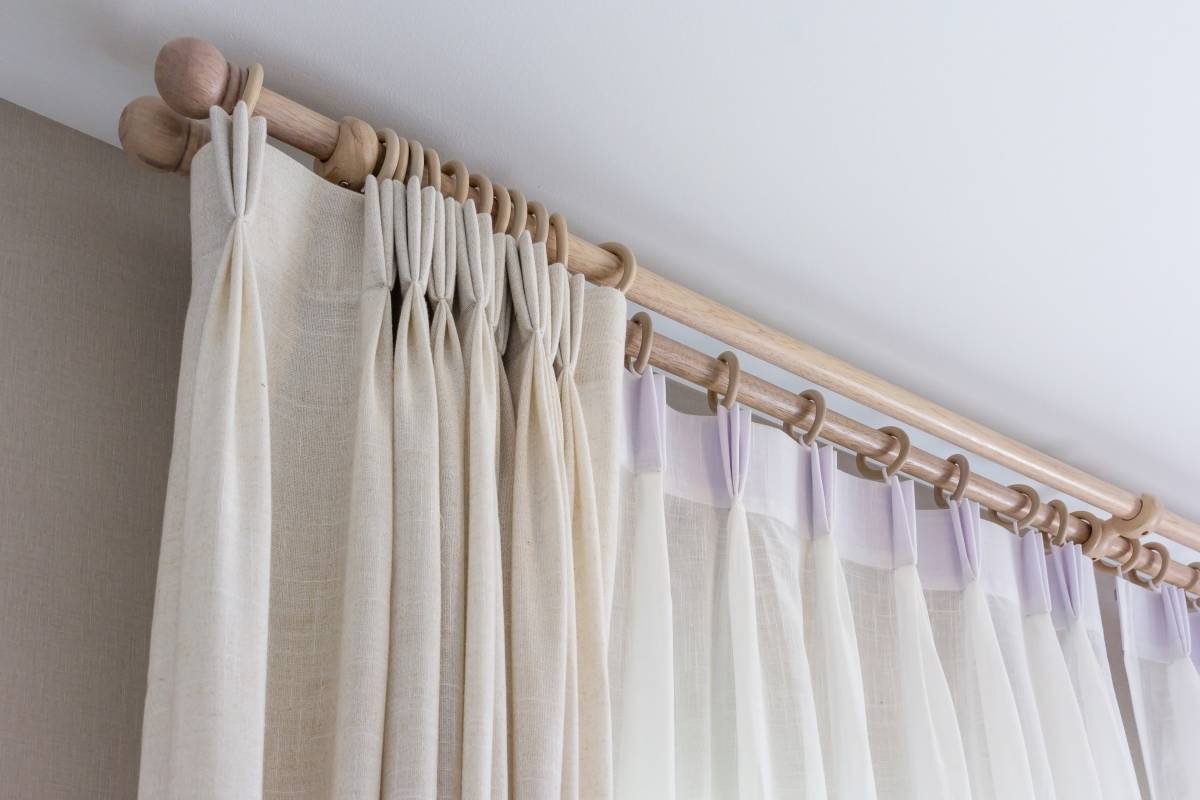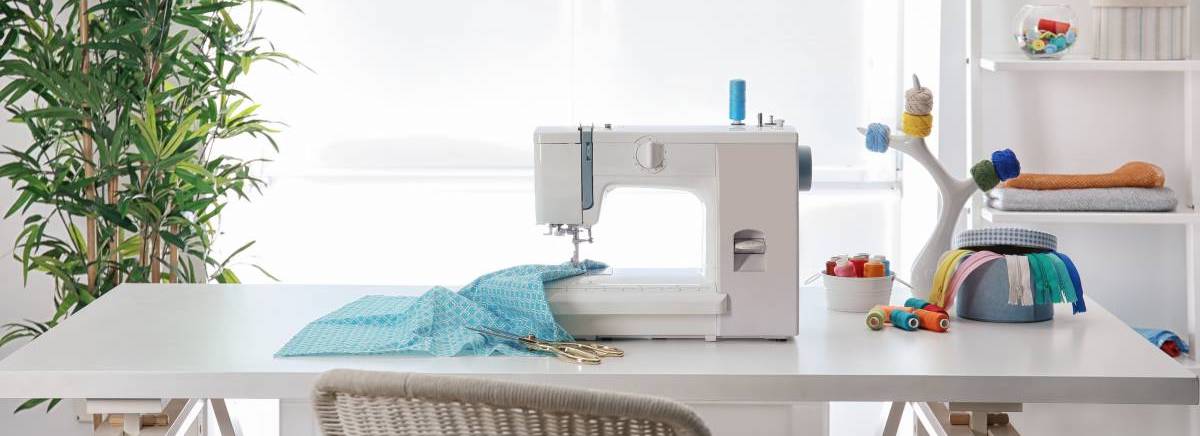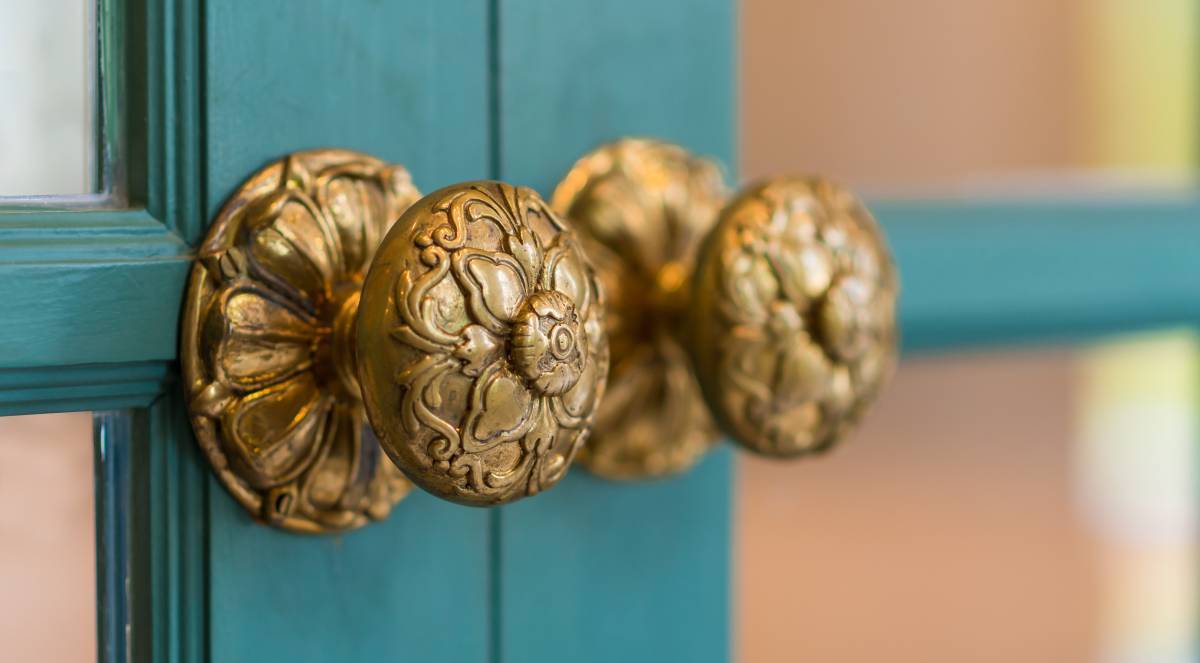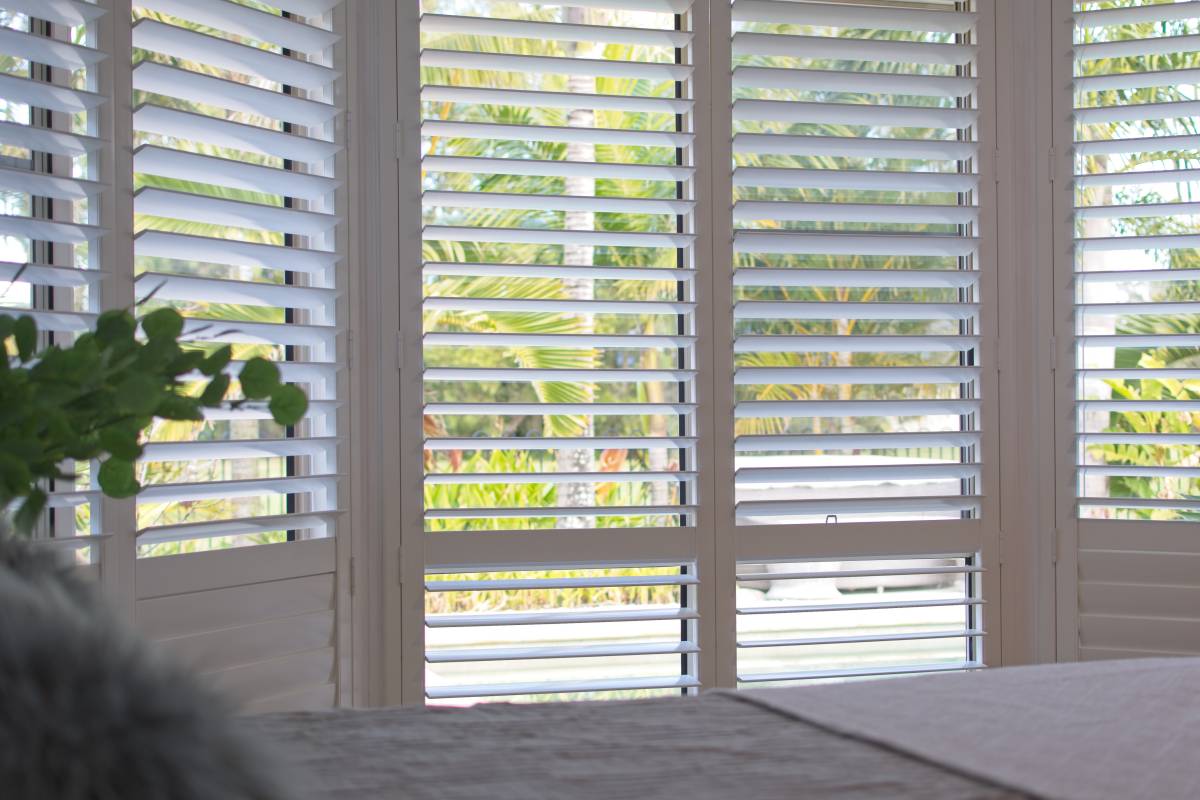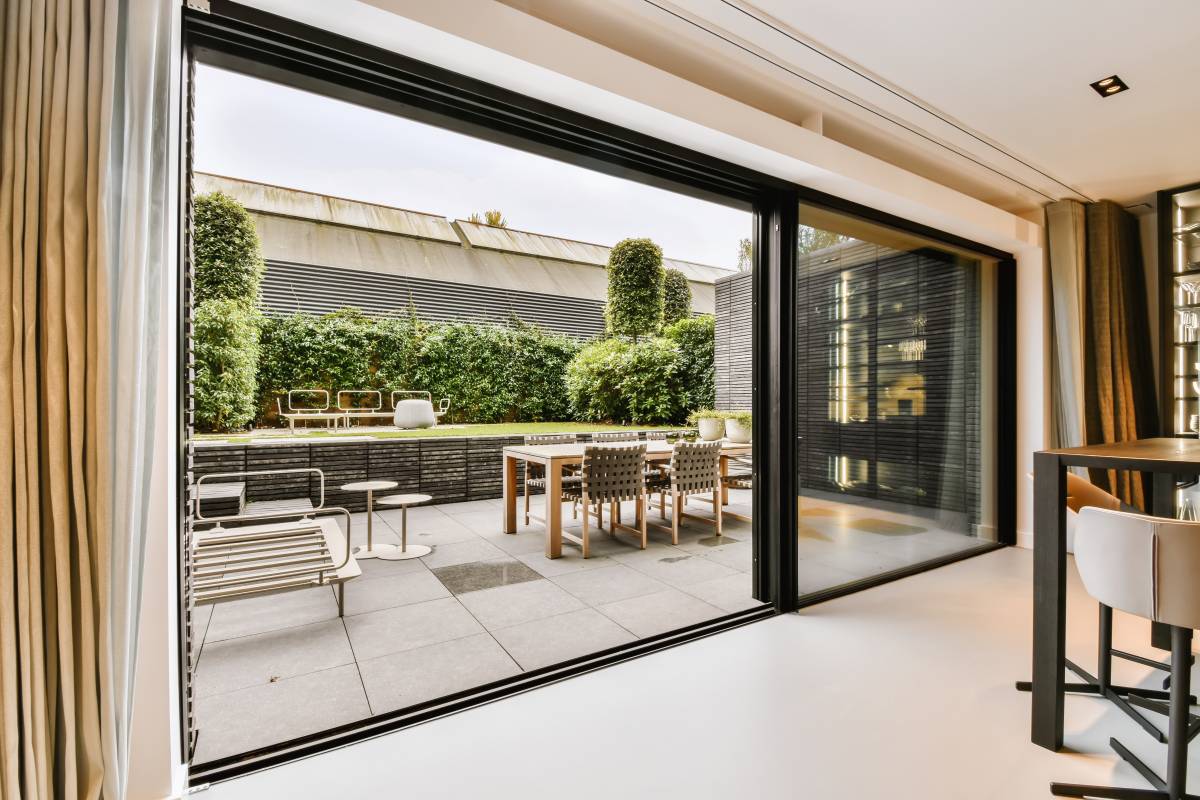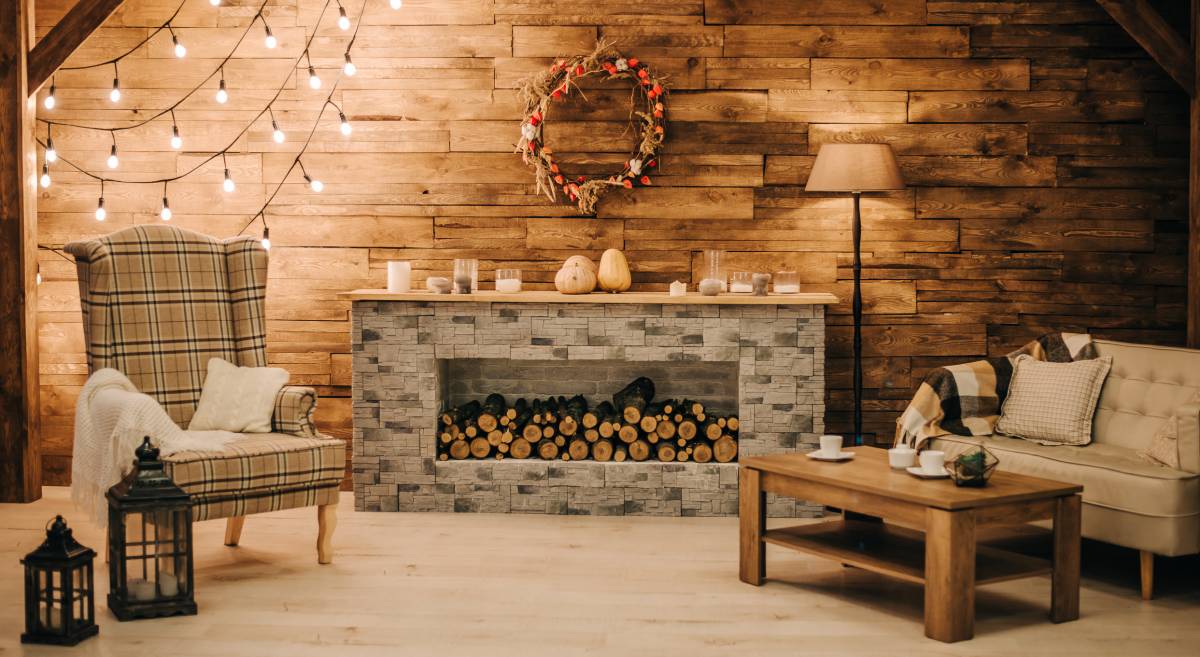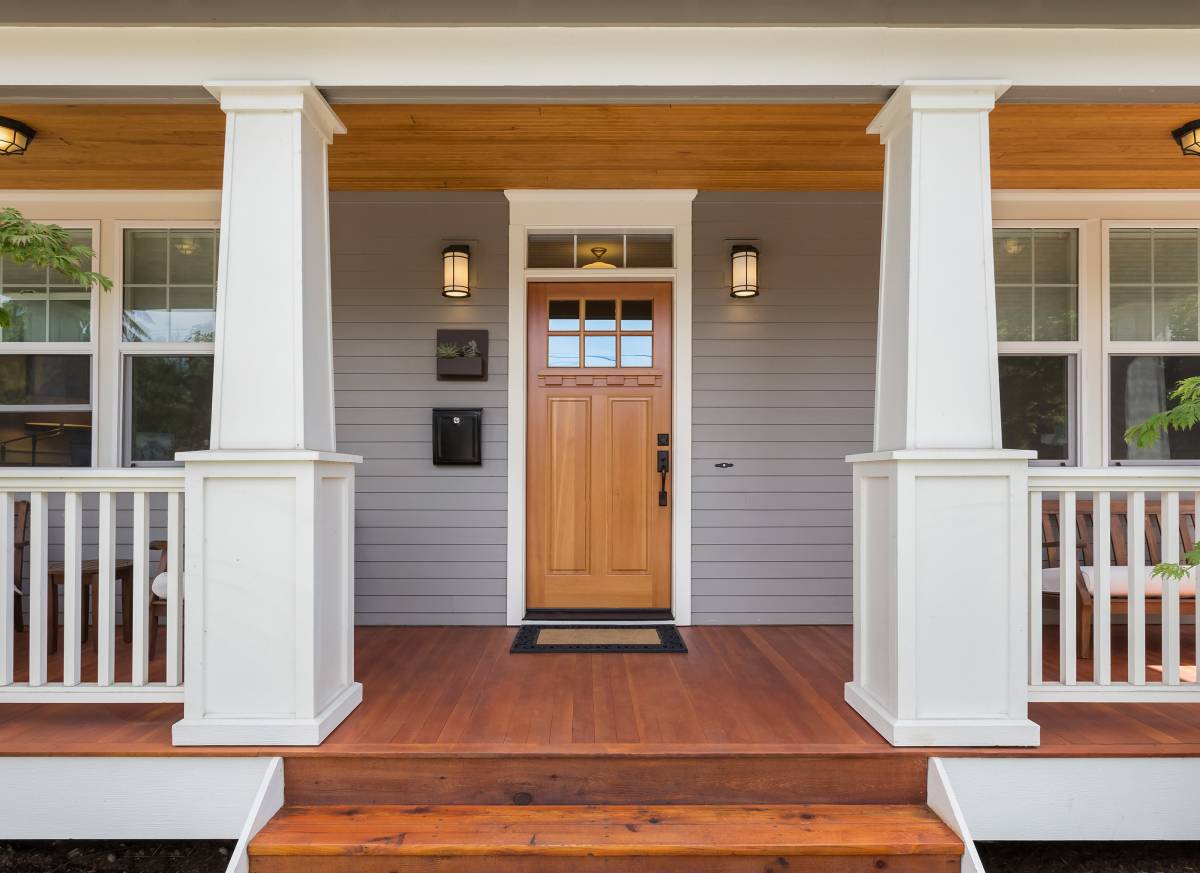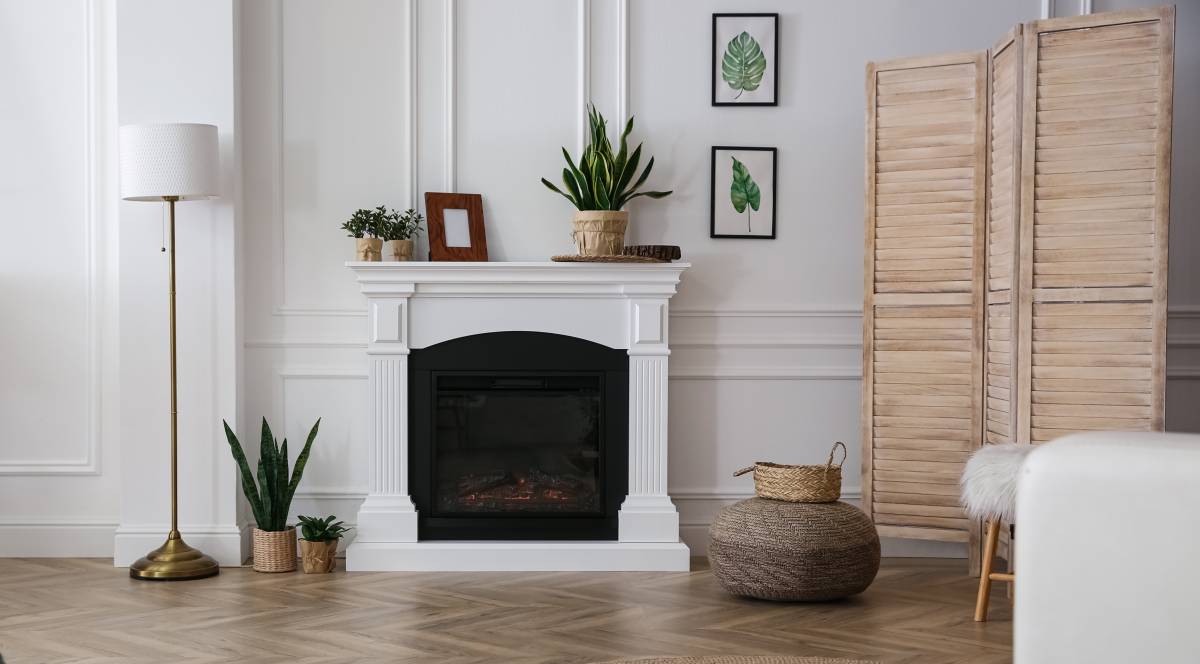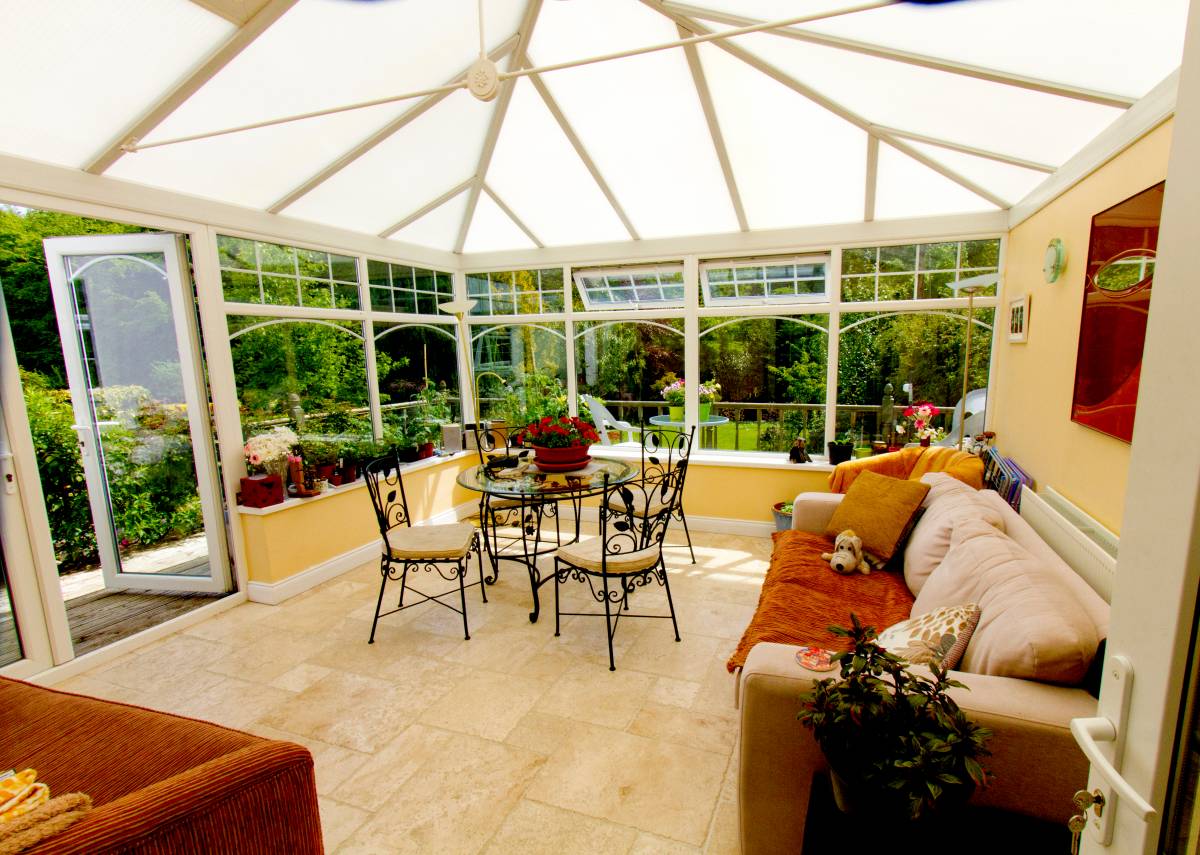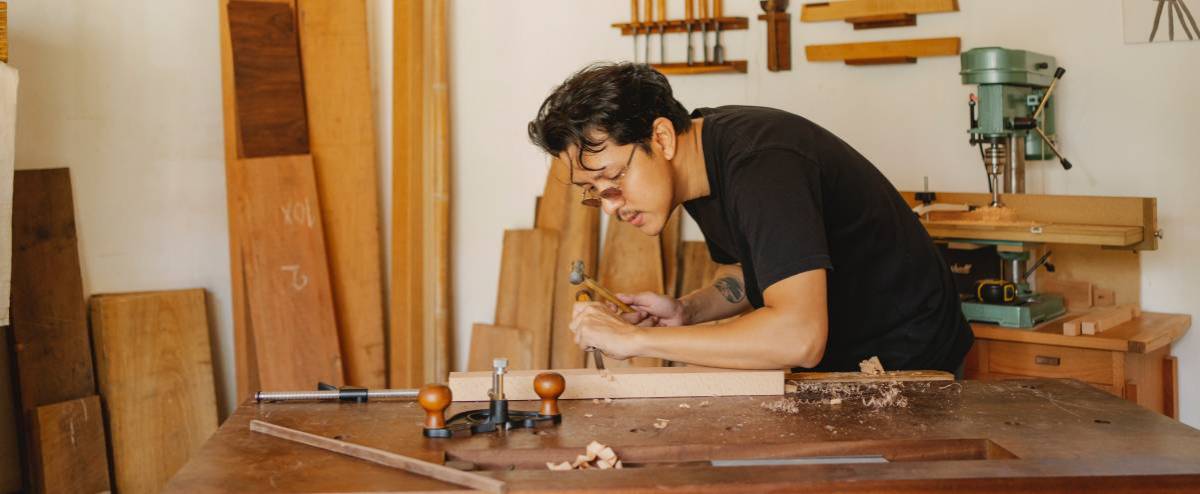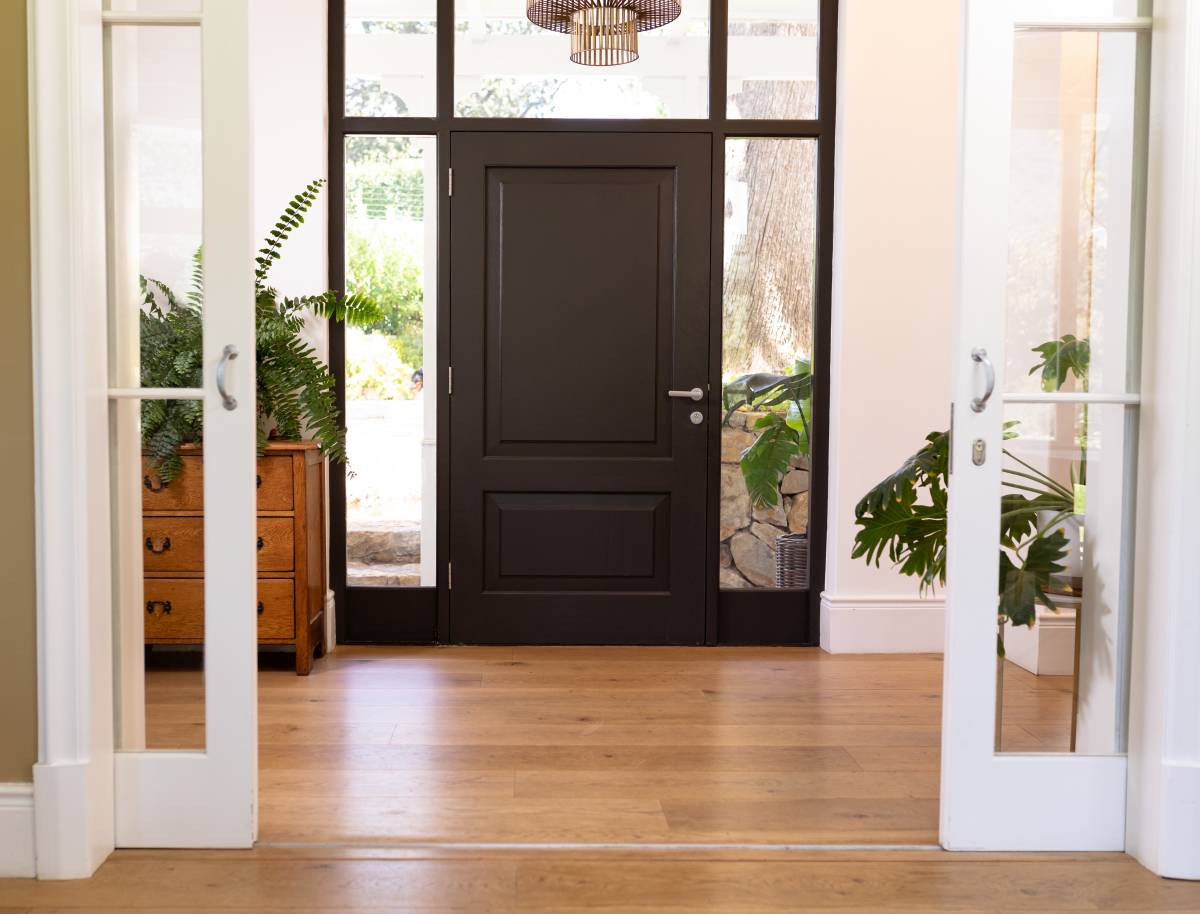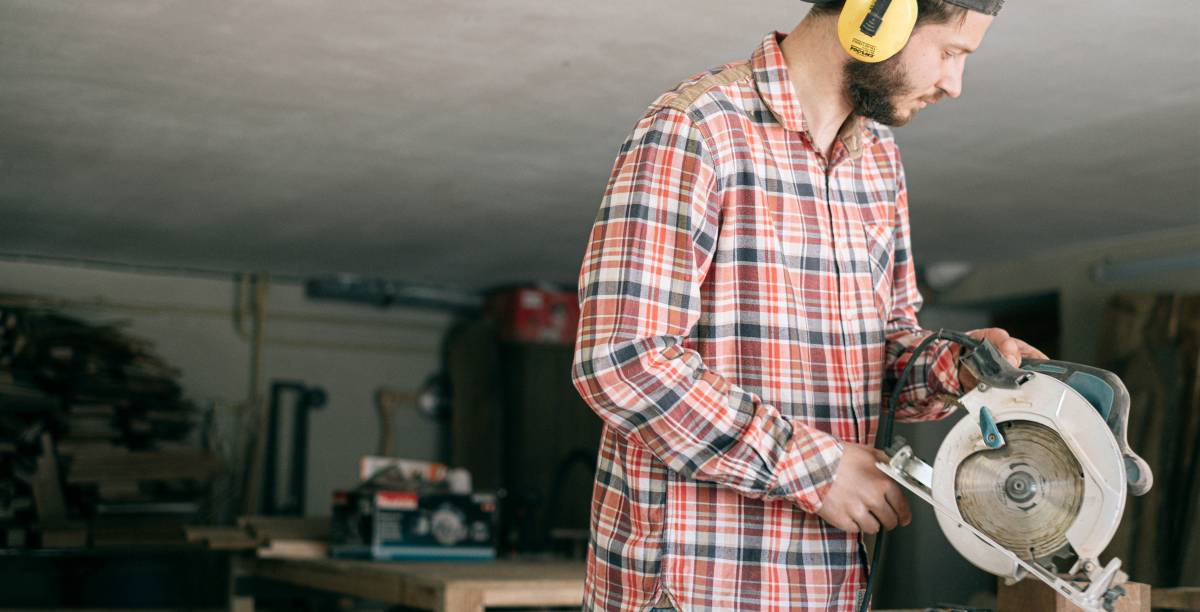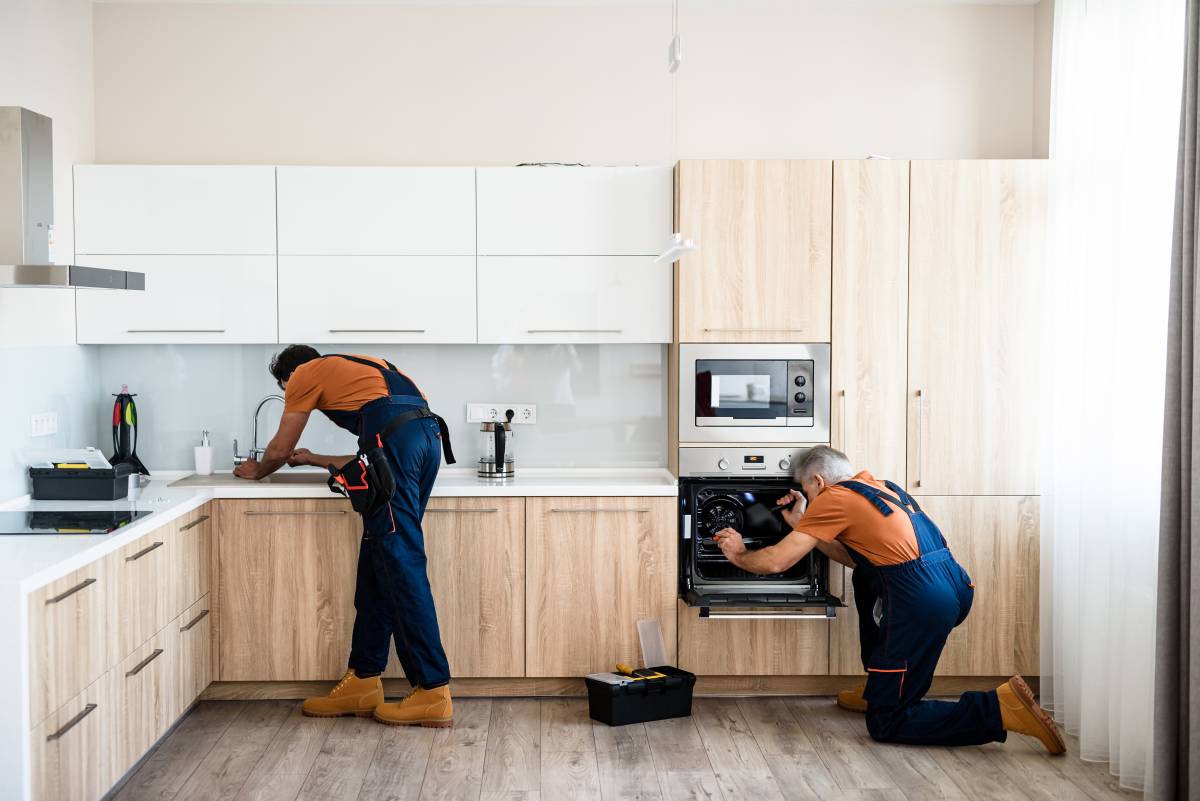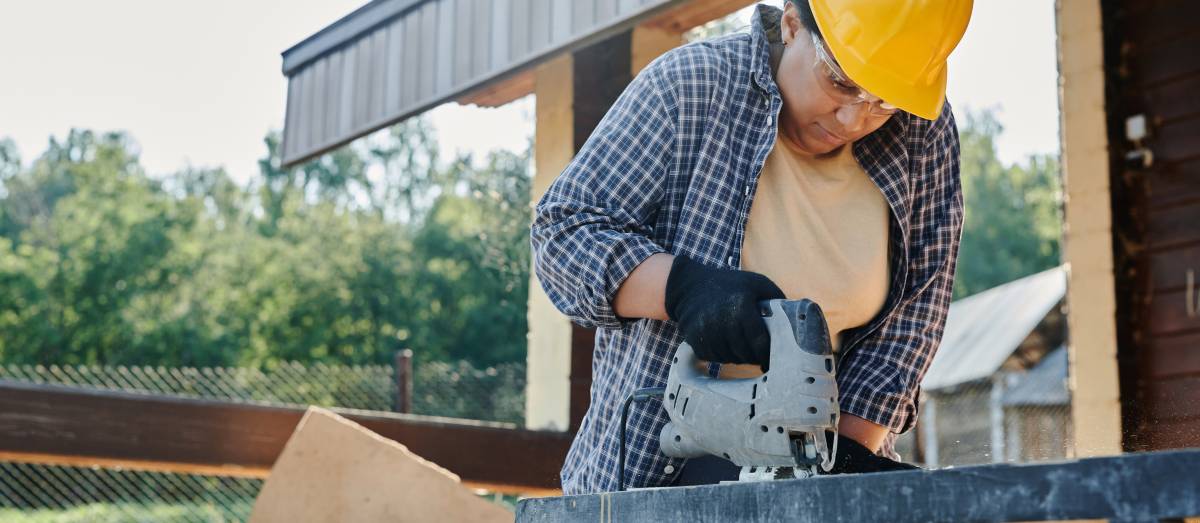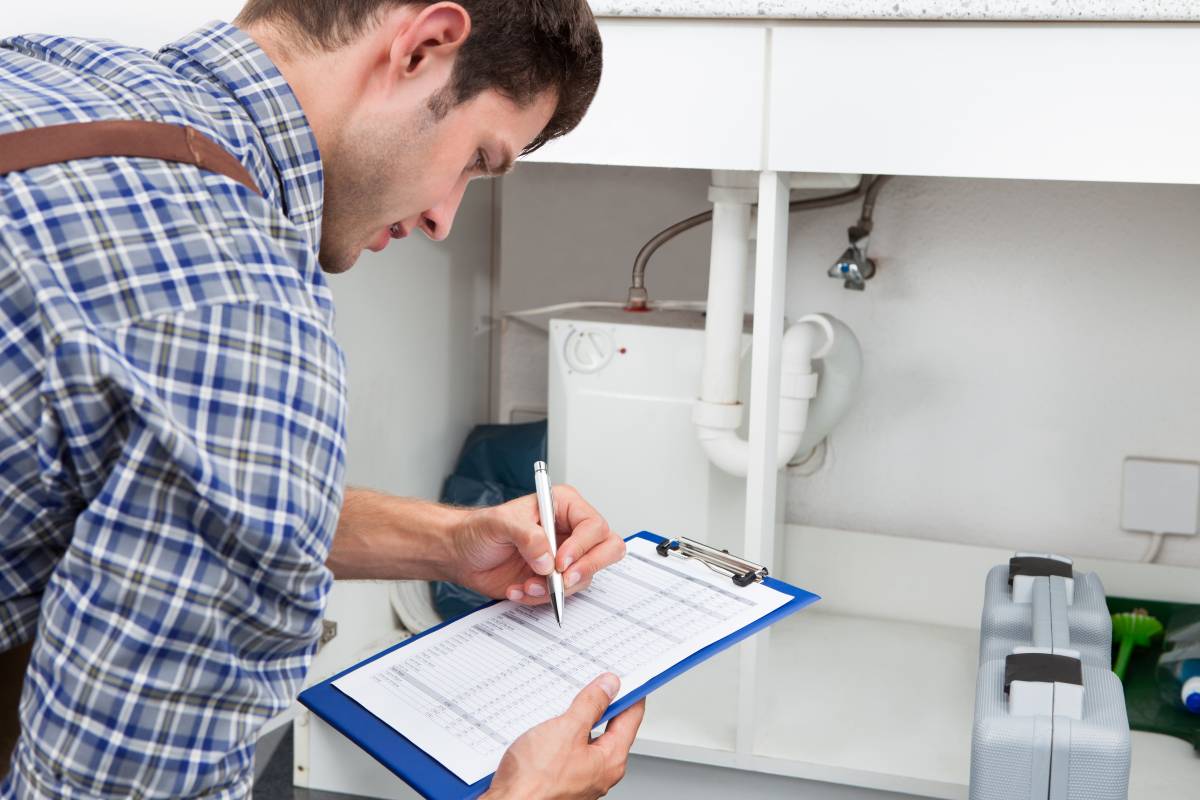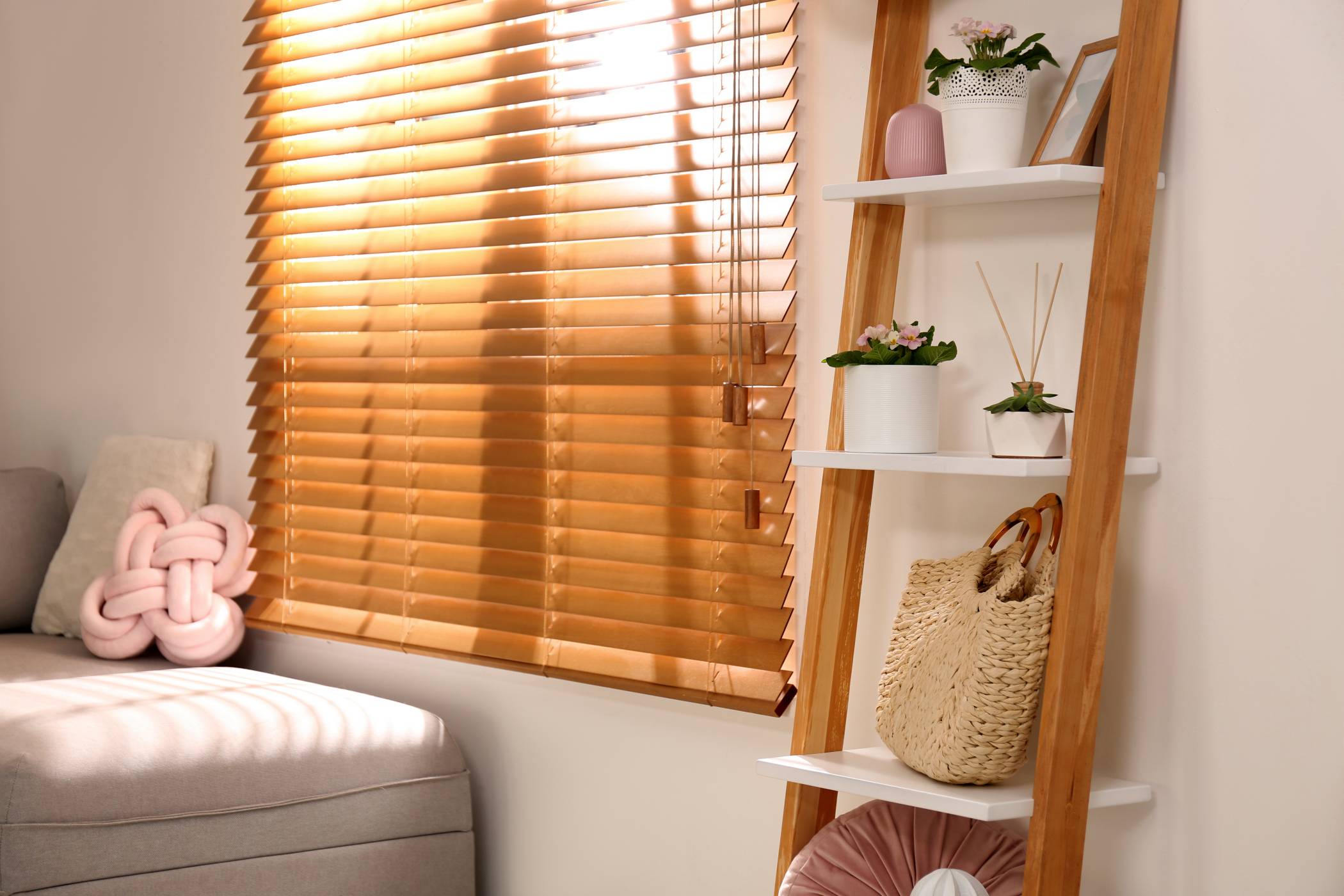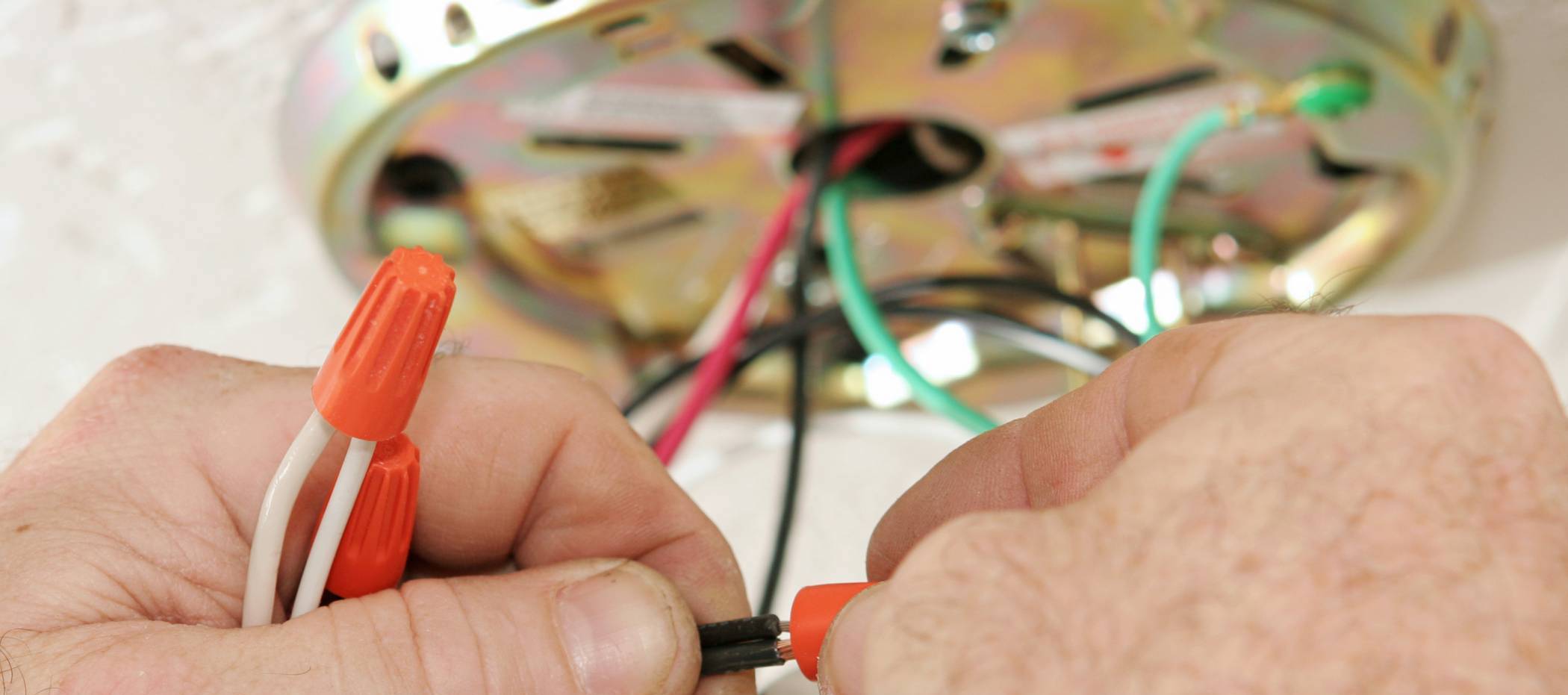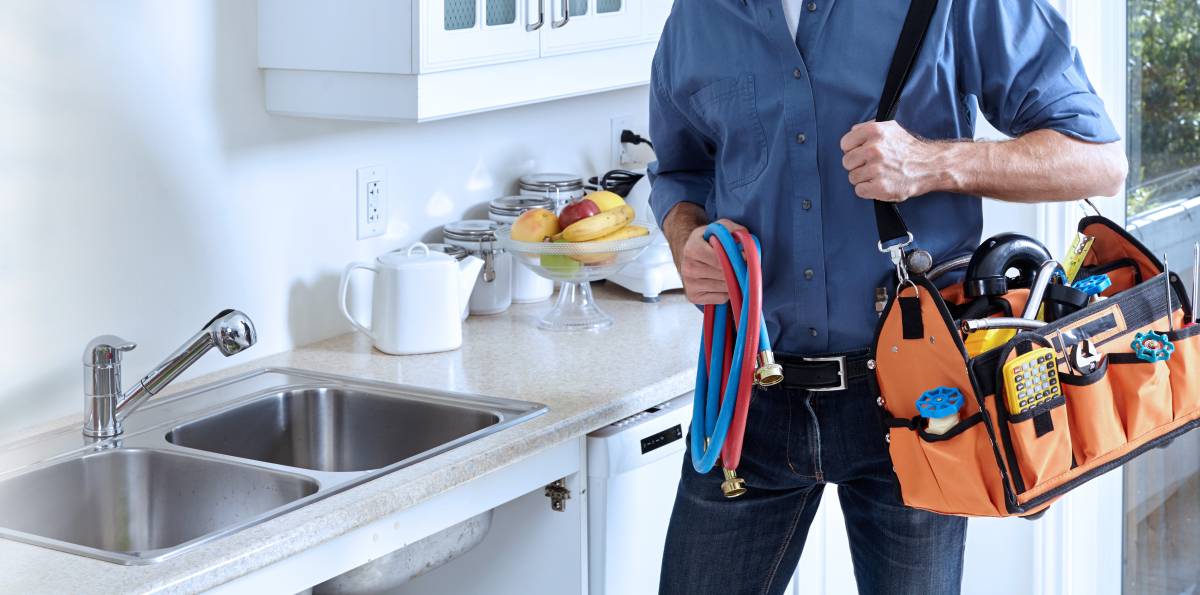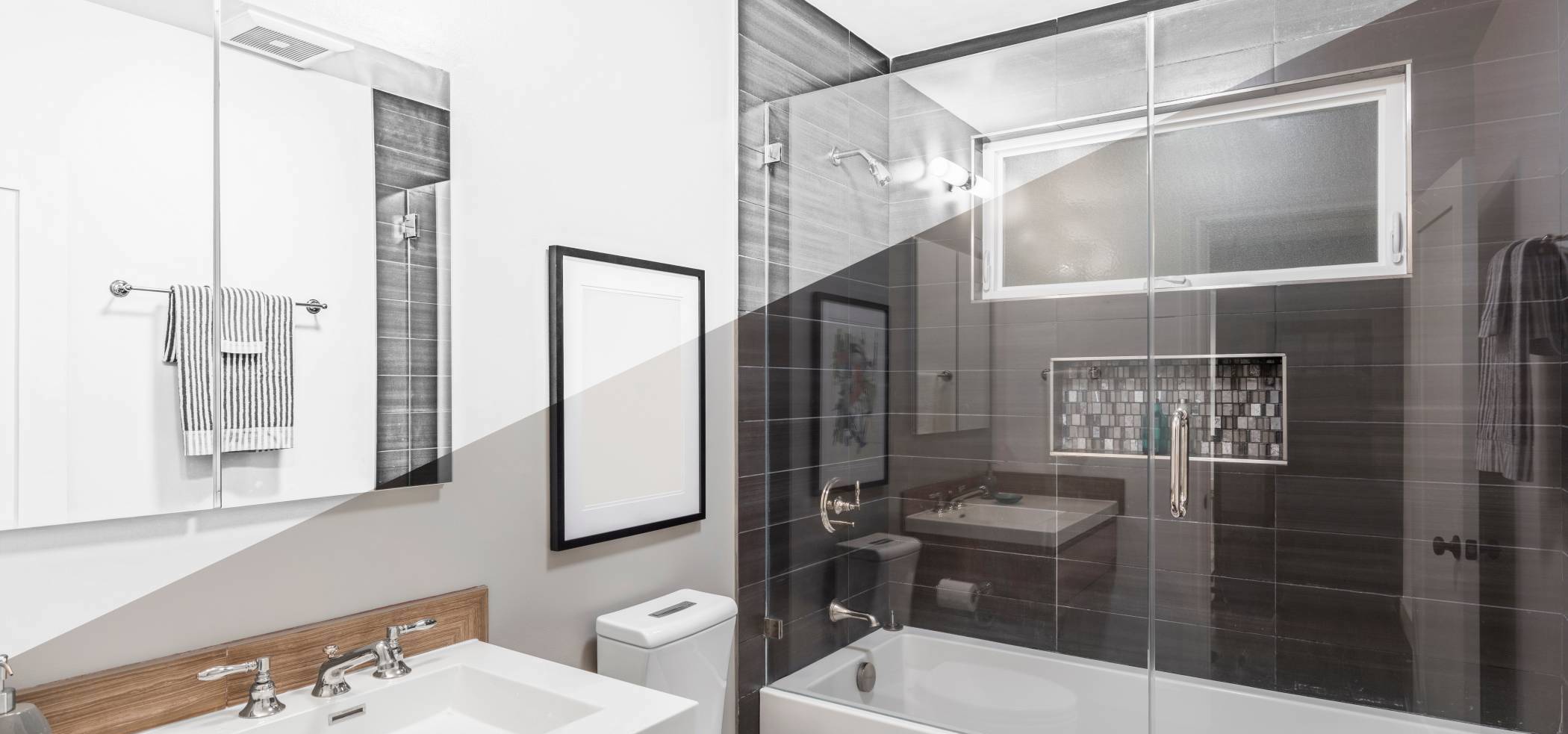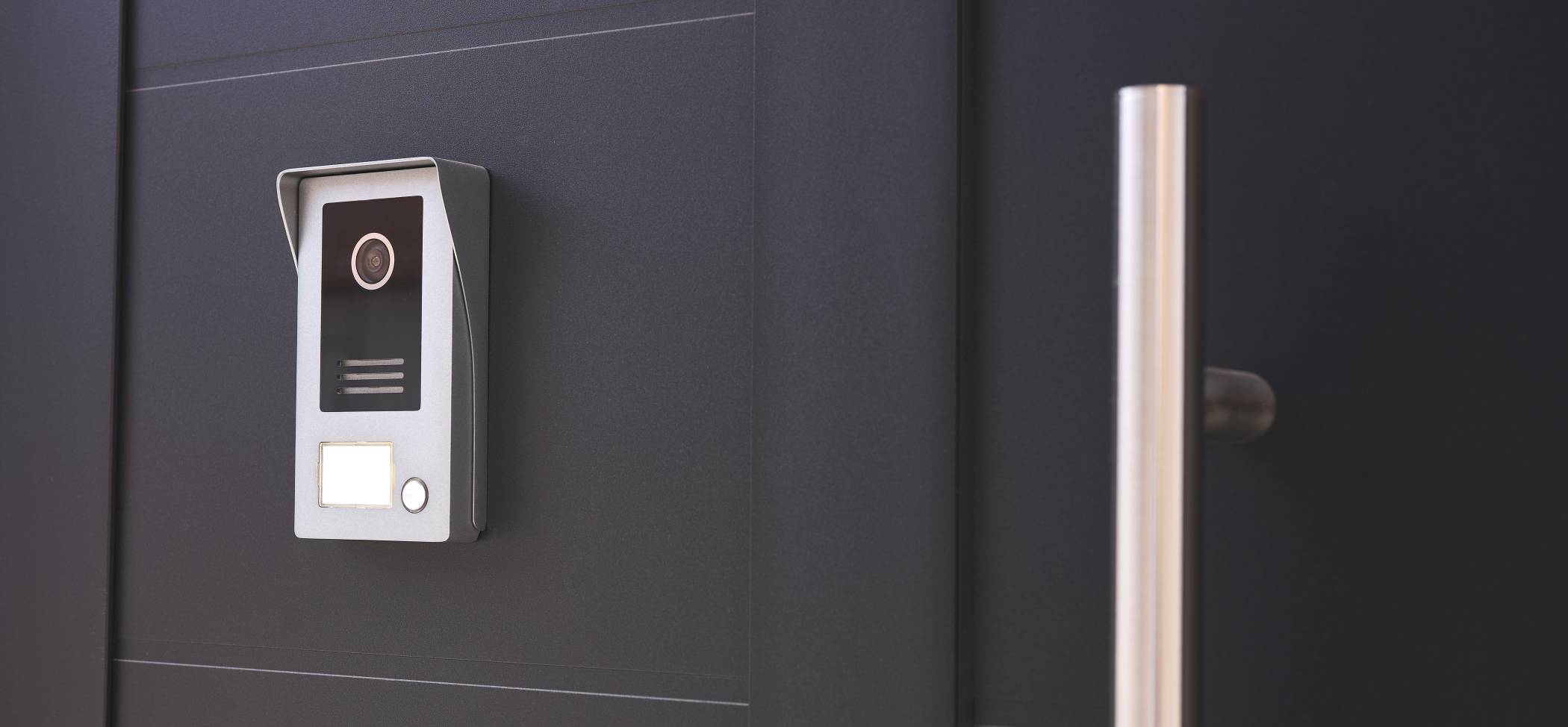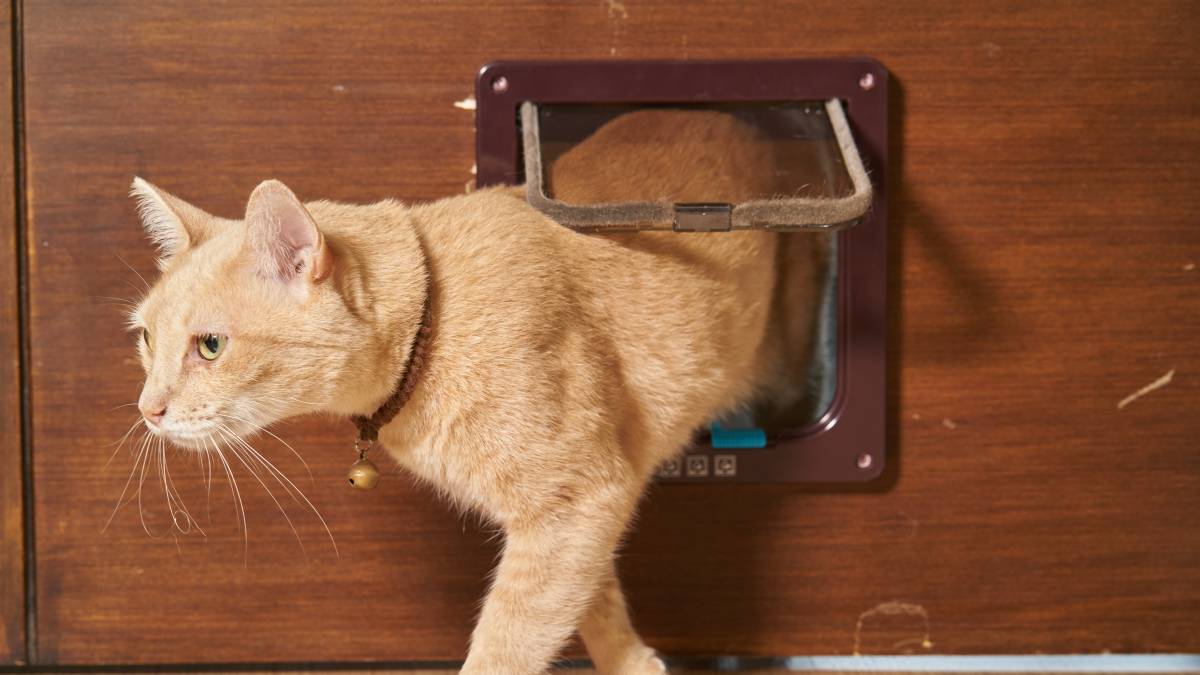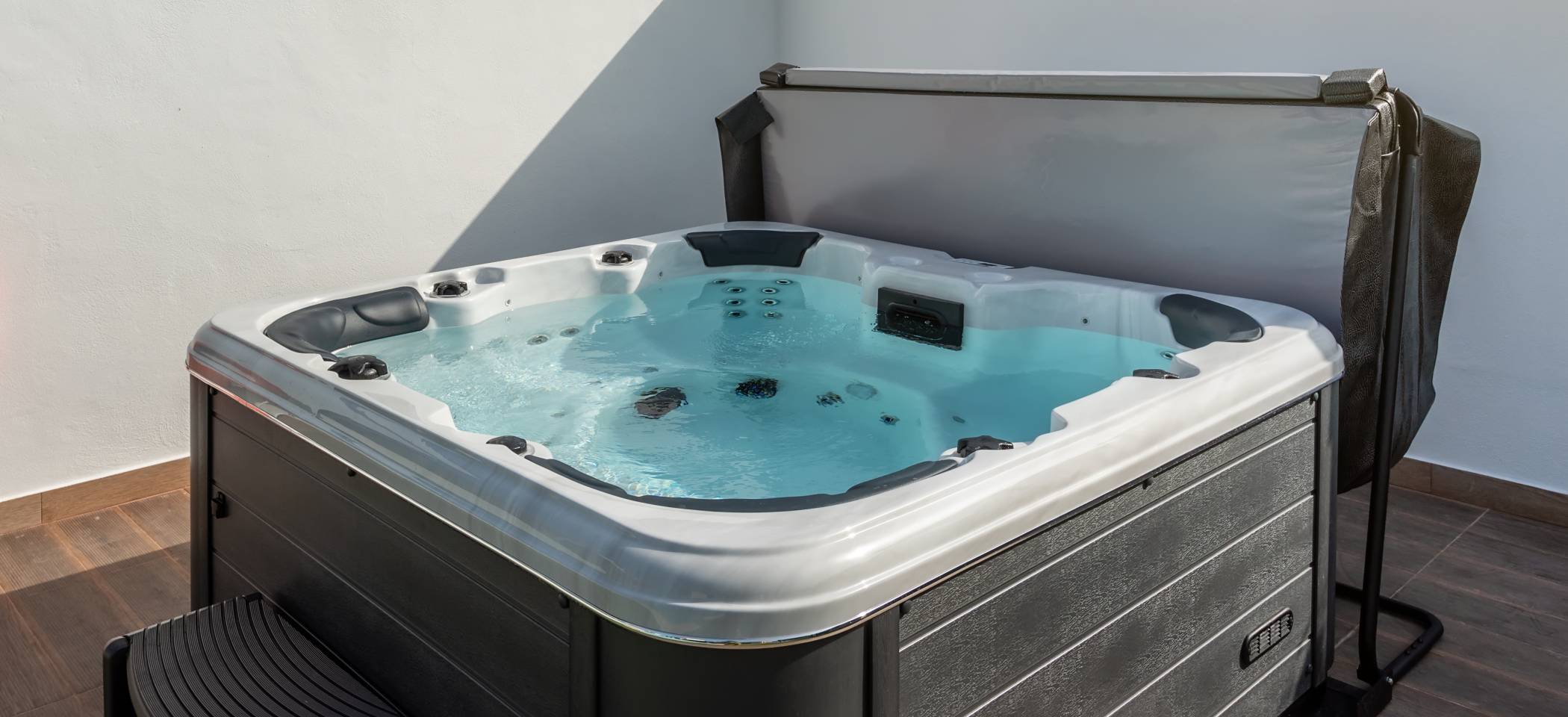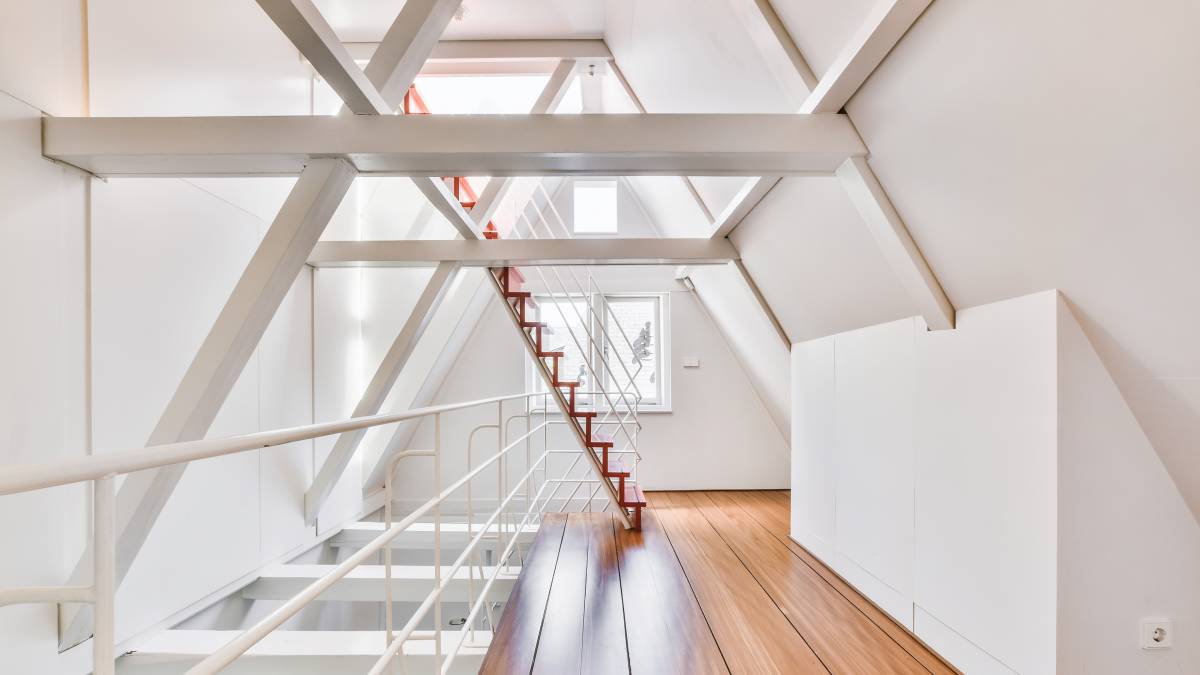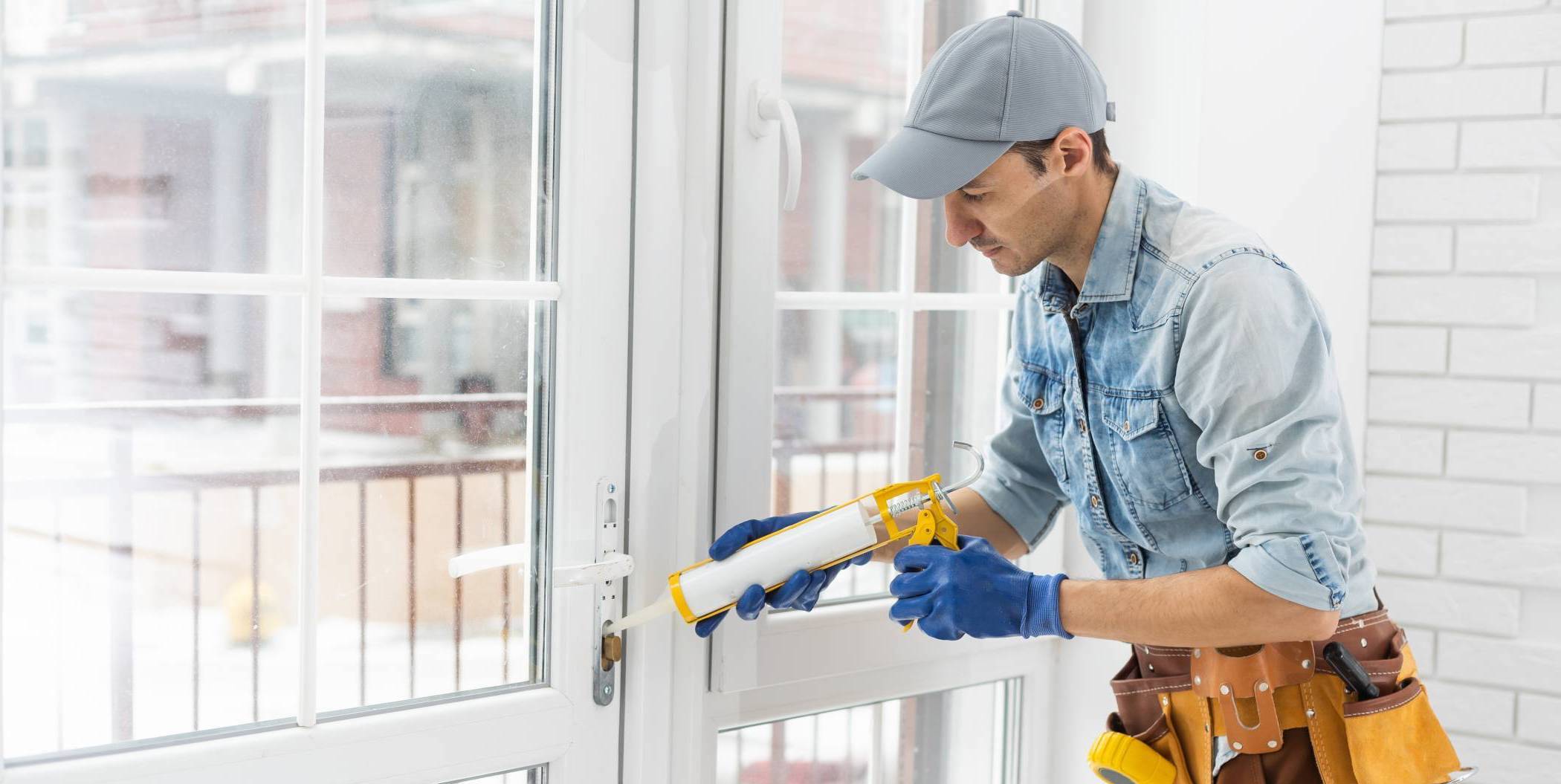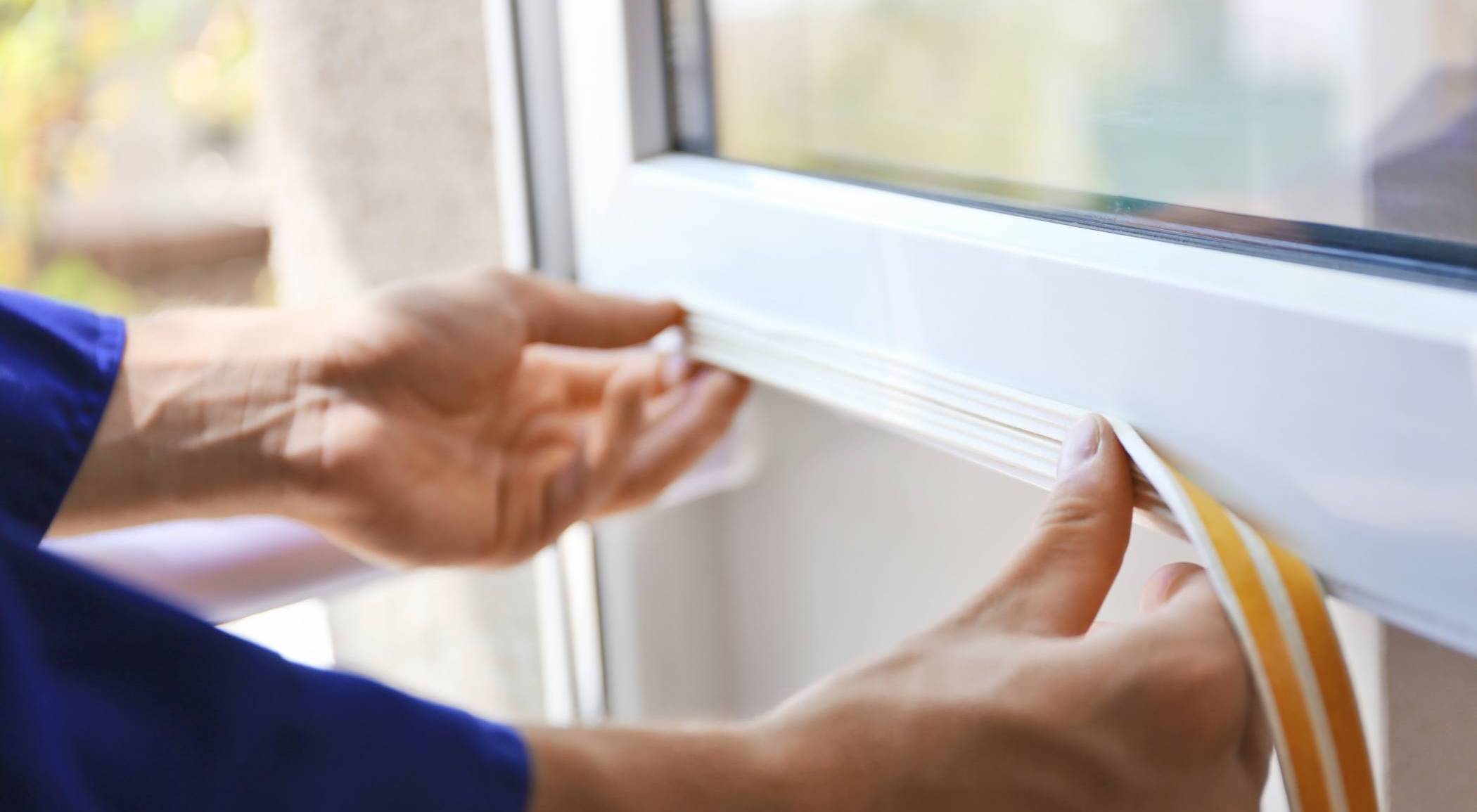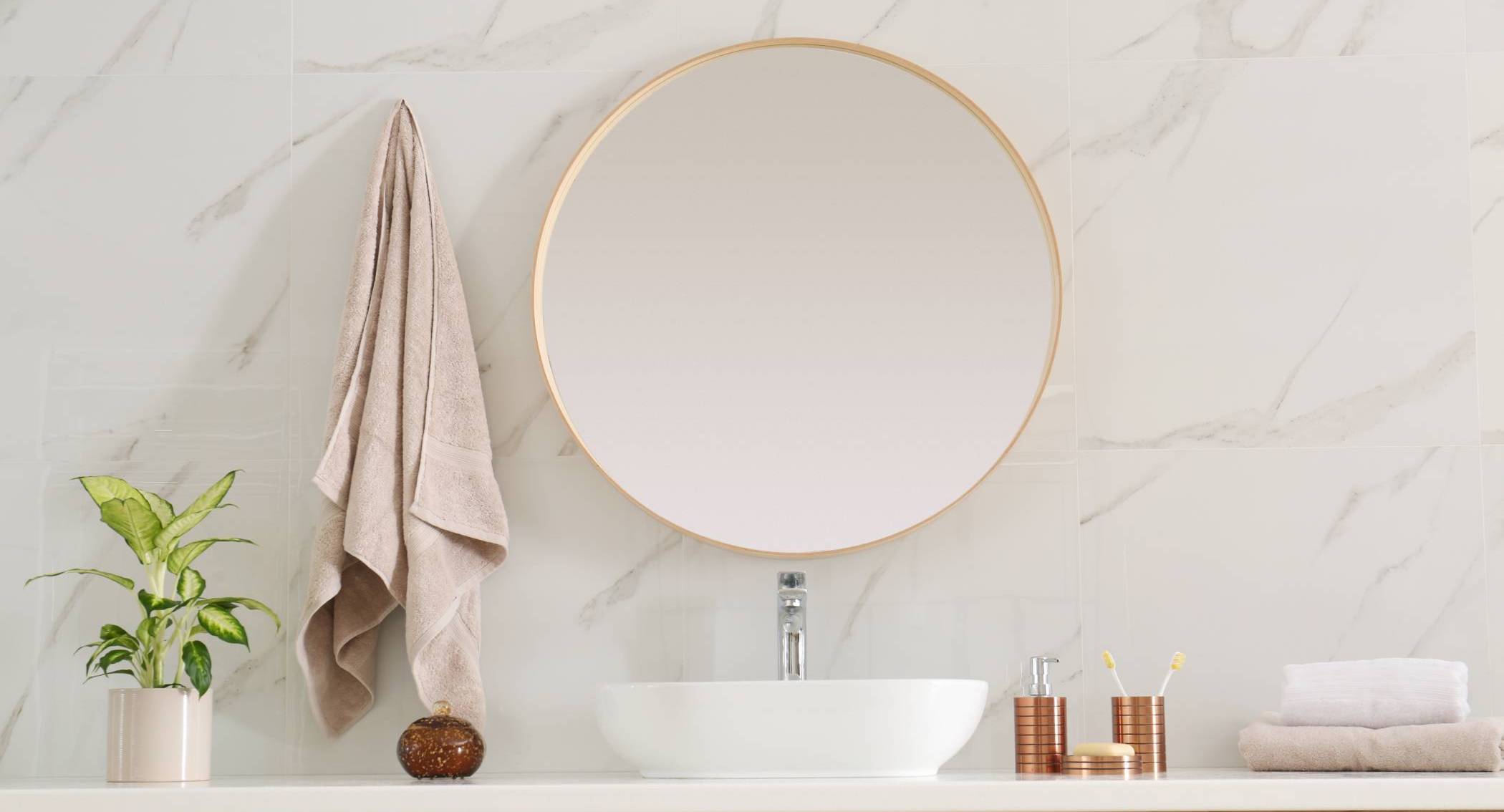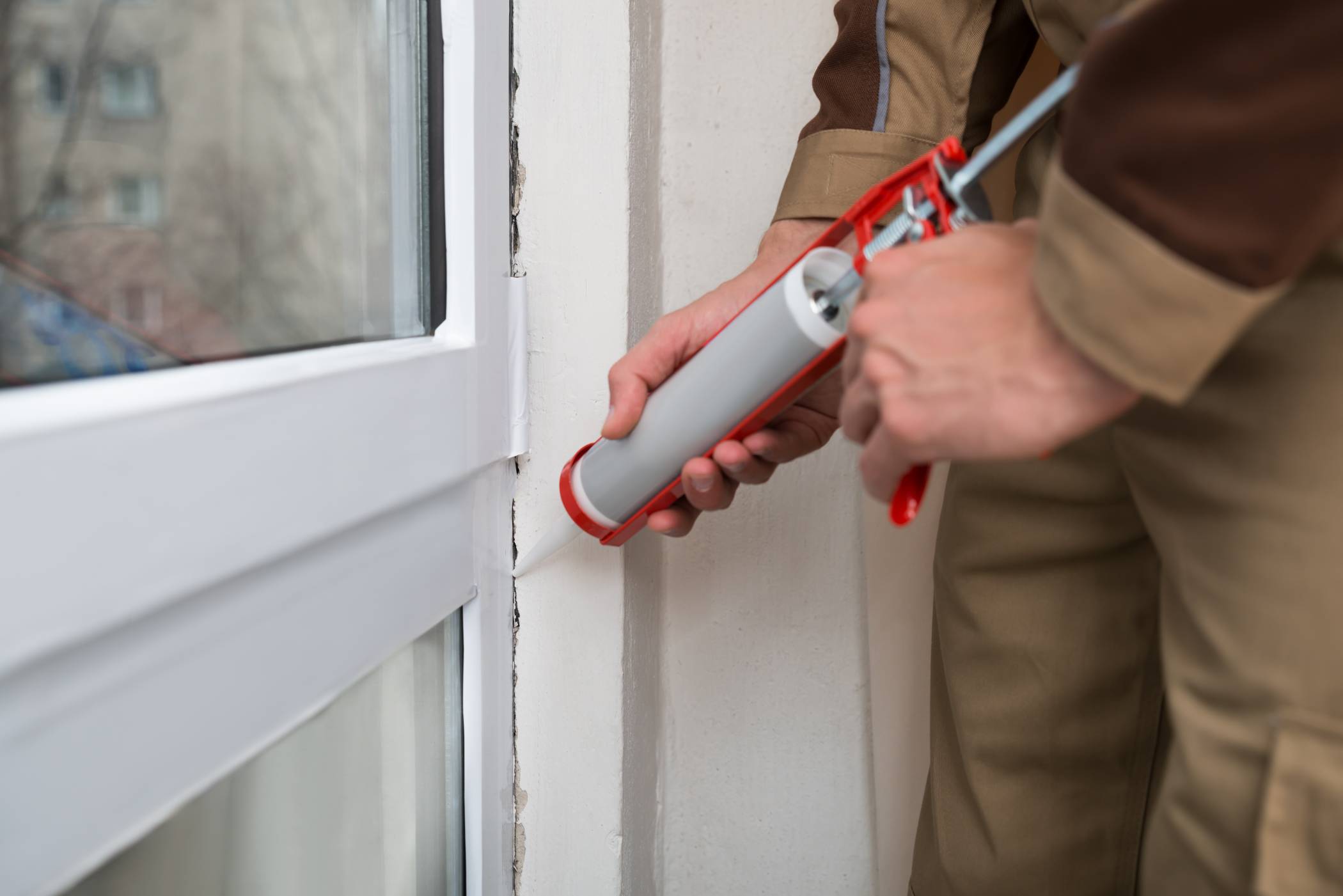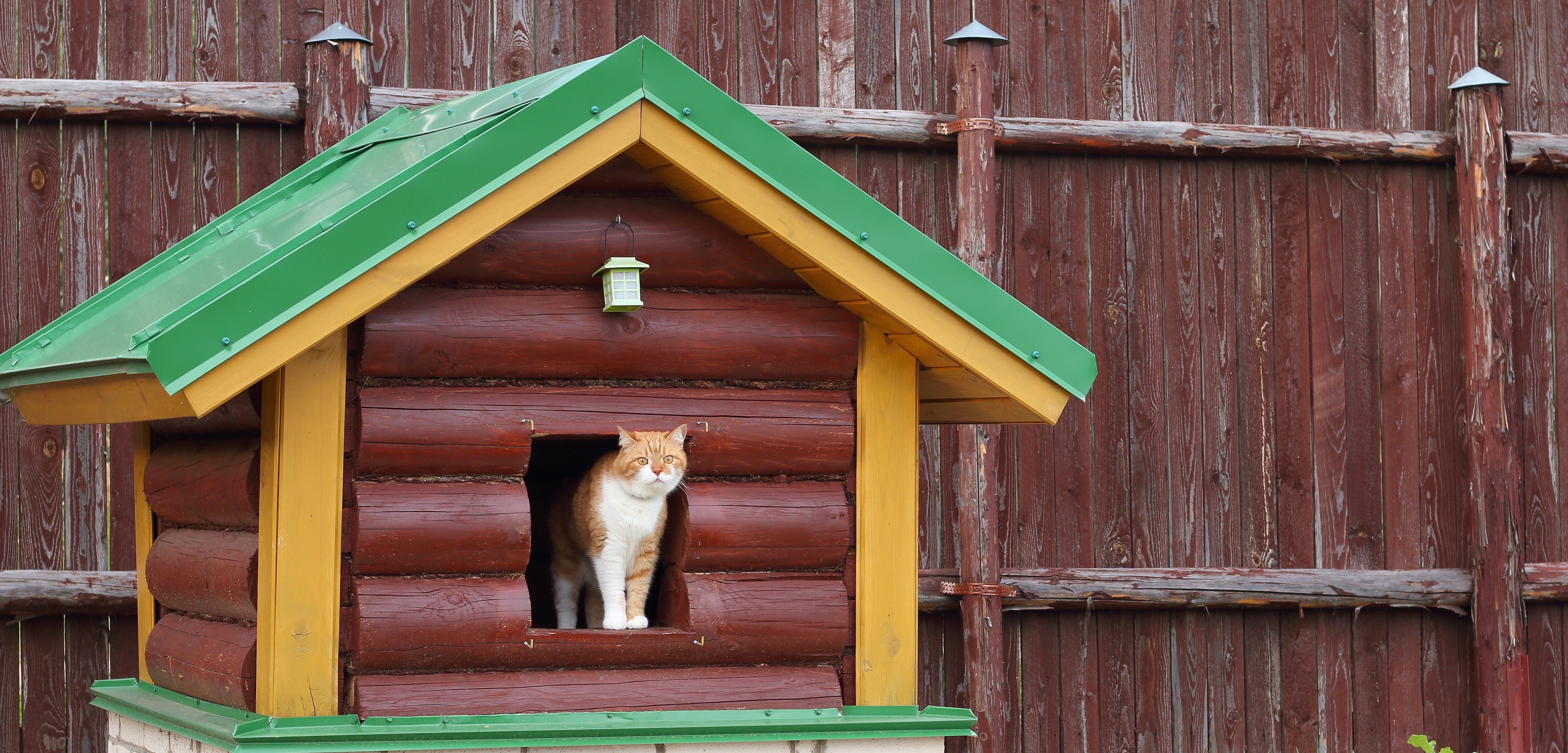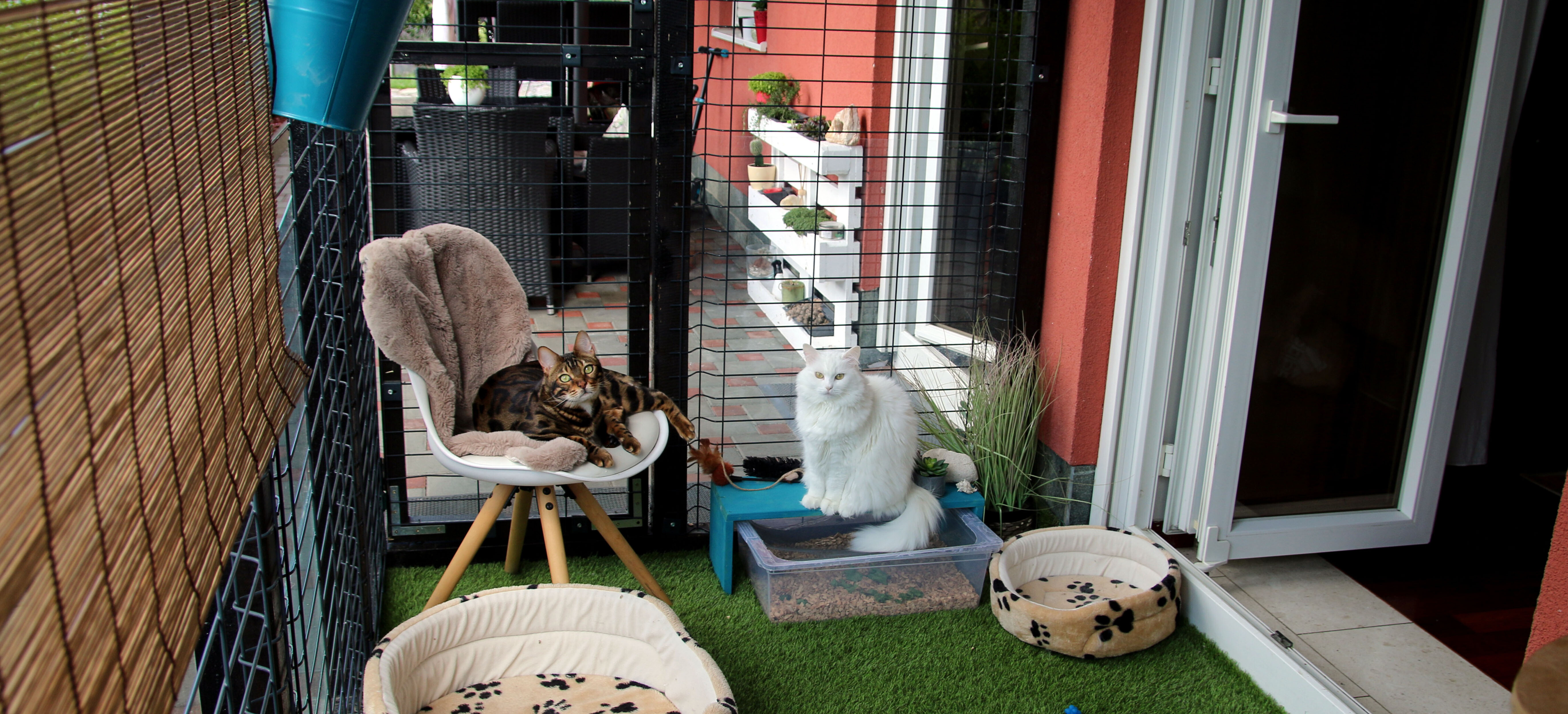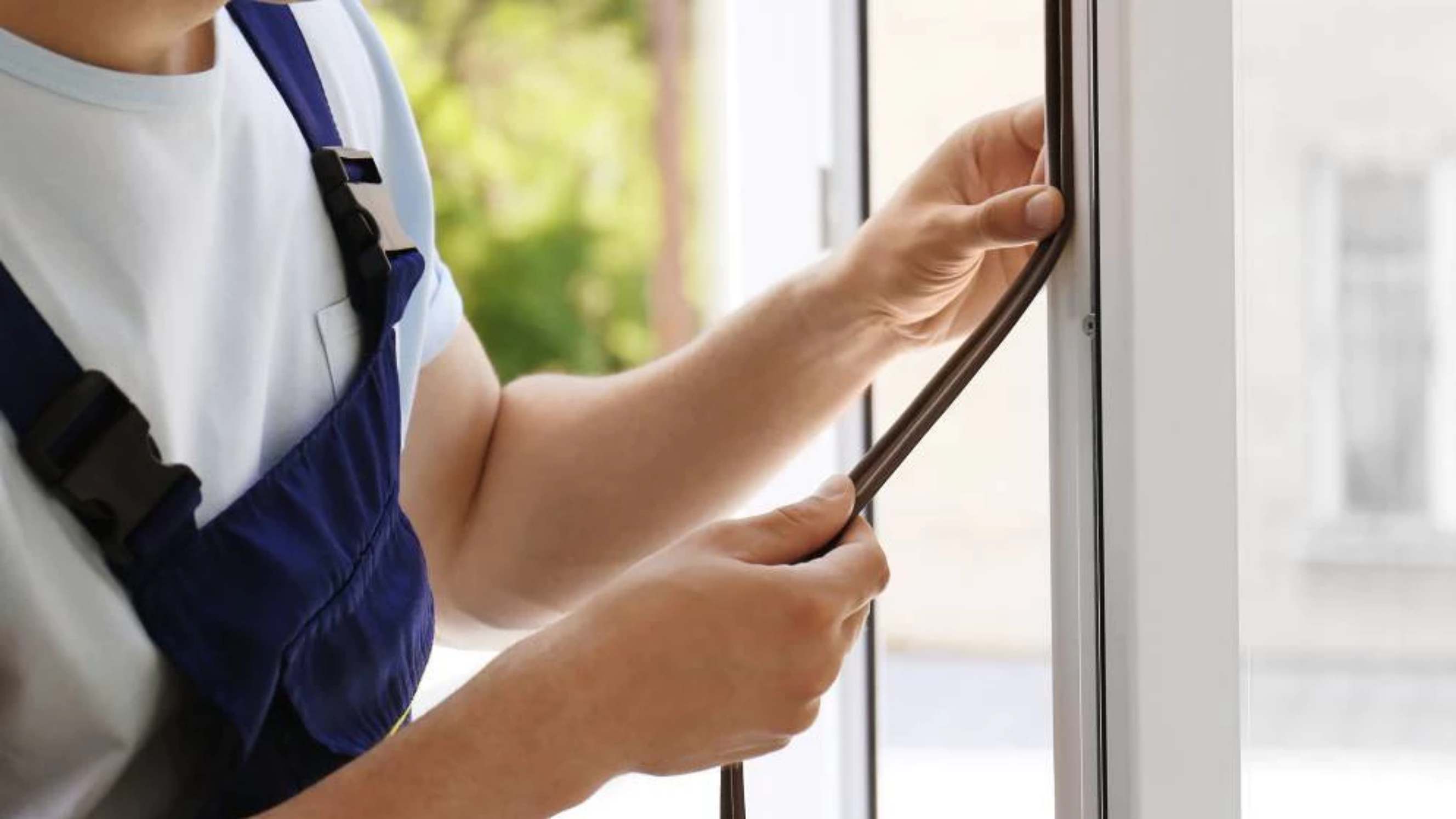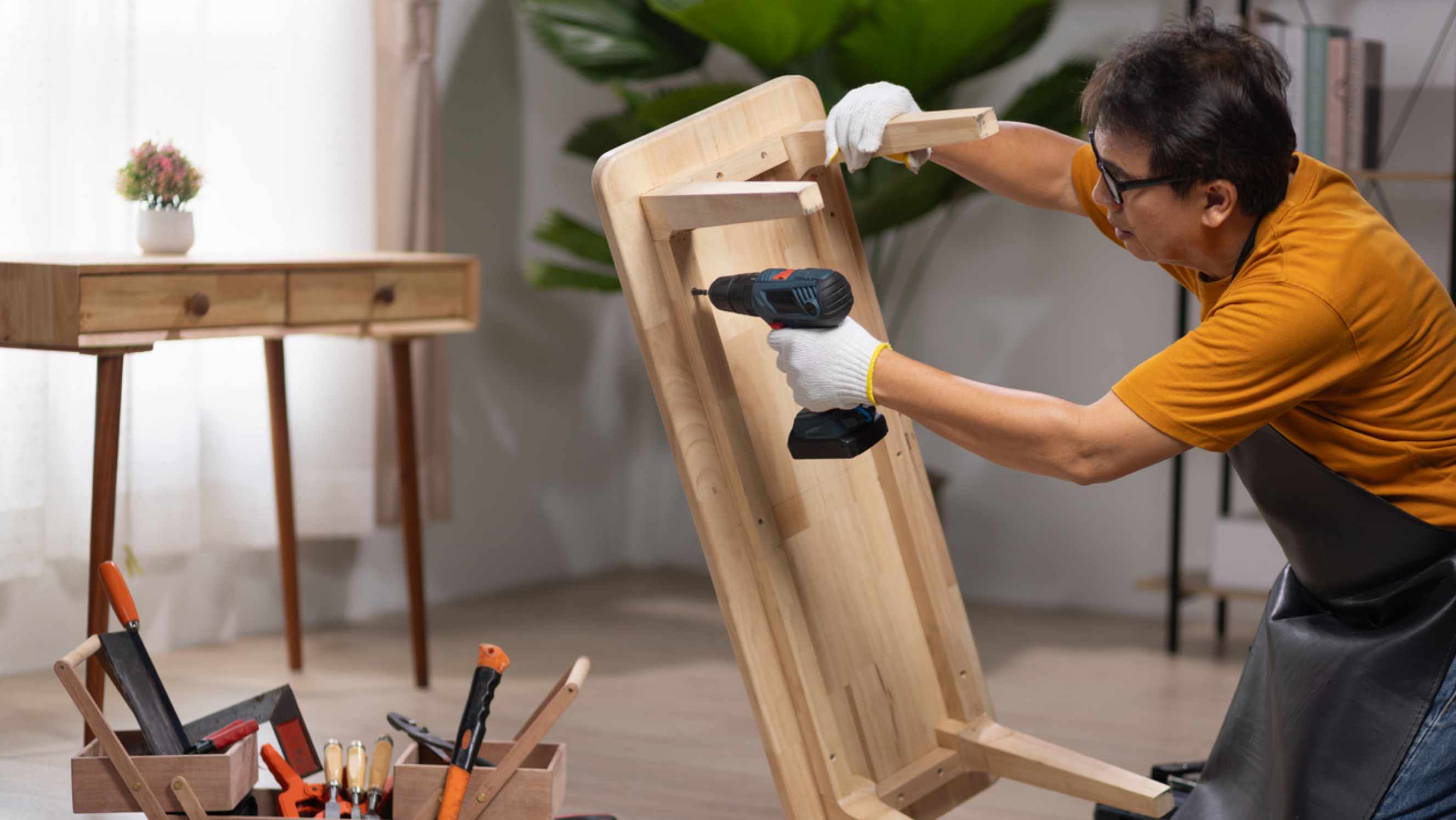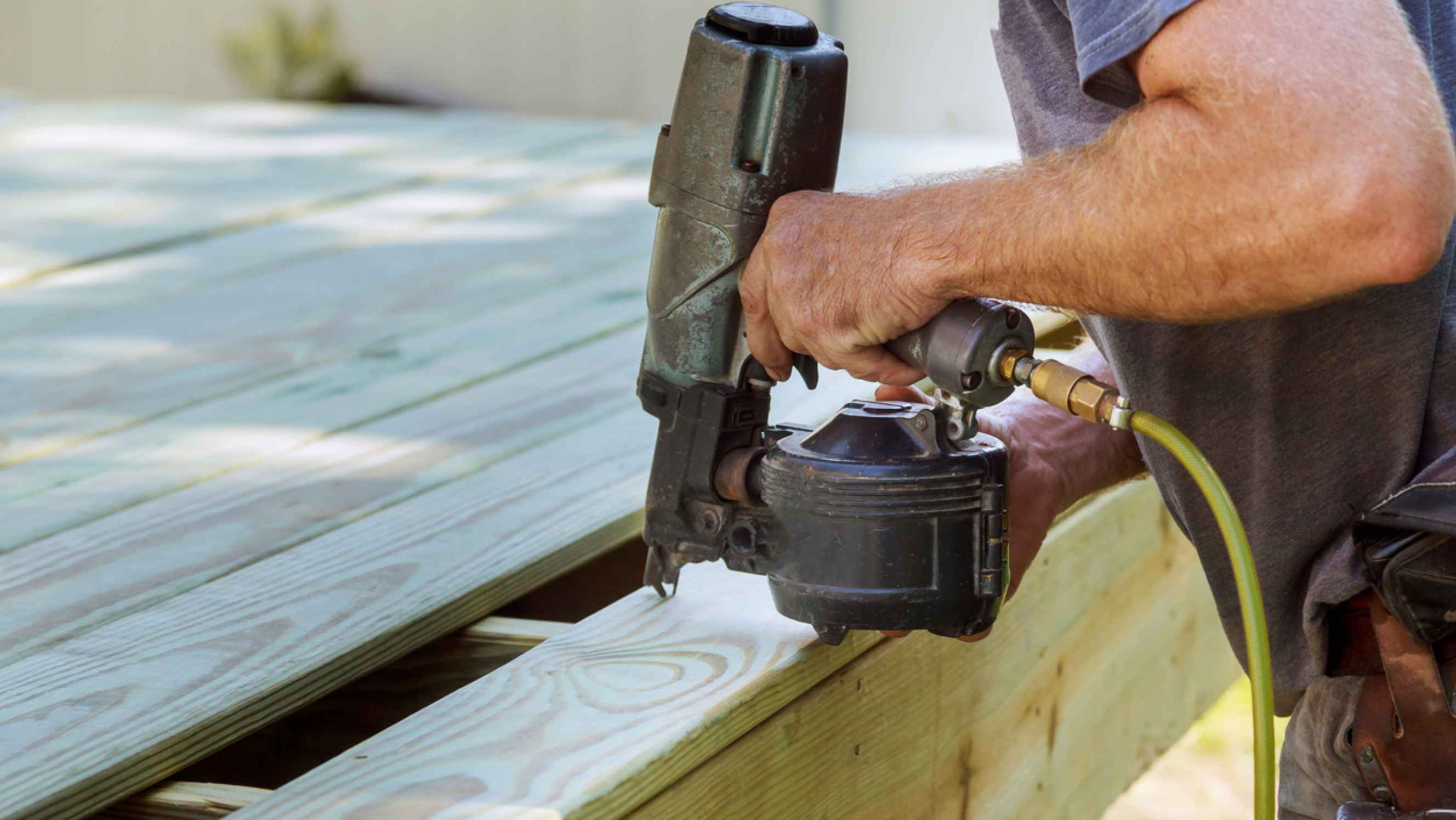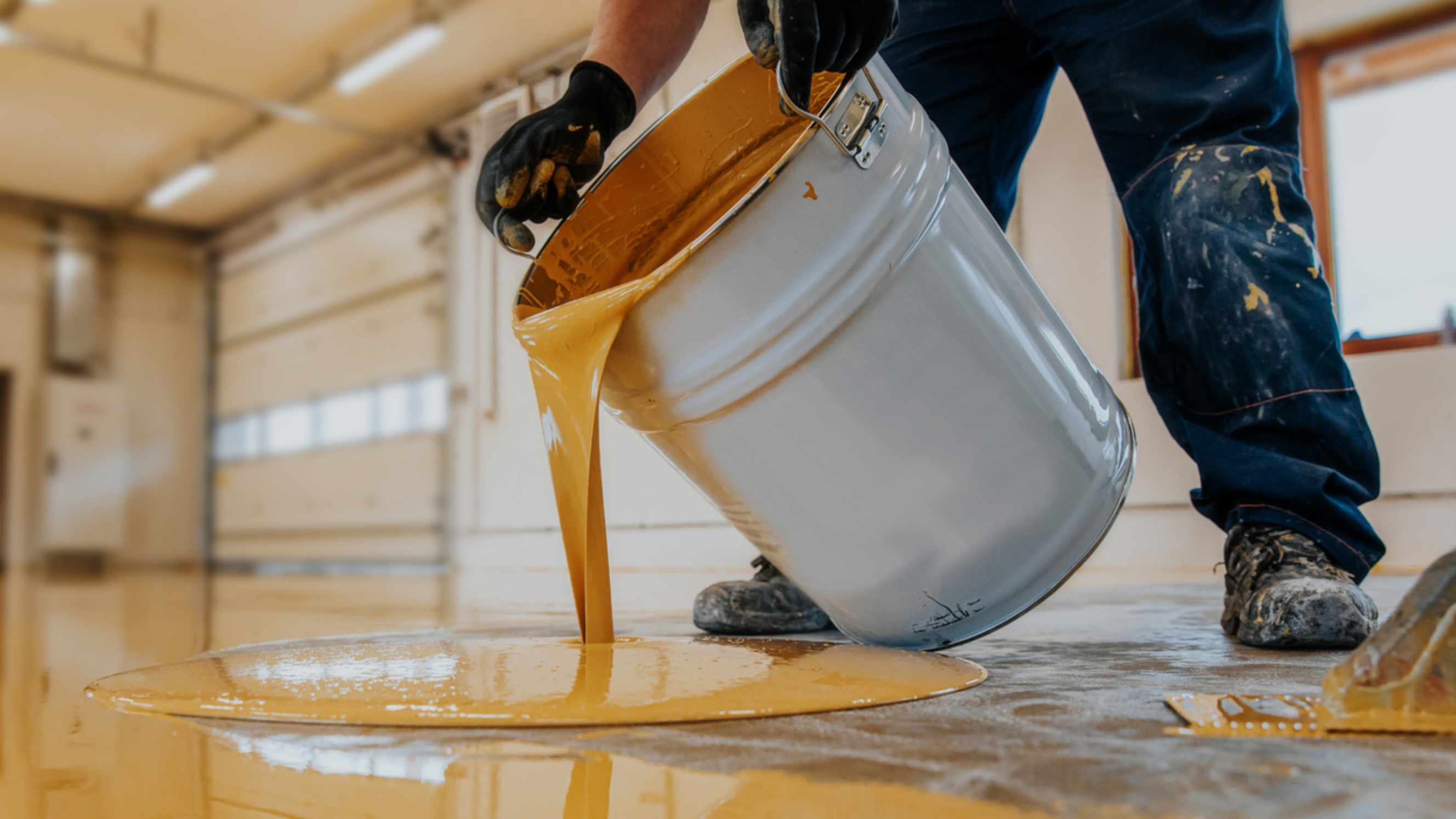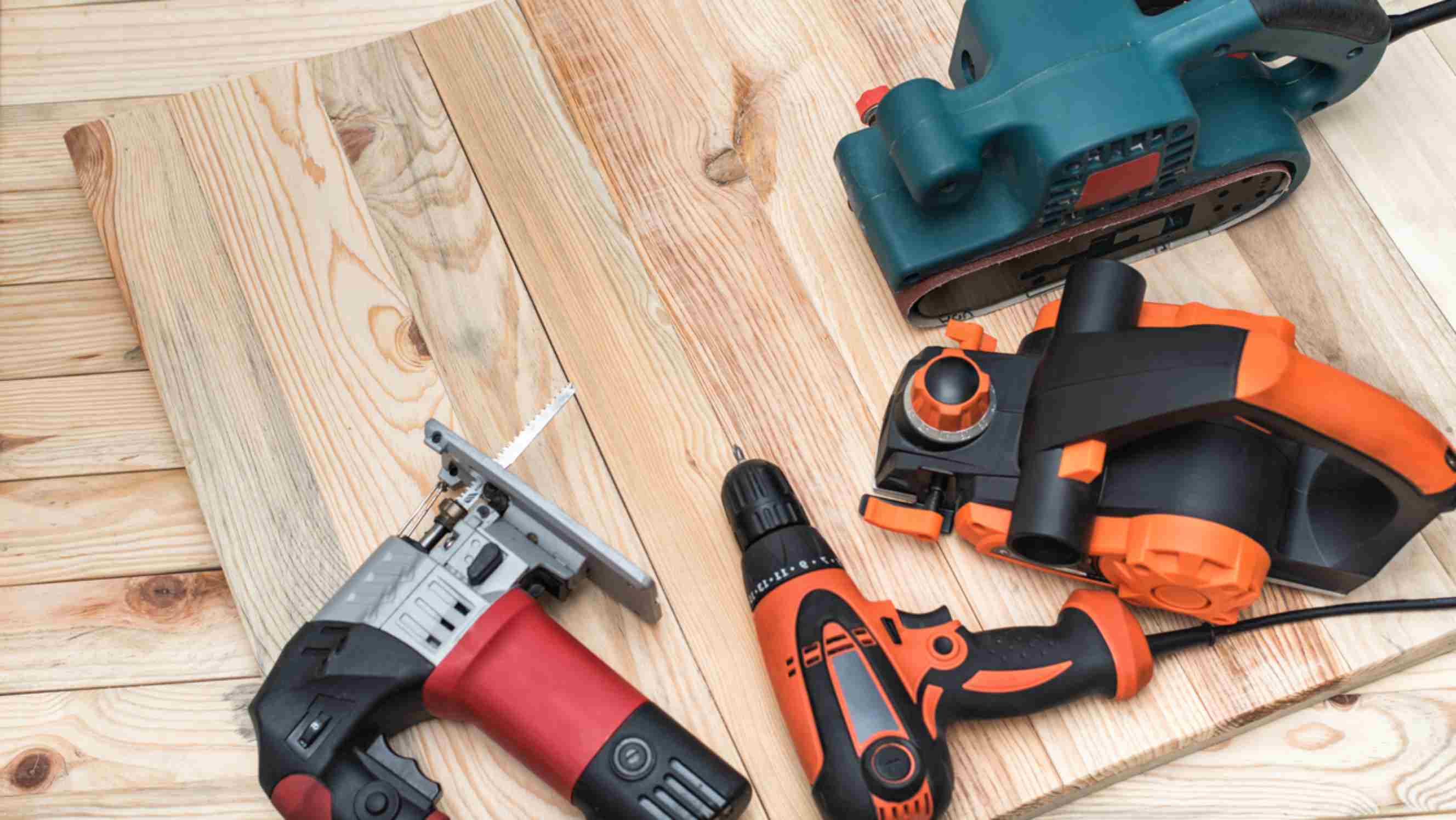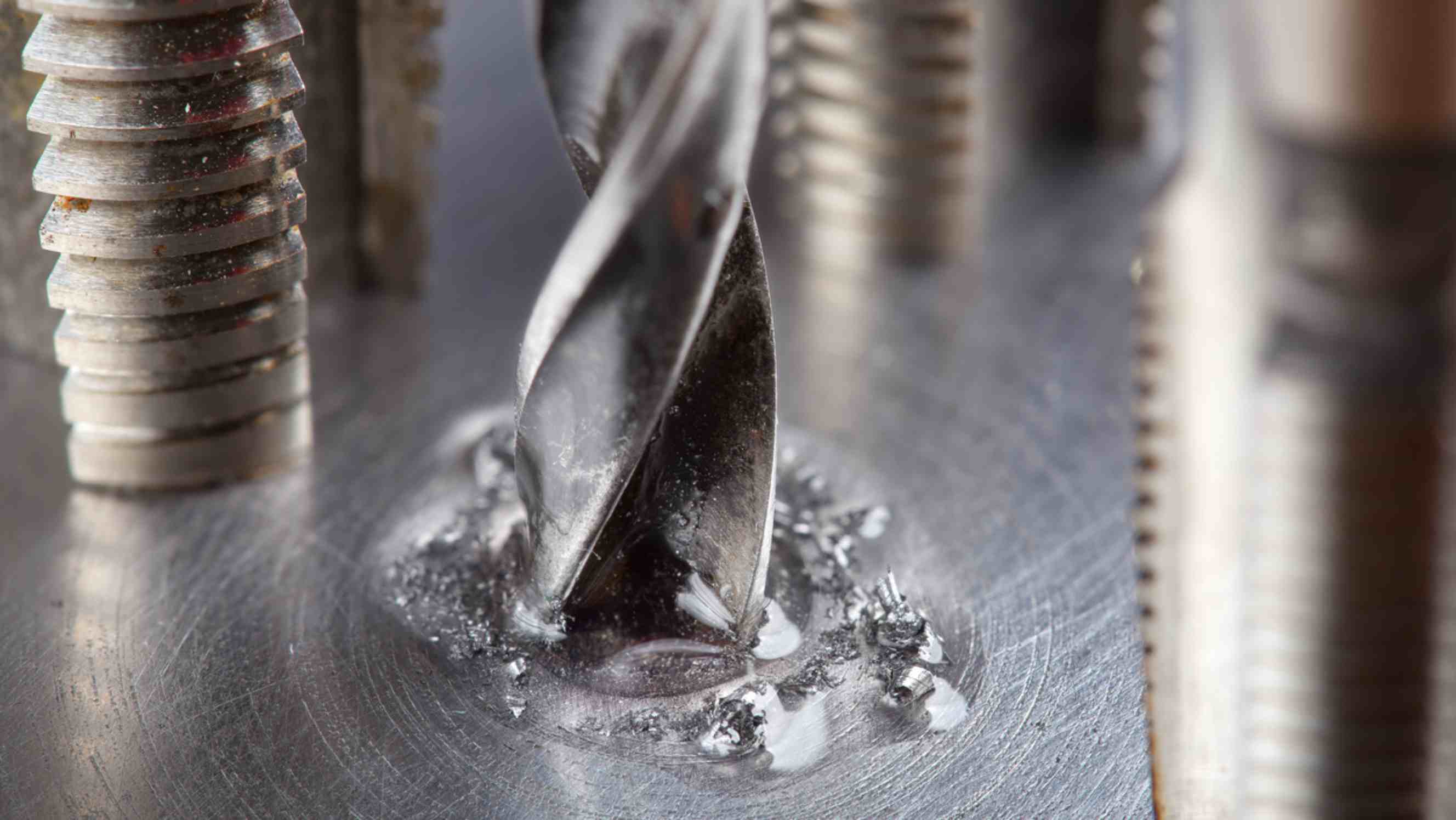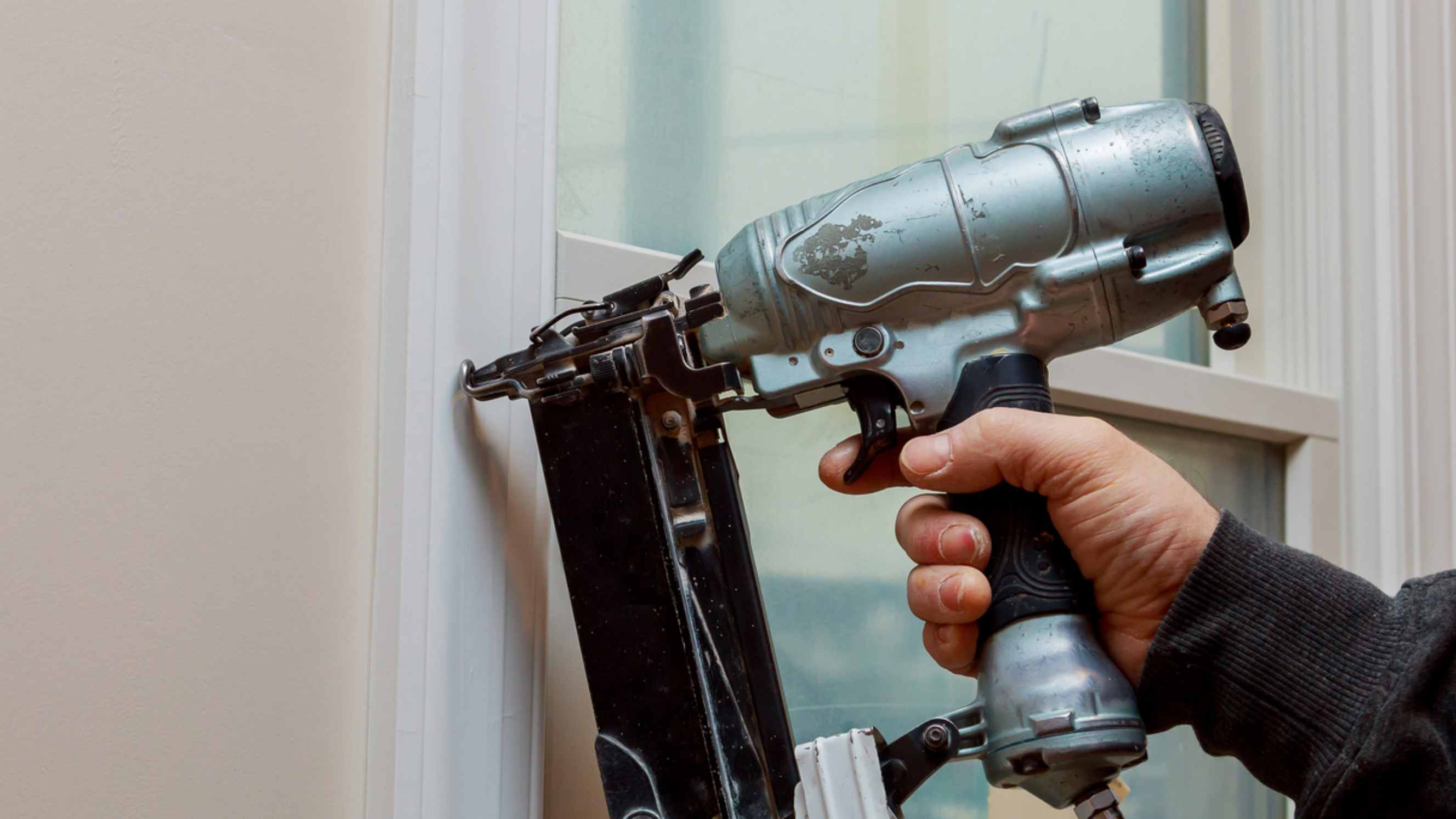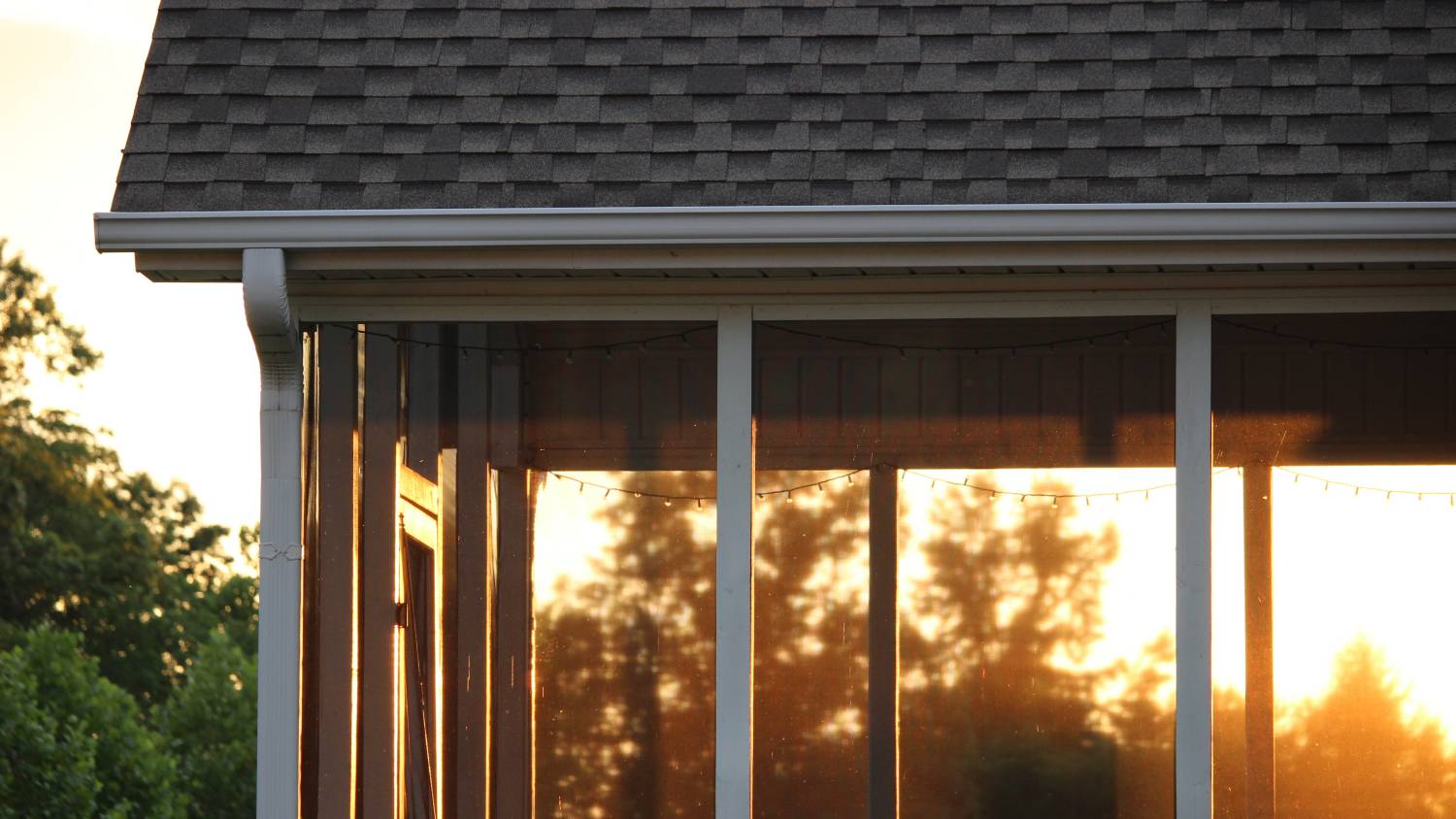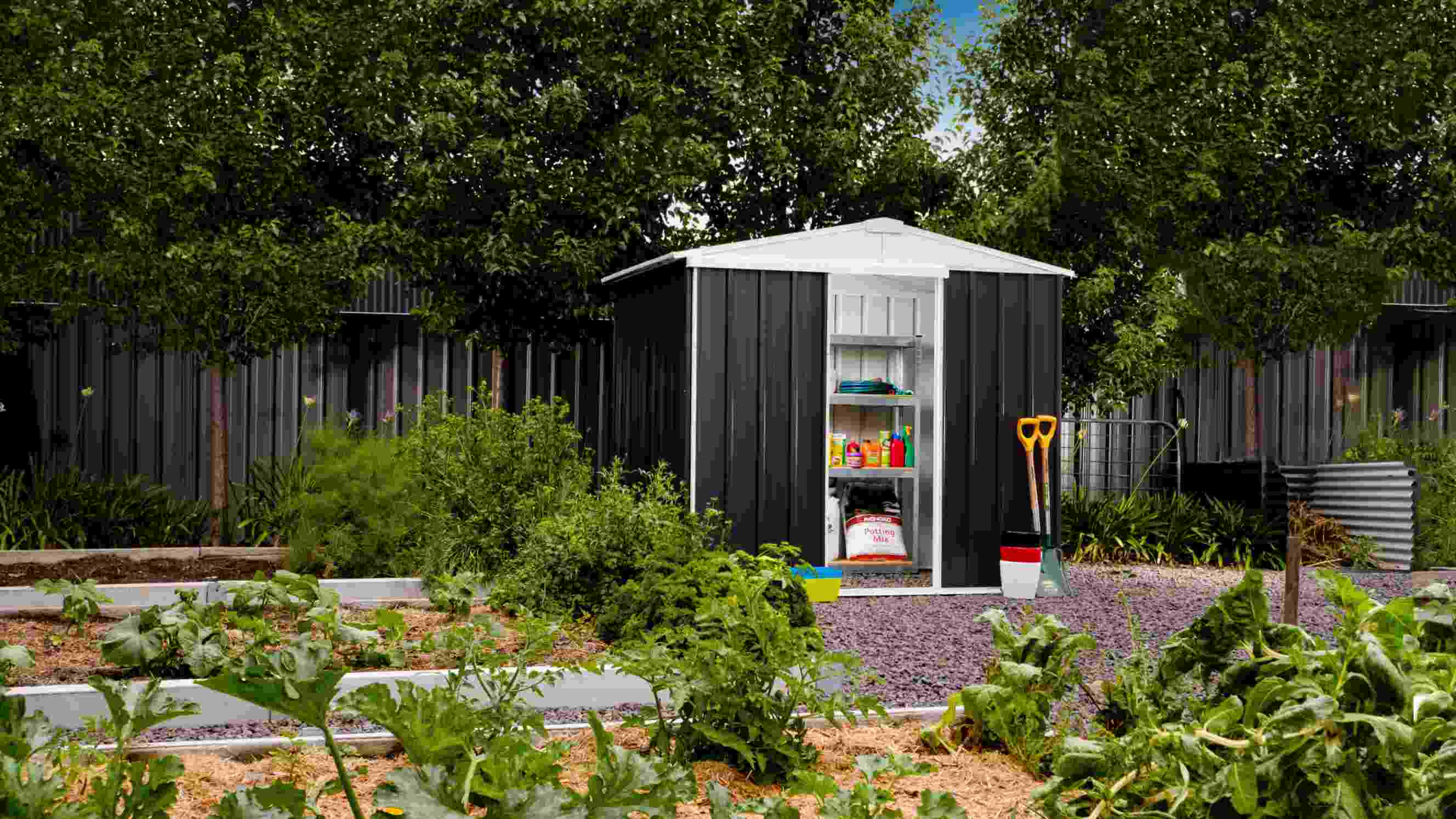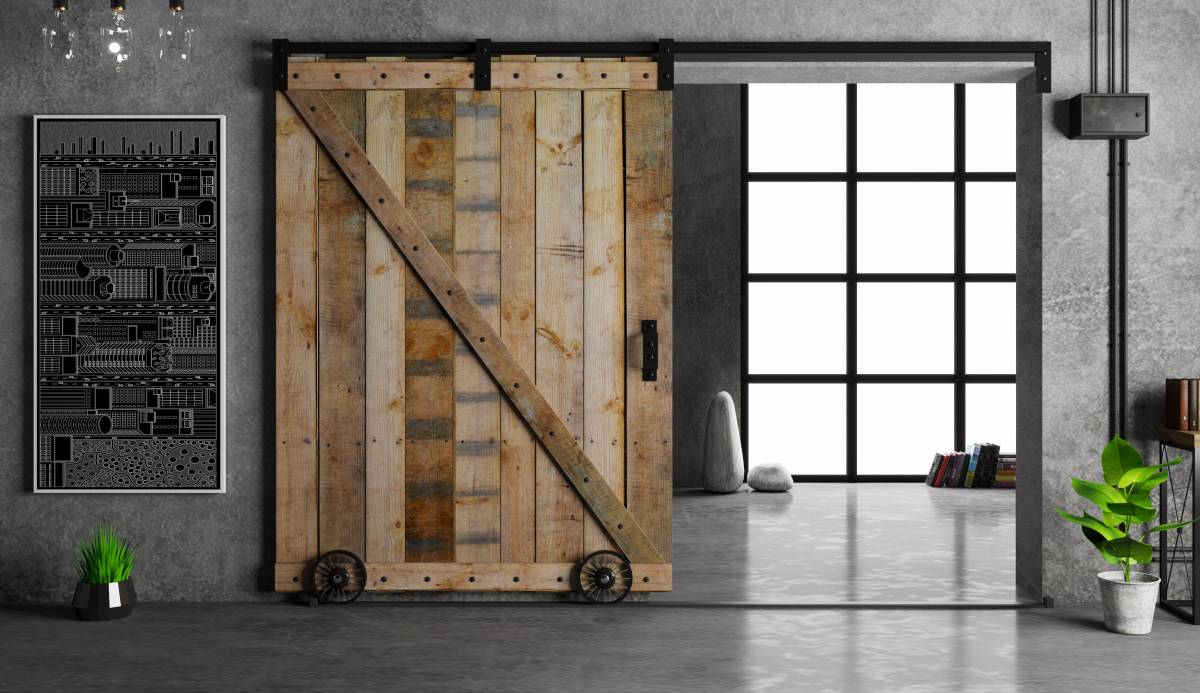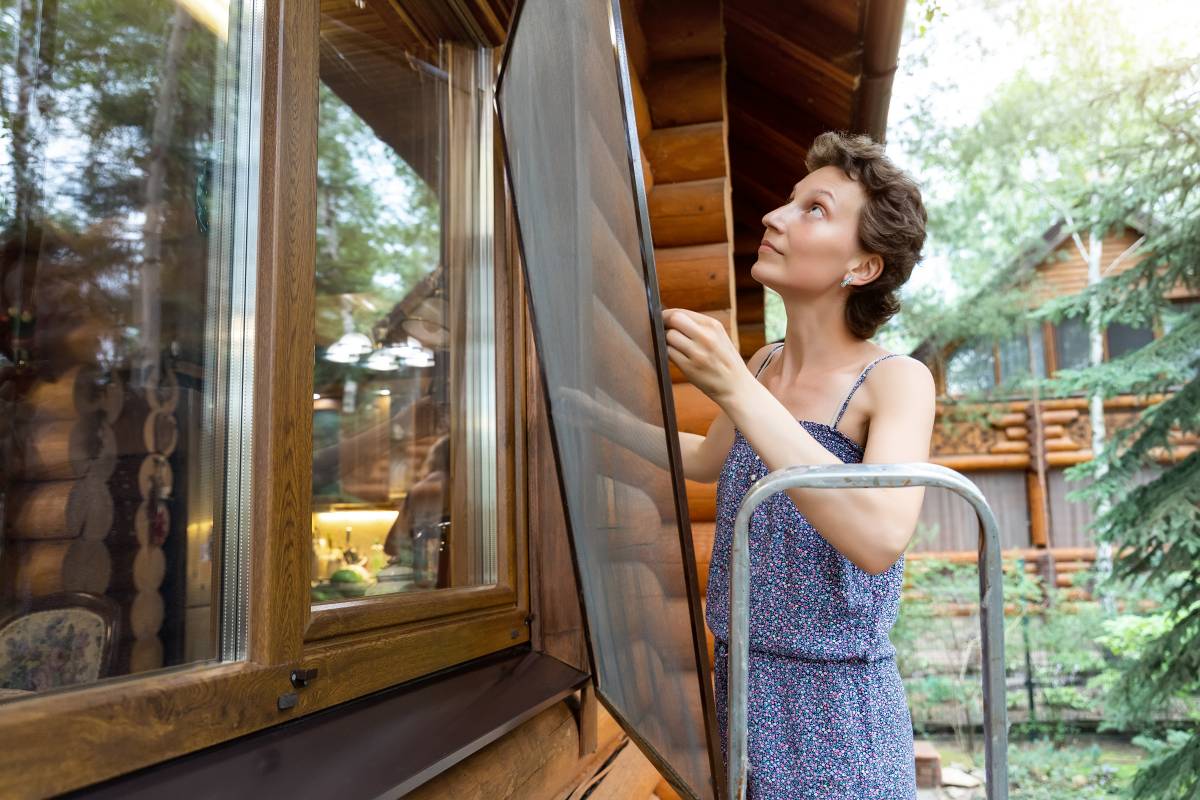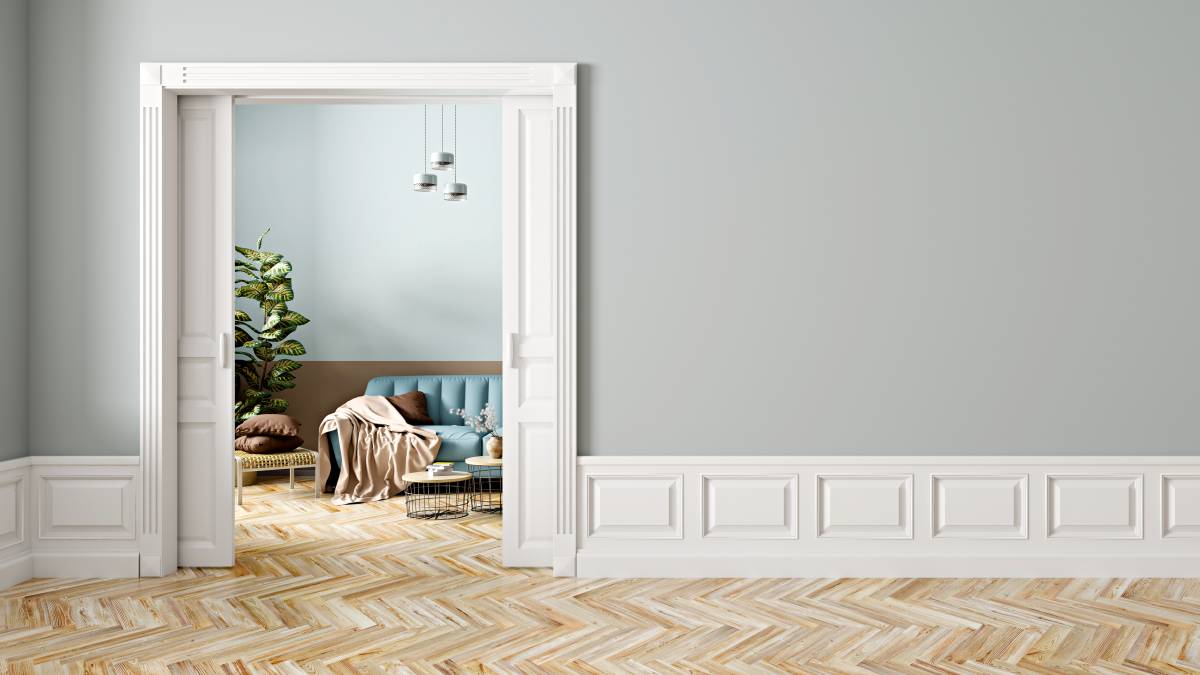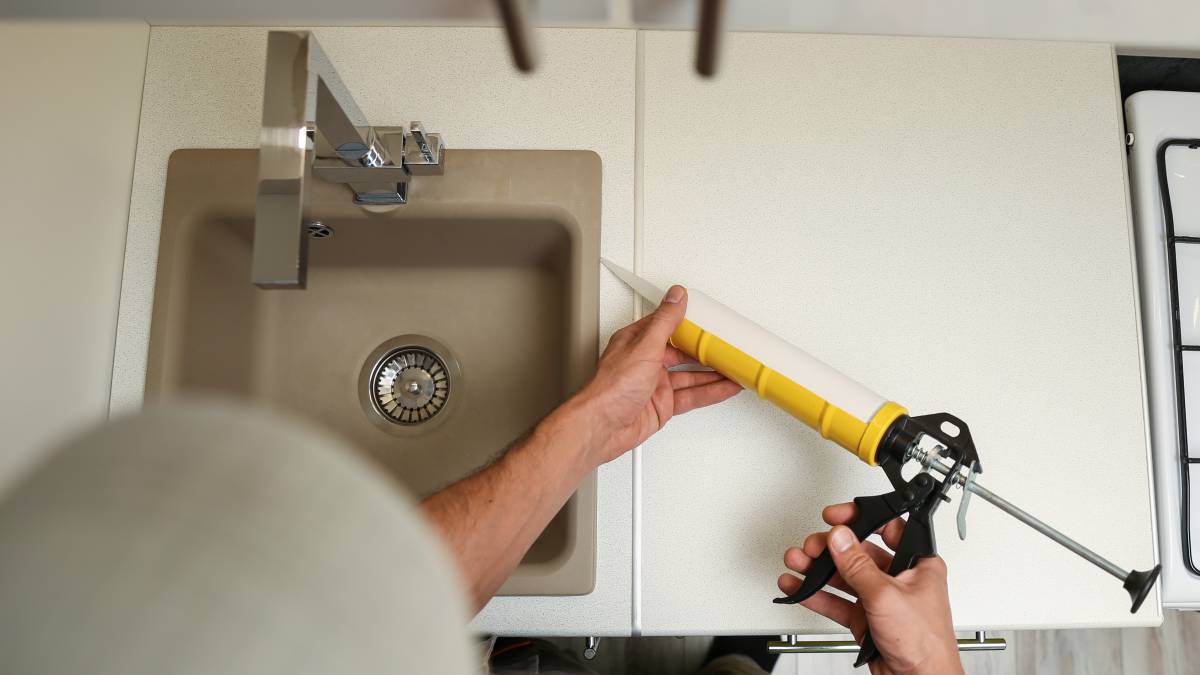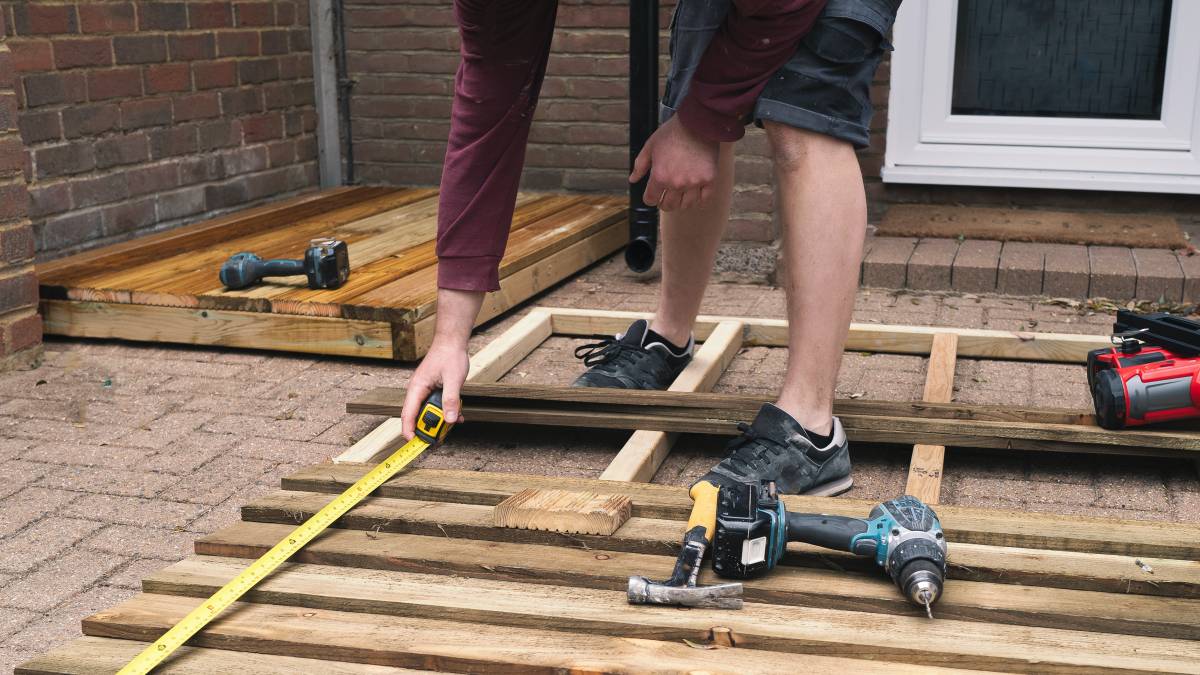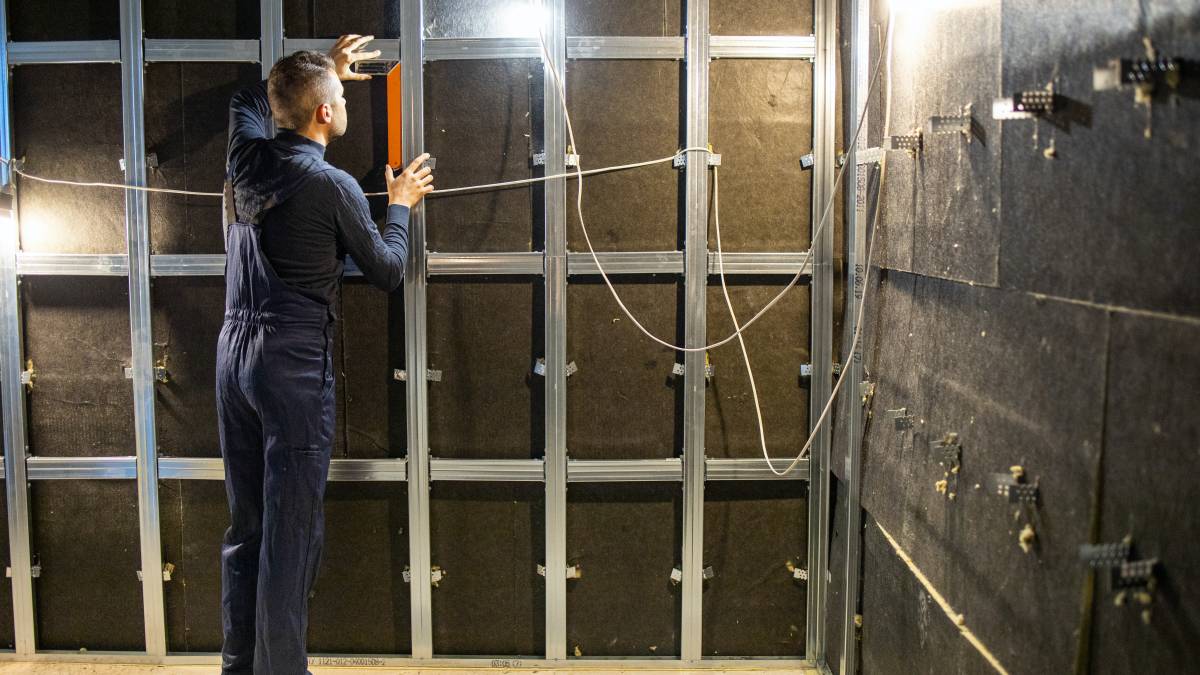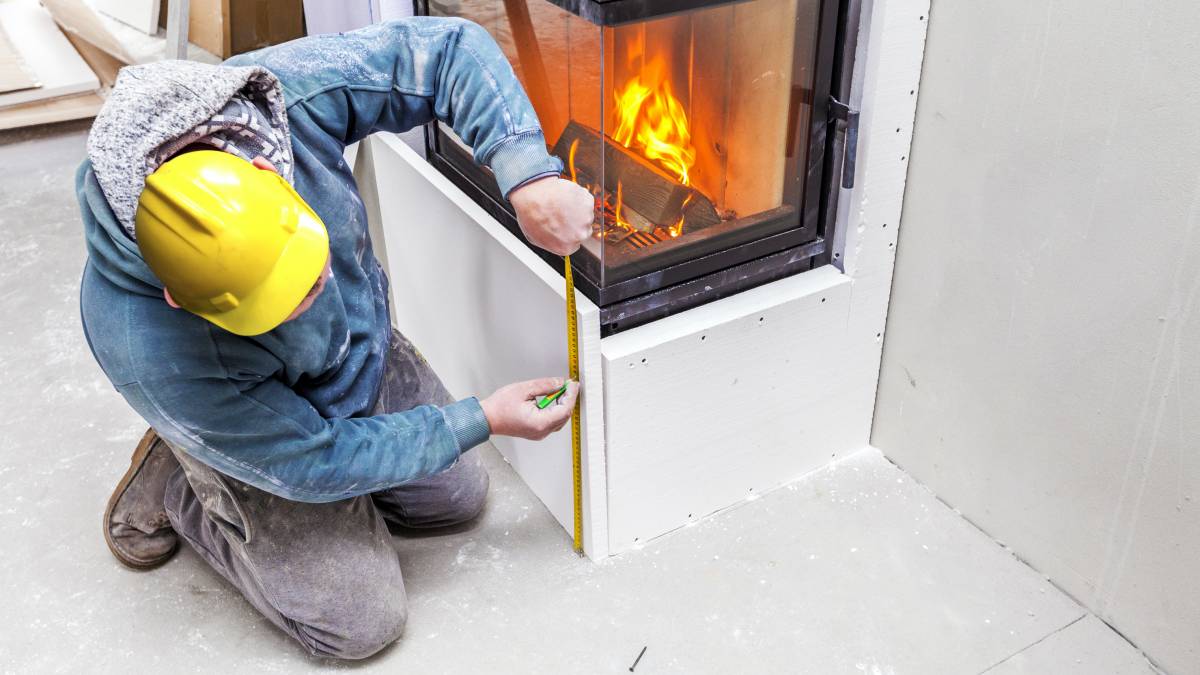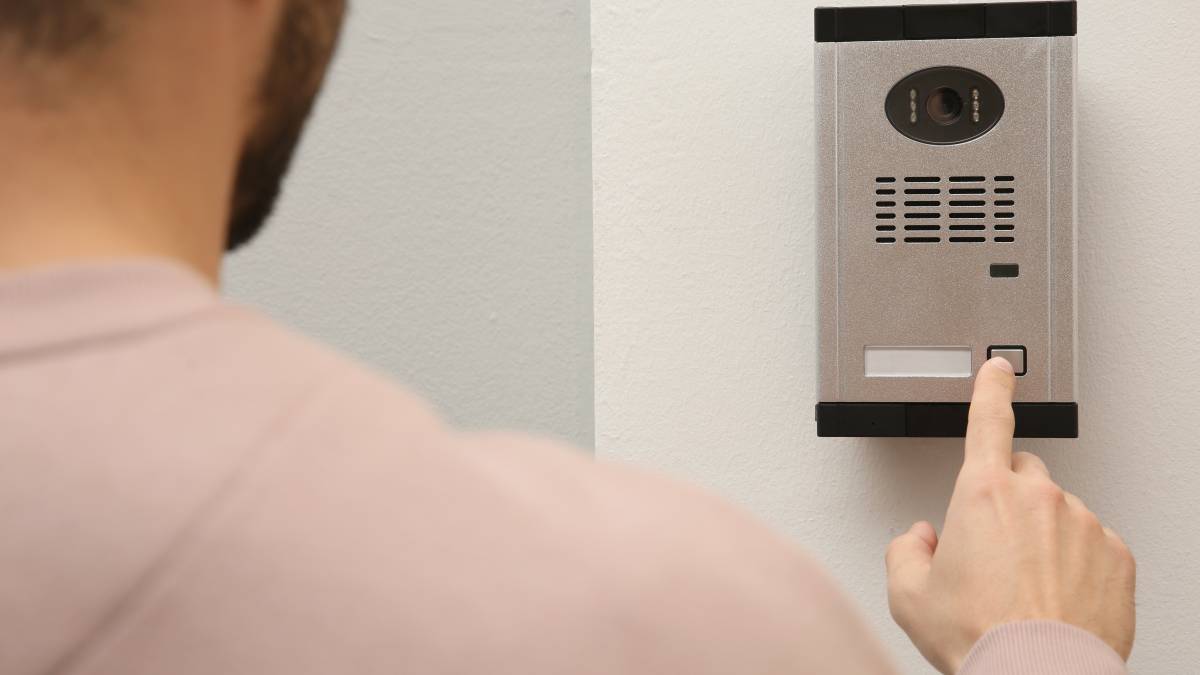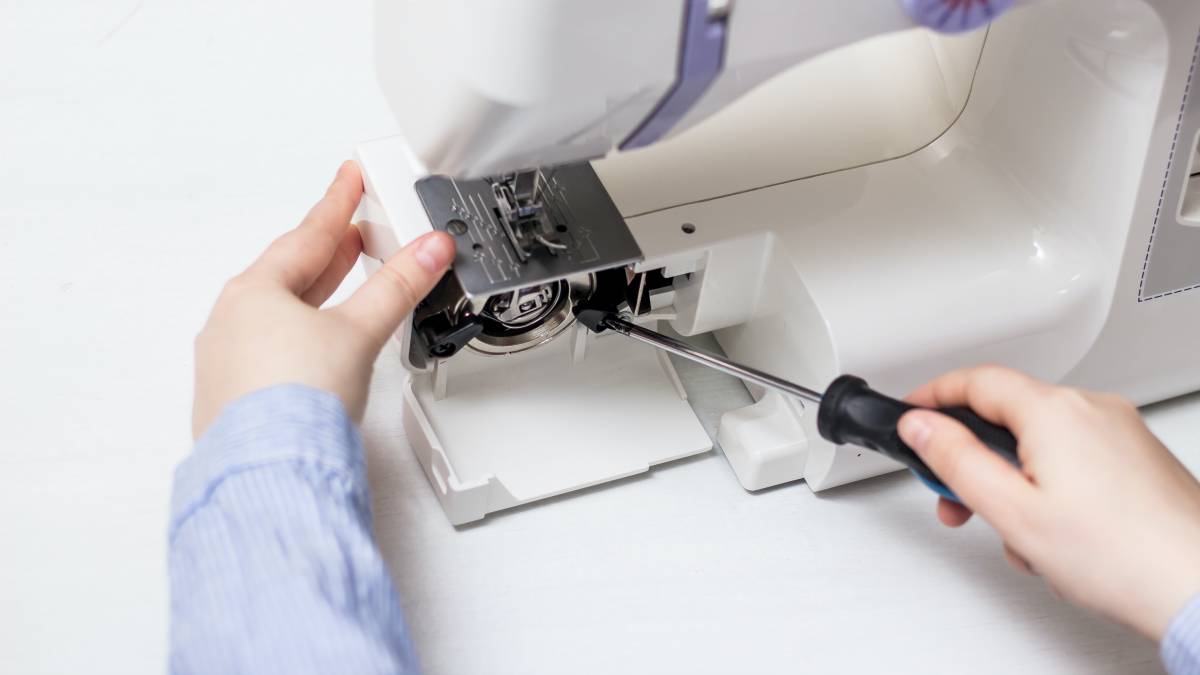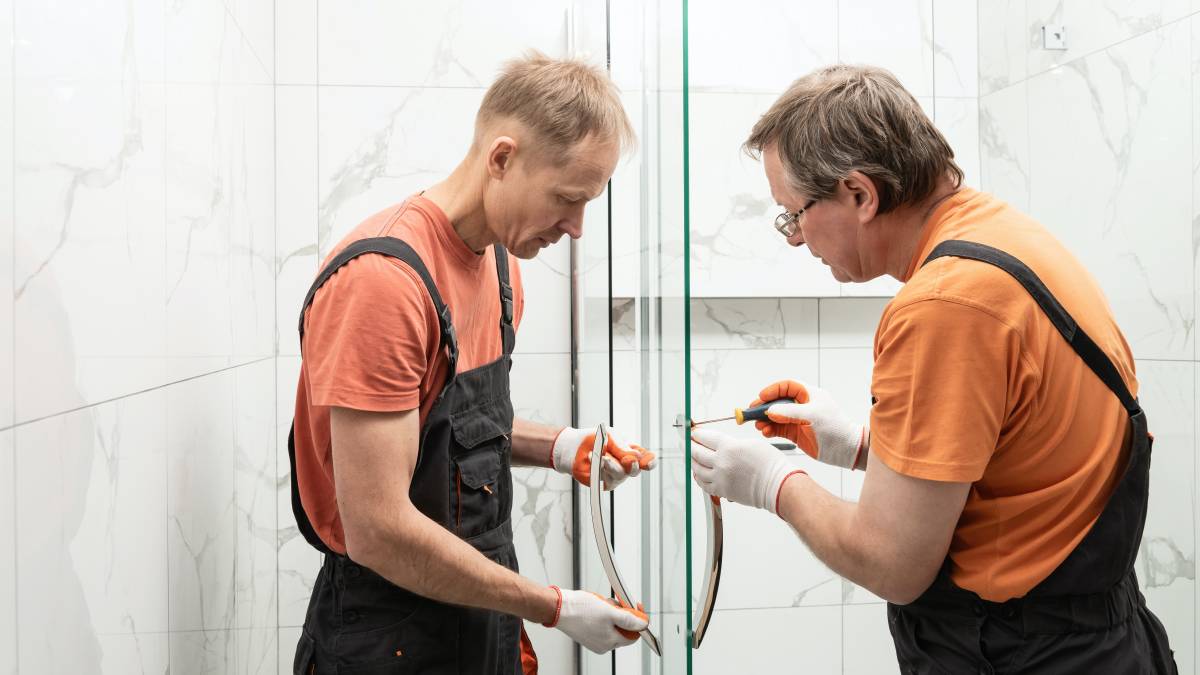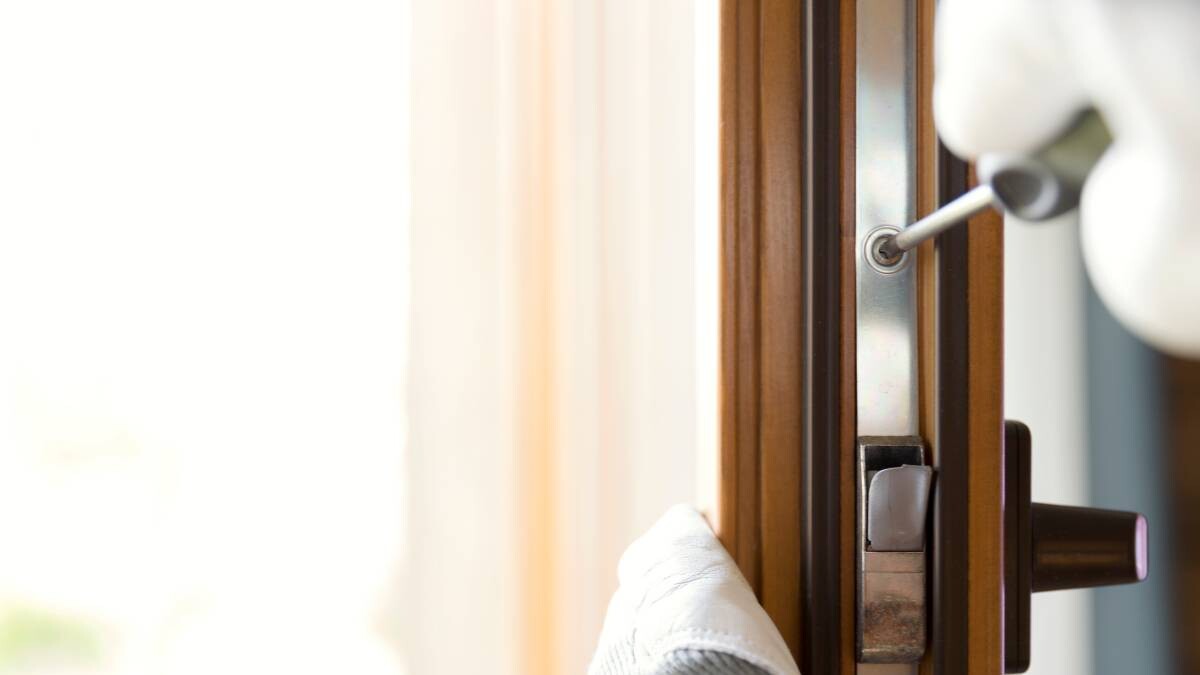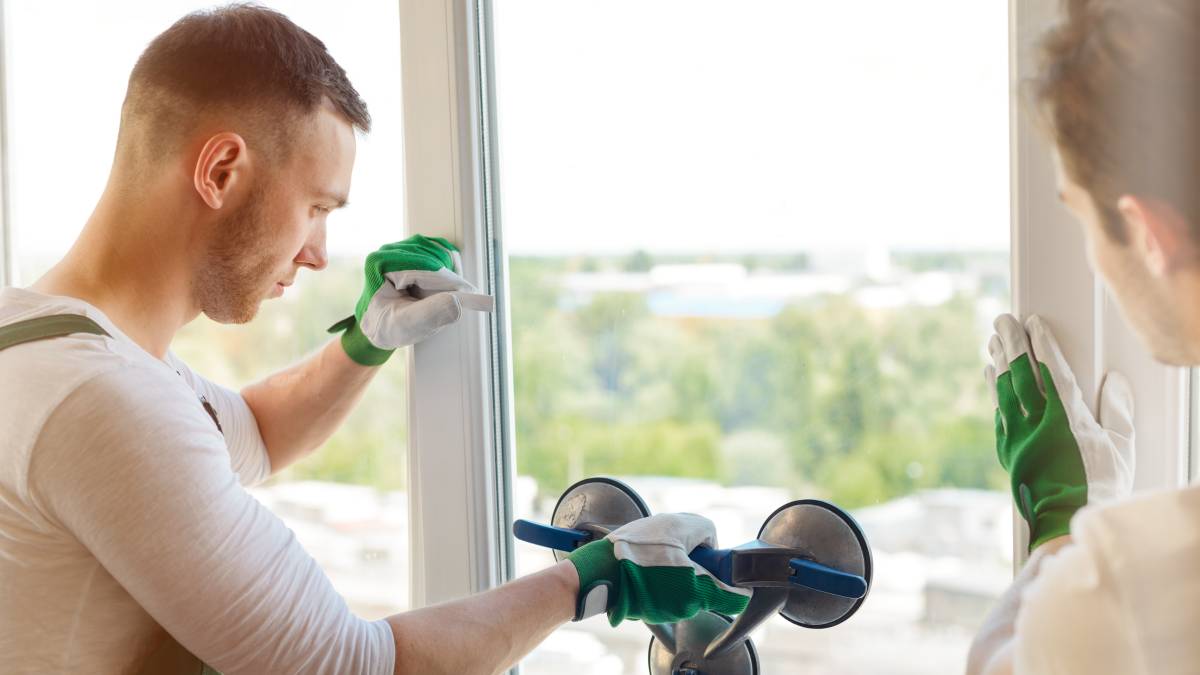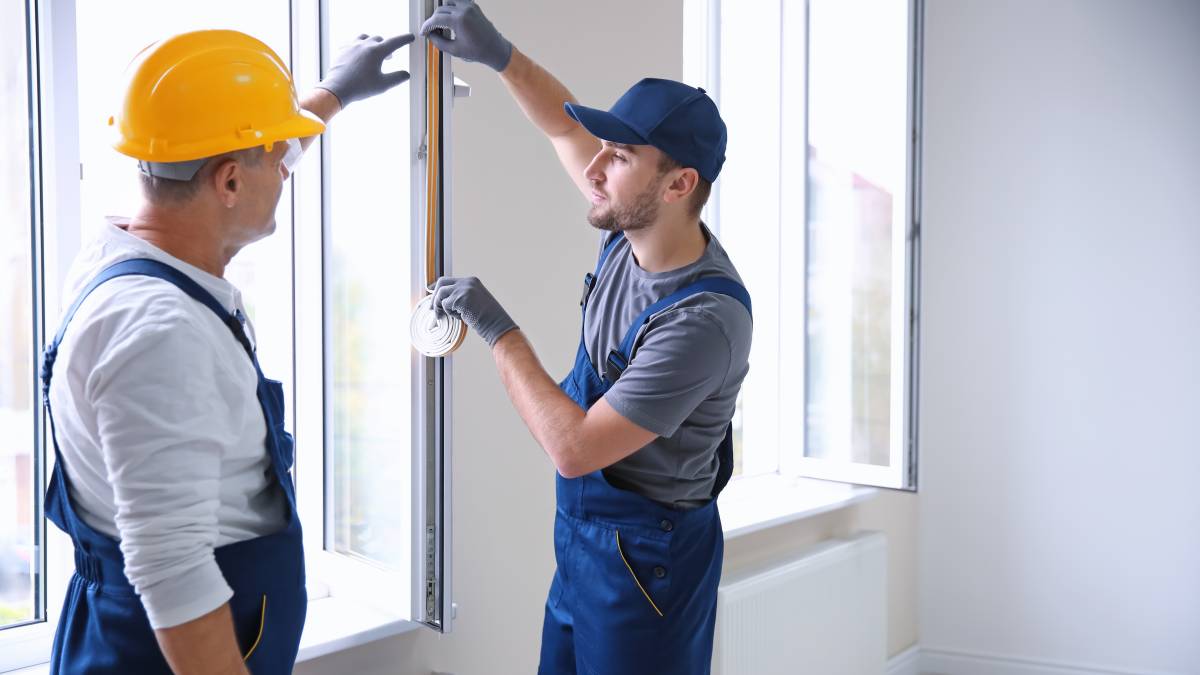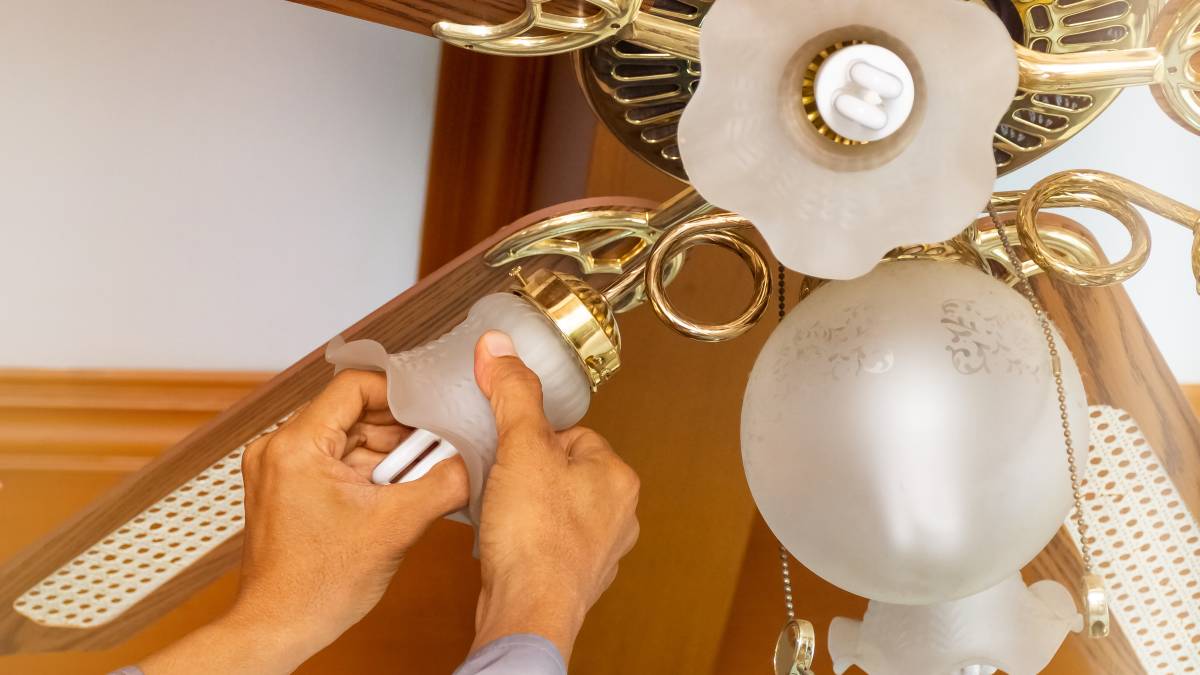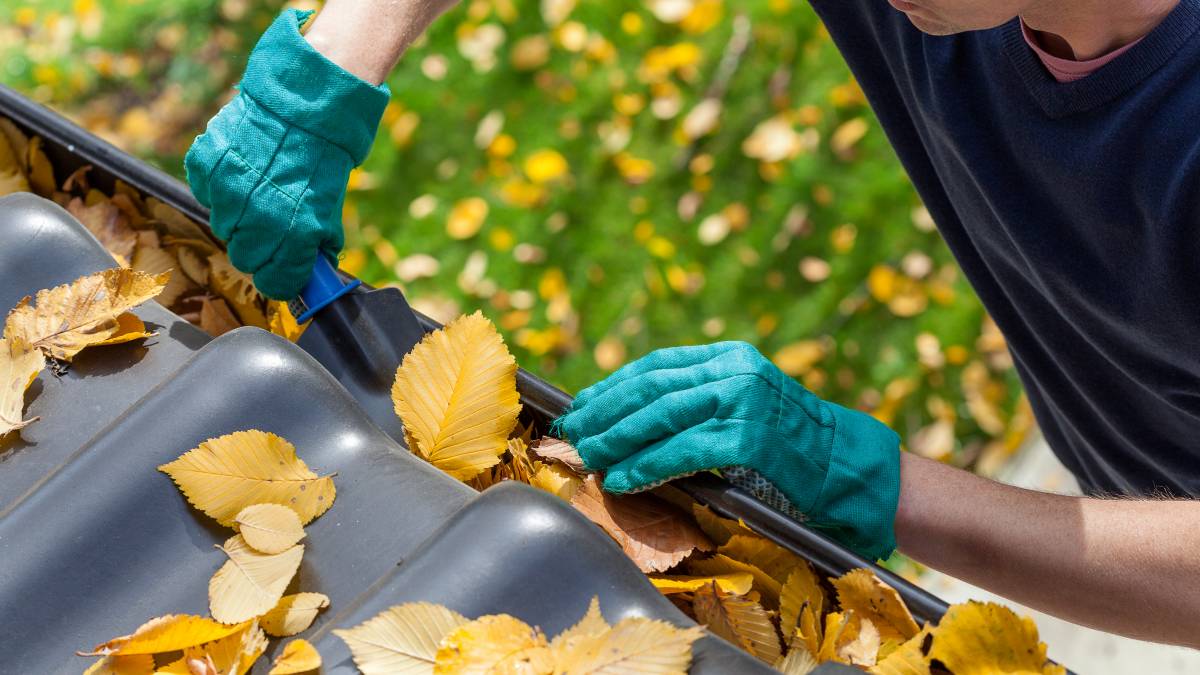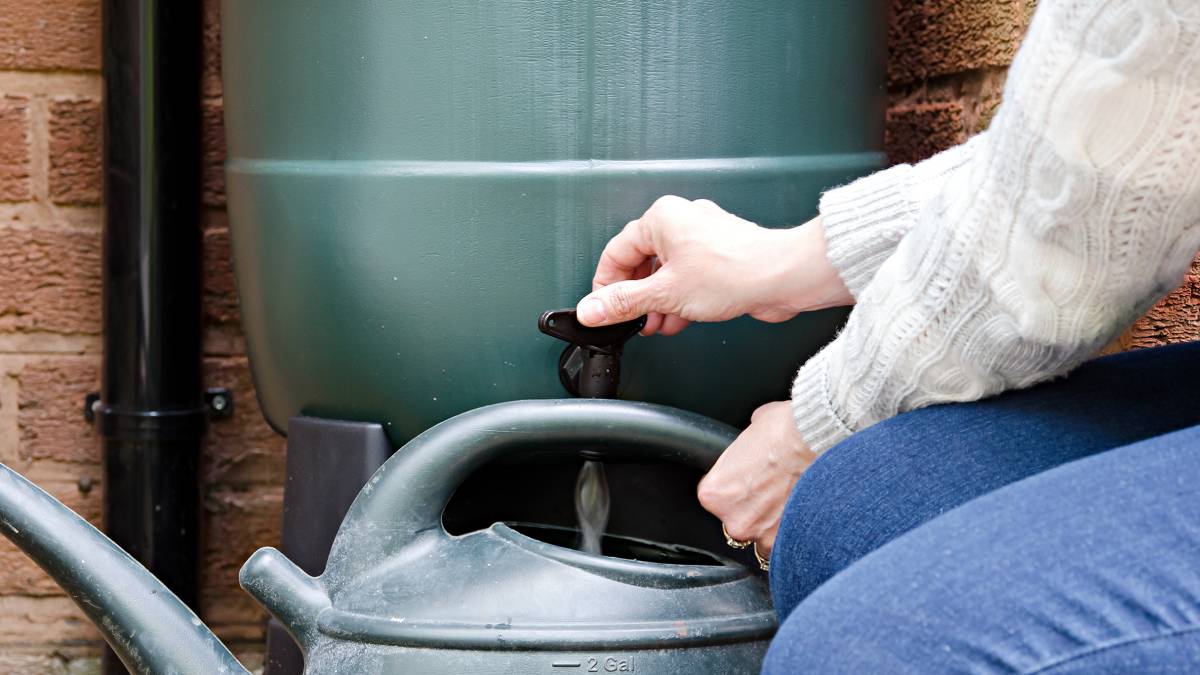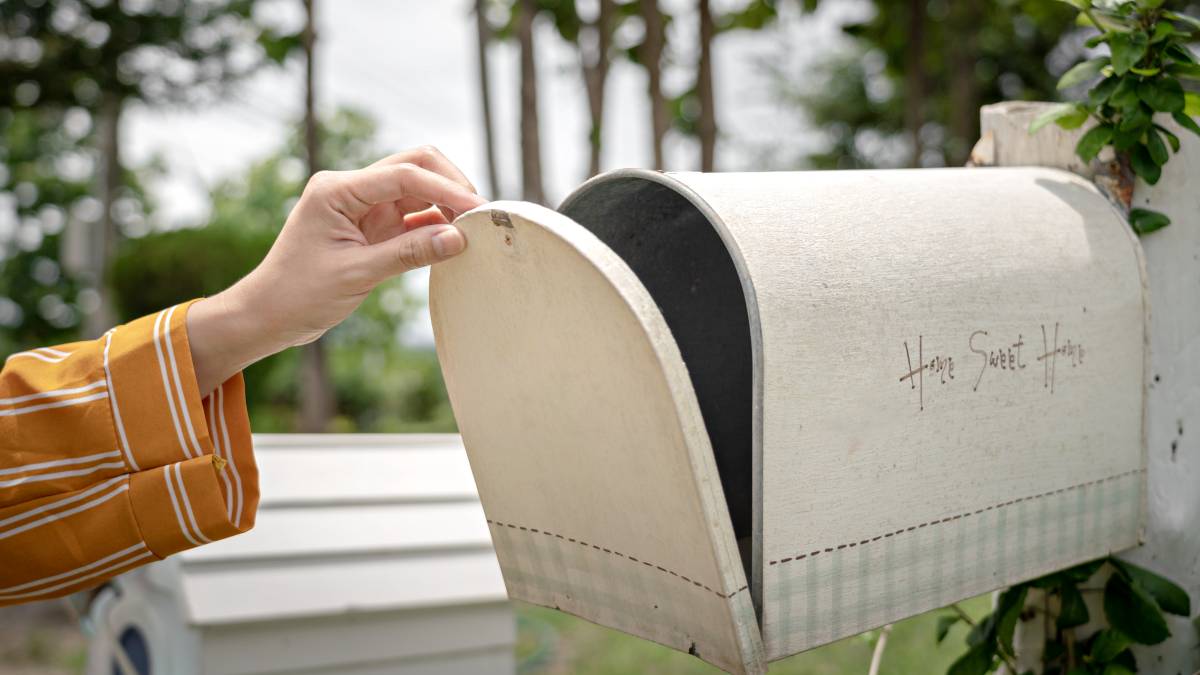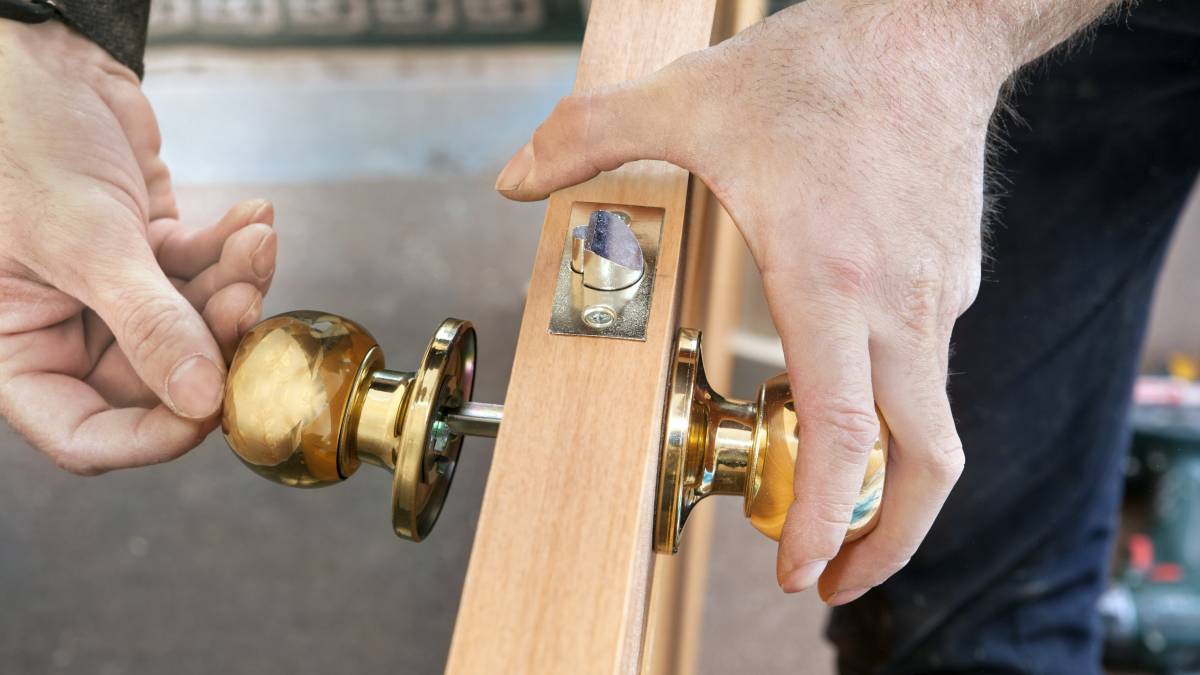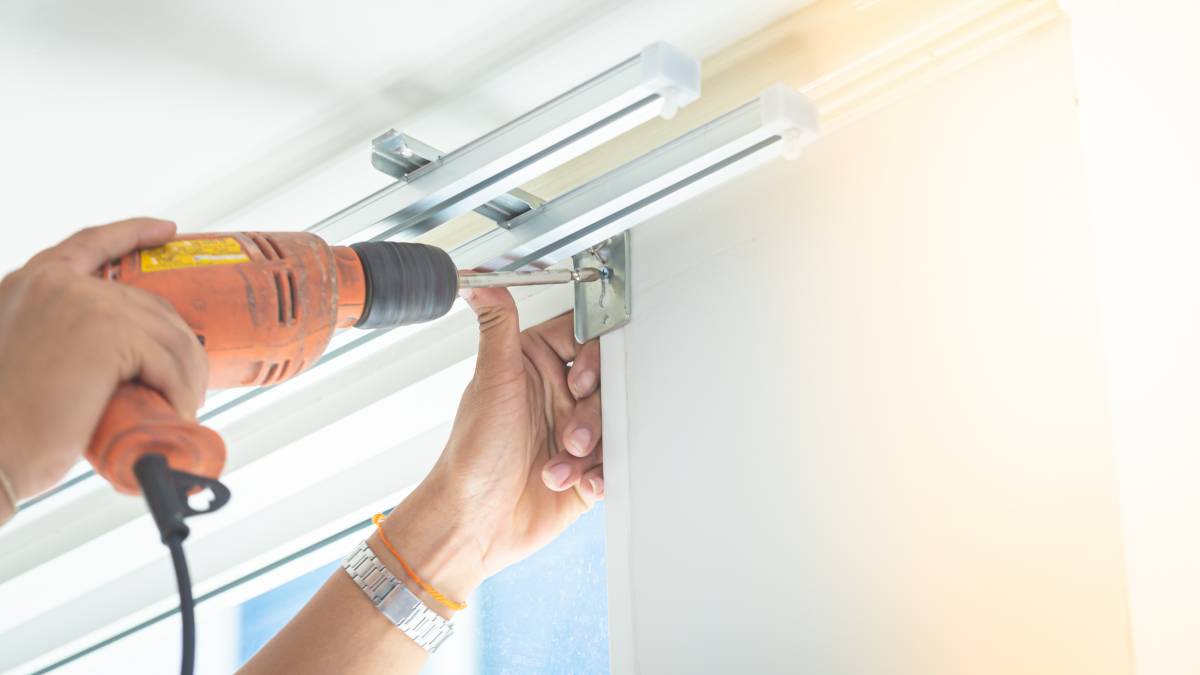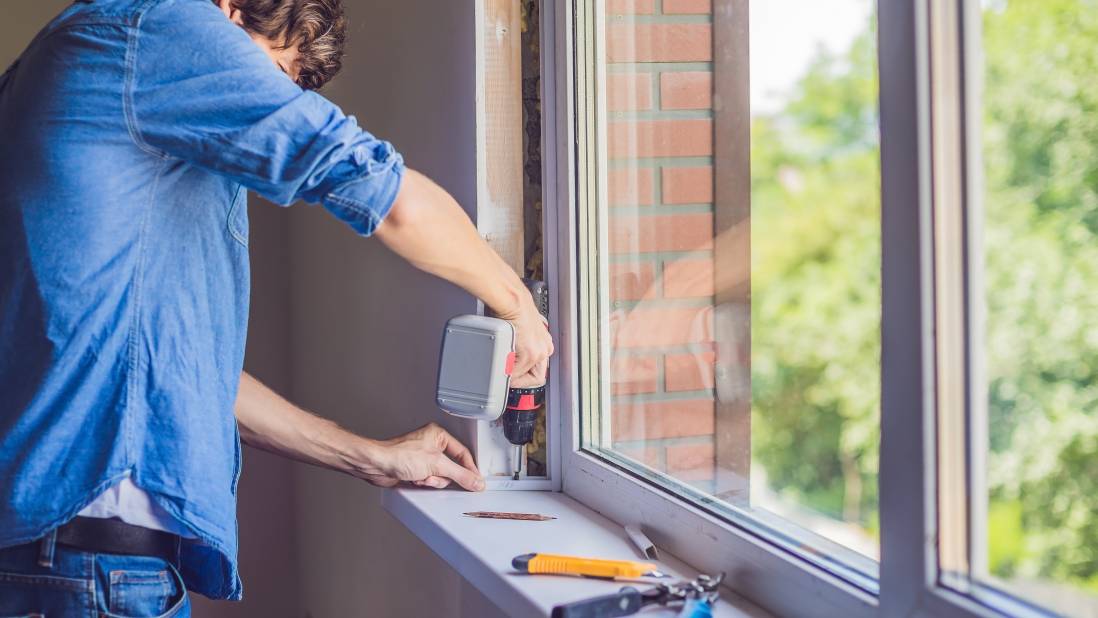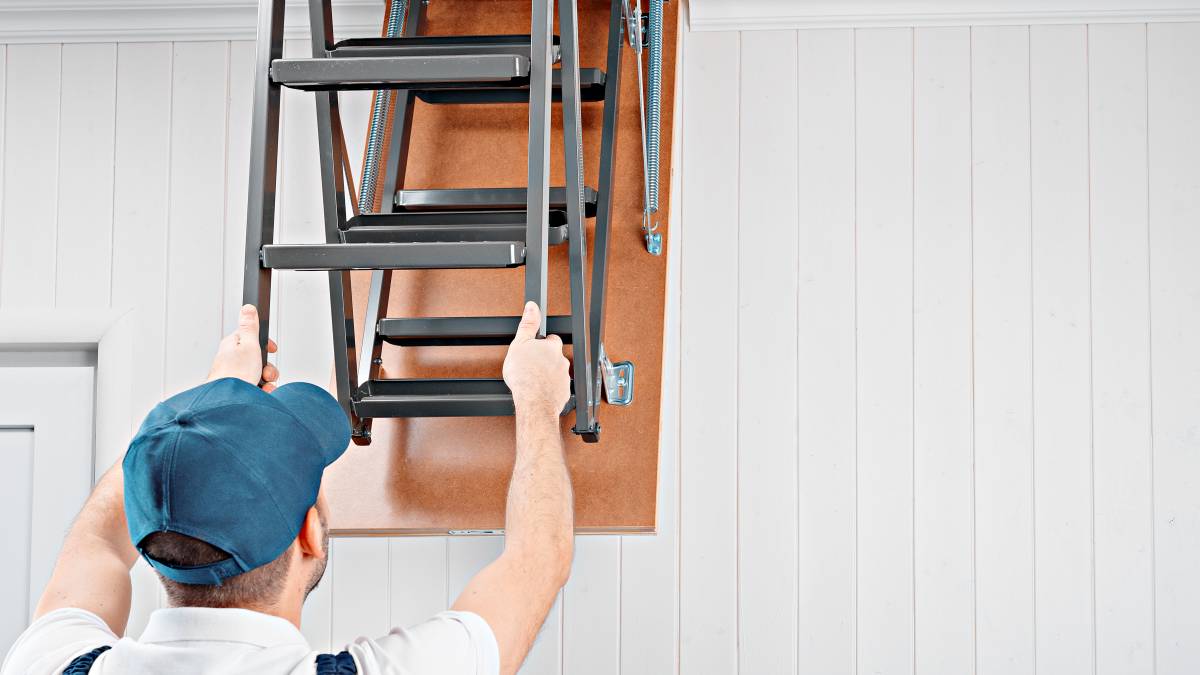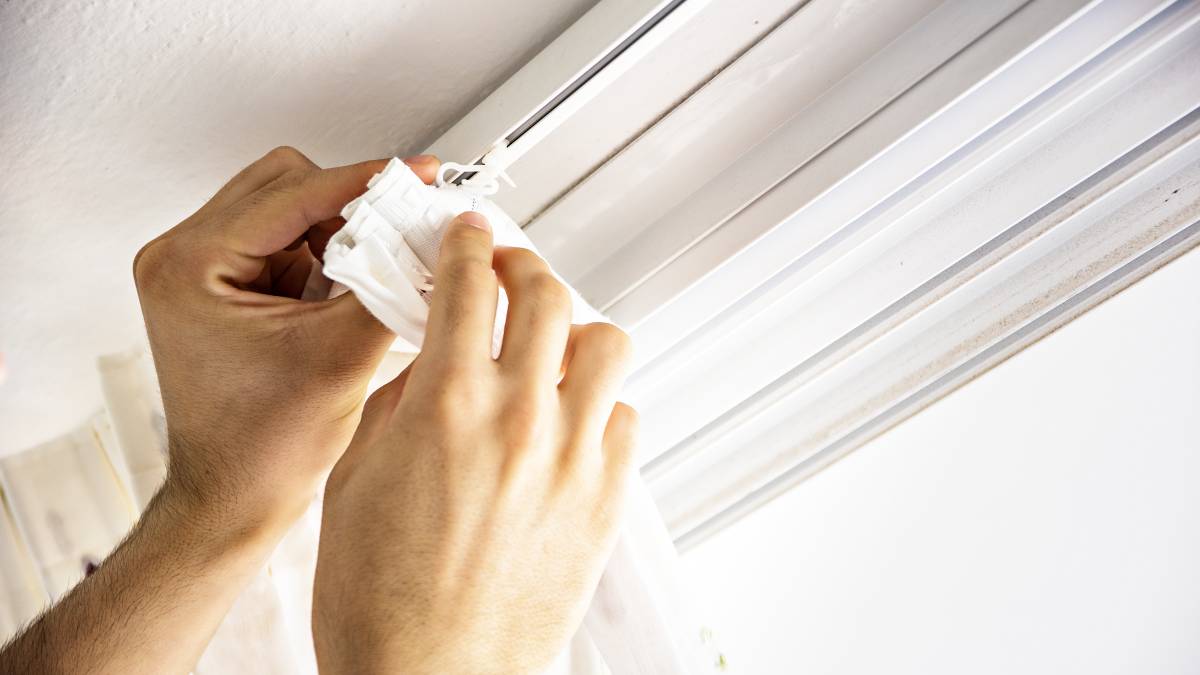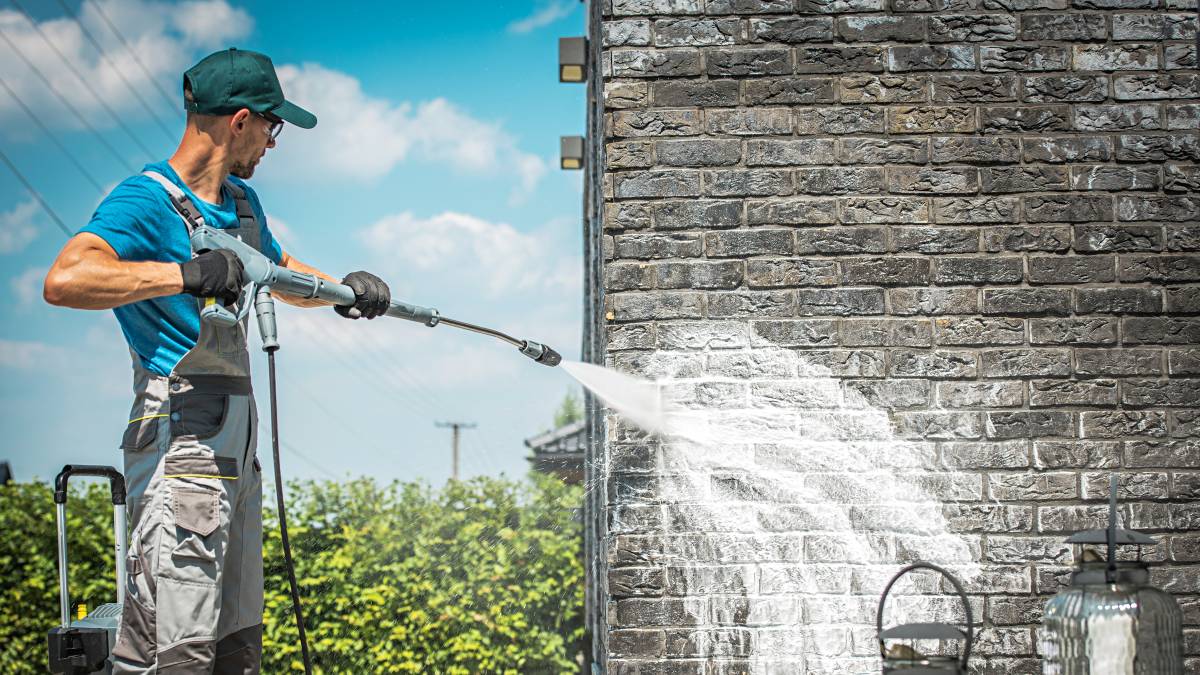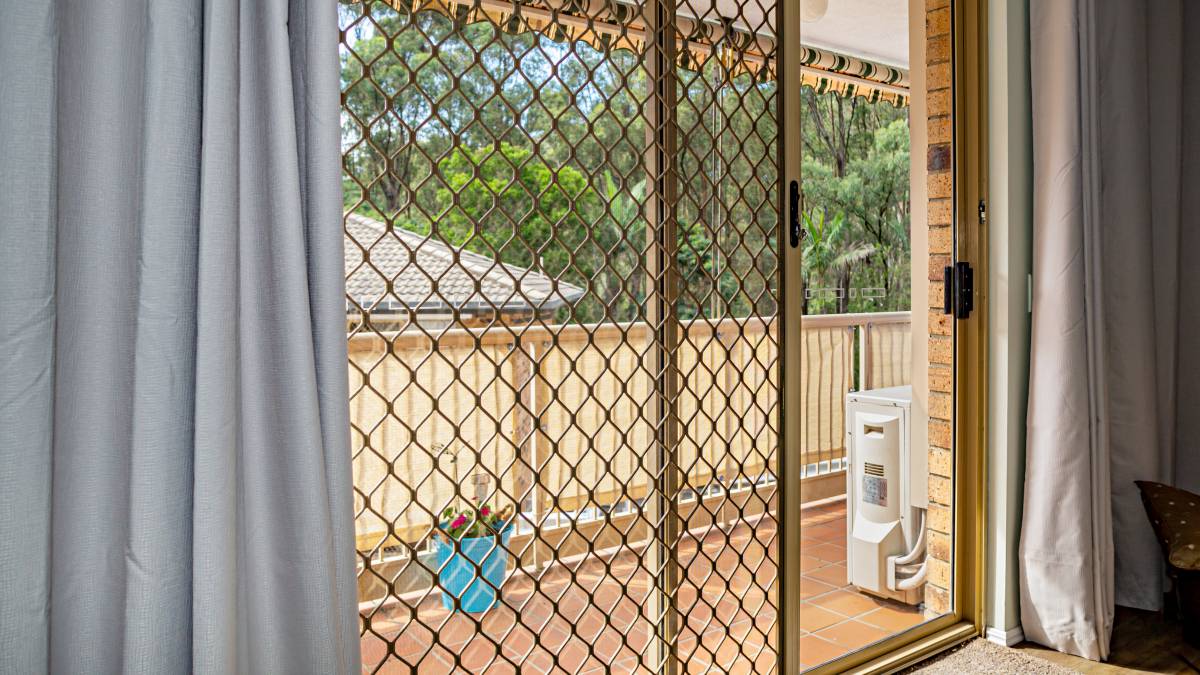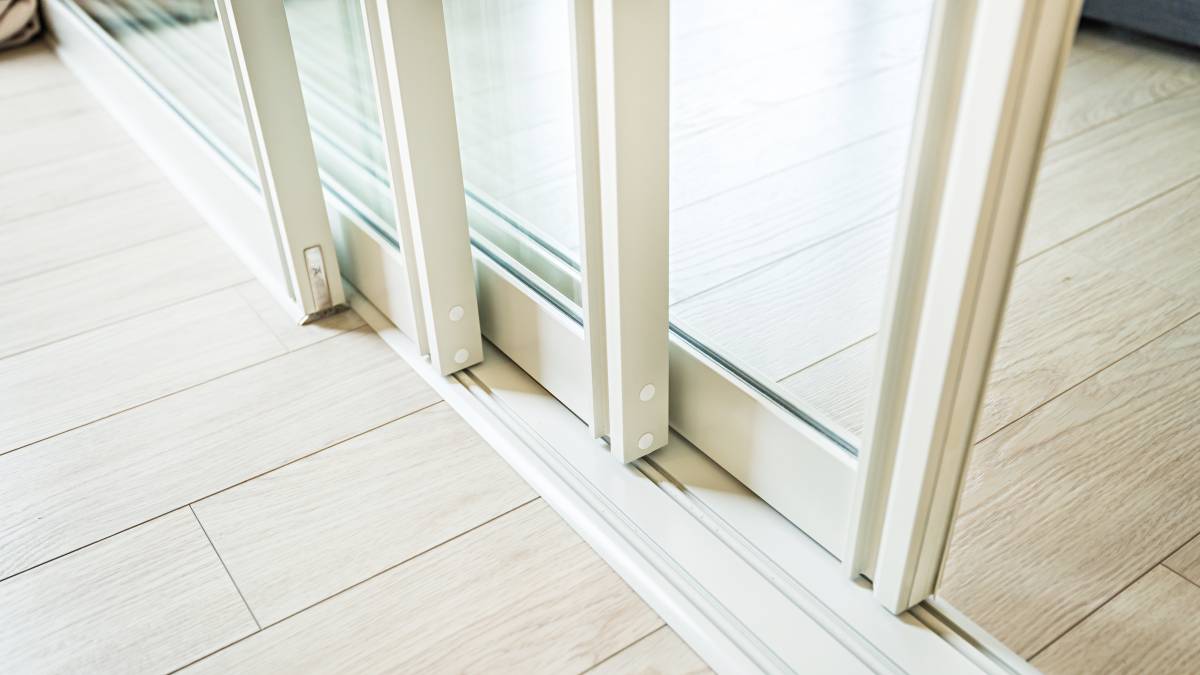- Home/
- Guides/
- Door Installation/
- How to Install a Screen Door
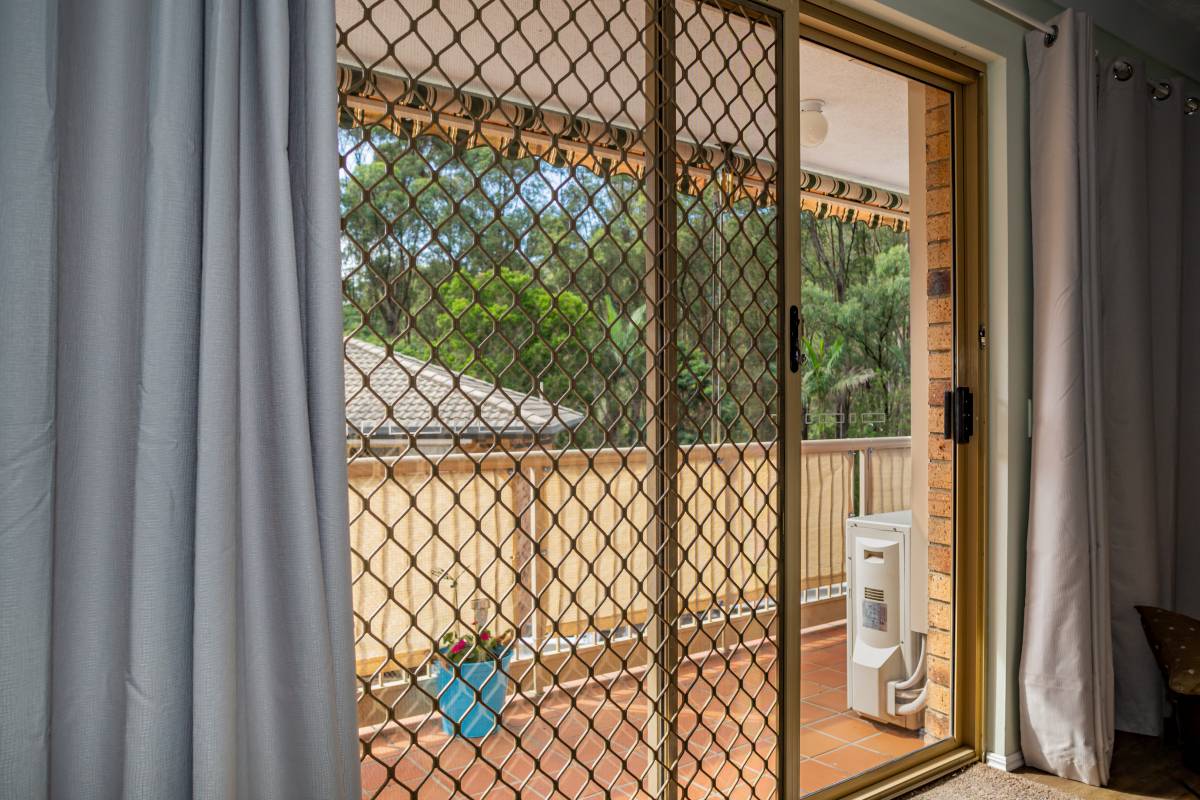
Install a screen door in 6 easy steps
Need help installing screen door? Learn from local handyman in our community!
Join Airtasker today!Last Updated on
Screen doors have many benefits, from improving the ventilation in your home to keeping insects and animals away from your family. When you pick one that matches your home’s aesthetic, it’s also a great statement piece at your front door.
Installing a screen door by yourself doesn’t have to be complicated as long as you follow our steps below. Read on to find out the steps and materials you need to accomplish the task.
Can I install a flyscreen on my door?
The materials used in flyscreen door installation can easily be bought from your nearest hardware. These can also be bought as kits, complete with external hardware and instruction manuals. If you are handy and have time to spare, you may opt to DIY.
However, the task can get more complex, especially when installing bigger security doors. If you need help and want to know how to measure and install a security screen door, get connected to a handyman around your area.
What you’ll need:
Screen door
Power drill
Shims
Pencil
Circular saw
Tape measure
Sanding block
Step ladder (optional)
A supportive family member (if available!)
Time of completion:
If you are handy and have vast experience in DIY work, you’ll need to set aside around 1 to 2 hours for screen door installation. However, if it’s your first time doing a home improvement project, it may take around 4 hours or up to one whole day to finish.
If you have limited time, it helps to ask for support from a family member especially in carrying the door, measuring, and putting the tools in place.
Step-by-step guide to flyscreen door installation
1. Measure your door frame
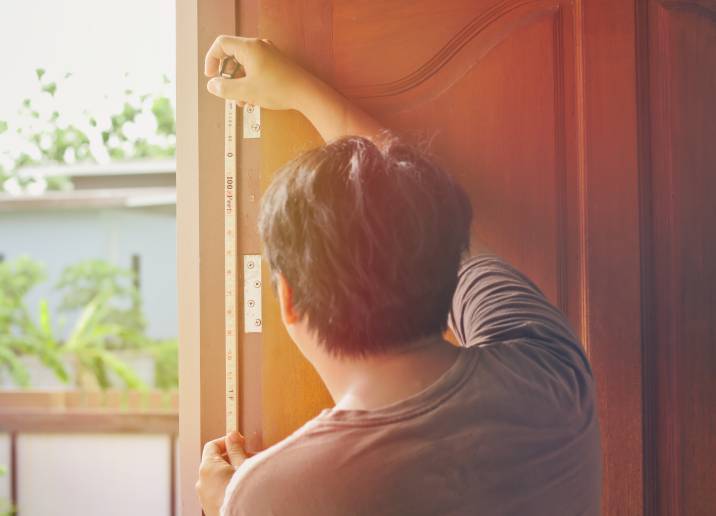
Screen doors are often sold in larger models that can be customised to fit your door. To select the right screen door for your home, you will need to measure your door frame using a measuring tape.
Get both the length and width of your door's top, middle, and bottom sections. It helps to think of these measurements as a grid in picking out the right door. If you are measuring a screen door for replacement, you may opt to get the length and width of your older screen door instead.
Take note when measuring the top section of your door, you may opt to use a step ladder for more convenience. Make sure to ask a family member to hold the base of the ladder in place to ensure safety and avoid injuries.
Step 2: Selecting a screen door
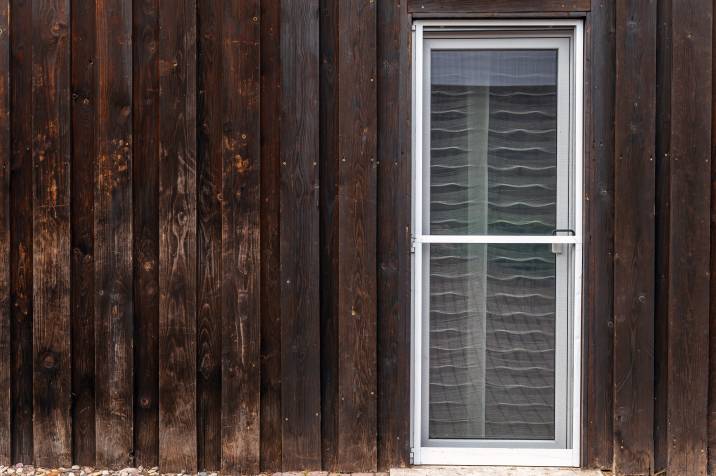
Screen doors are the first focal point of visitors when entering your home. Apart from its functional benefits, screen doors can be a statement piece for your home if picked out correctly.
In selecting what type of screen door you should choose, you must take into consideration the material that will complement and blend with your house’s exteriors. The frame is often made of wood, vinyl, aluminium, or steel.
Wood provides a more rustic, cabin-like feel to your home and can be stained or painted to a colour of your choice. Vinyl often comes in either white or black but is sturdier in the long run.
Step 3: Fitting the screen door
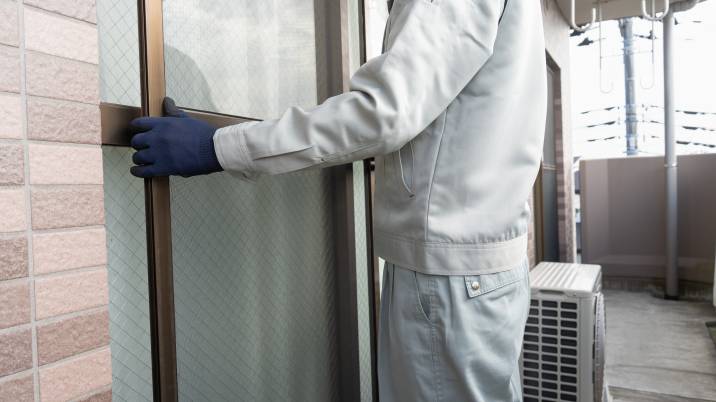
Once you’ve gotten the measurements of the door frame and have picked the perfect design, it’s time to fit your screen door.
Allot a 4.7625 cm distance from the screen door to the bottom, and a 3.175 cm gap from the top and on both sides of the screen door. To keep this in place, you may use shims. If there are any overlaps, use the circular saw to trim the edges. Smoothen the trimmed parts with a sanding block.
If you are wondering what way a screen door should open, designs are usually flexible and can open either way depending on your main door.
Step 4: Installing the hinges
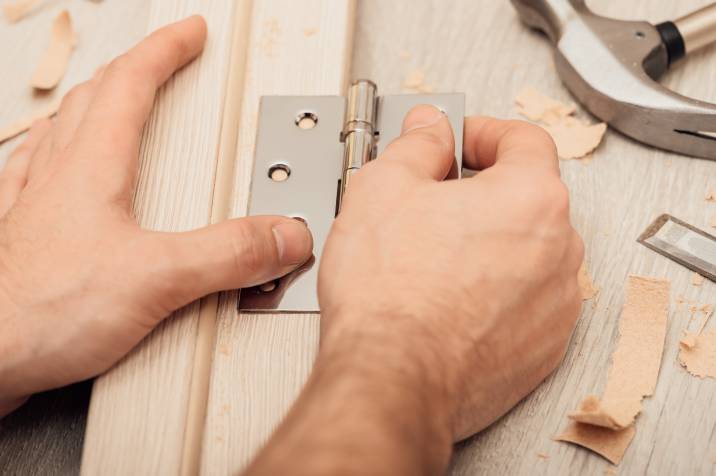
Once your screen door is set in place, you may now install the hinges. Use the hinges of the main door as a reference in placing the hinges of your screen door. Mark the location with a pencil then double-check if it matches the main door. Before drilling, make sure the screen door does not interfere with the main doors’ hinges or knobs.
If everything looks good, remove the screen door from the frame then use a power drill to put the screws in place. Start with the middle screw then work on the top and bottom screws. Only use hardware that is part of your door kit to ensure the materials are the right fit for your screen door.
After this, attach the screen door and the hinges to your door frame and open and close the door a few times to ensure the screws are tight and the door fits the frame. Make adjustments if needed.
Step 5: Installing the handle
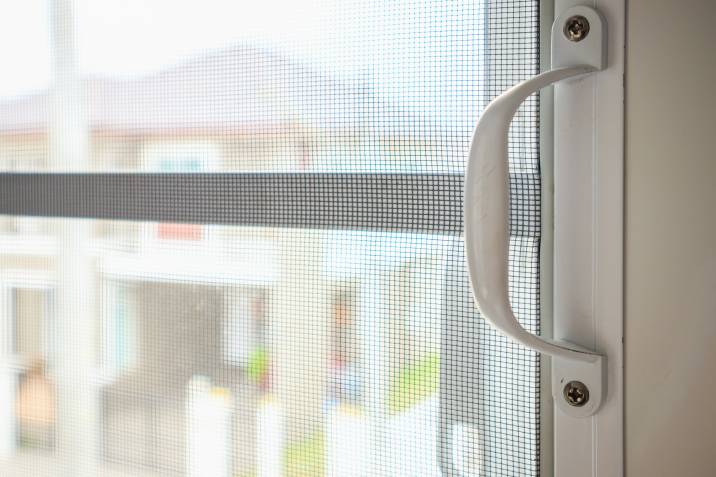
Some screen doors come with a pre-built handle while others allow for customization. You may opt for a different design or a different placing – higher or lower – depending on your preference.
Make sure the screen door handle doesn’t obstruct the main door’s handle. Mark the location for the handle then carefully drill the holes. Attach the hardware and make sure to follow the guidelines included in the kit.
Step 6: Checking the overall project
Open and close your door a few times to make sure the screws are tight and the door is sealed completely at the bottom. If there is a gap, you can buy a door sweep to keep out insects.
Invest in a flyscreen for your home
If this is your first DIY project, installing a flyscreen by yourself may sound daunting. If you don’t have enough time, and you’d rather someone with experience does it, you could hire a Tasker to get the job done. Save yourself from the stress and hassle—hop on to the Airtasker platform, and post a task today!
Frequently asked questions
There are three main types of screen doors: traditional, retractable, and slider. The traditional screen door is the easiest to install. Just measure, attach the hinges, put on screws, and you’re done. Retractable and slider screen doors are more complicated to install but provide a unique aesthetic to your front doors.
Flyscreen doors range from $150 to $500 while security screen doors are around $200 to $1,000 depending on the material.
Find door installers, fast
Find a door installer
Related articles
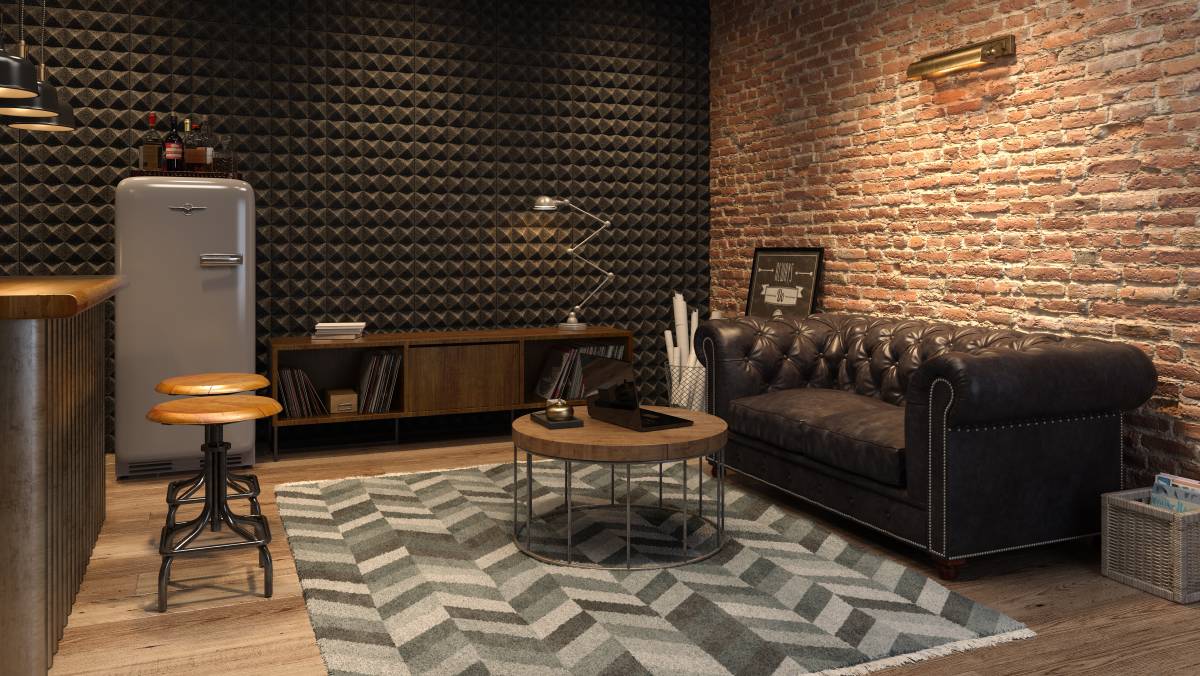
How to Soundproof a Room
Read more
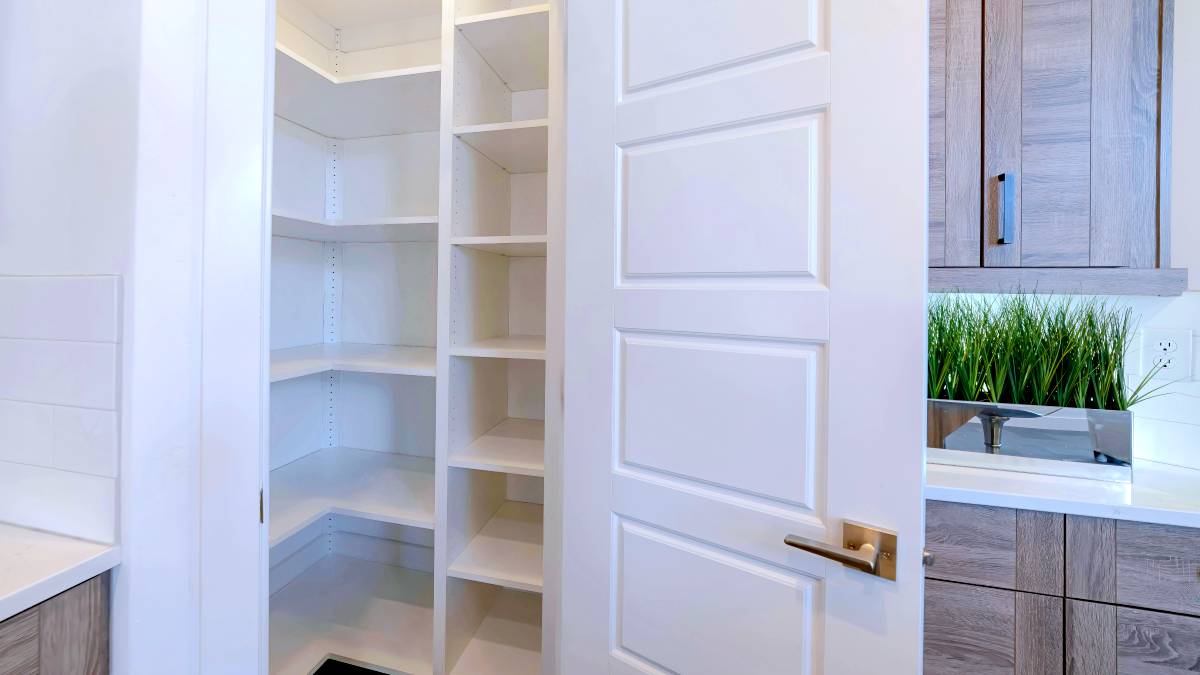
30 Eye-catching pantry door ideas
Read more
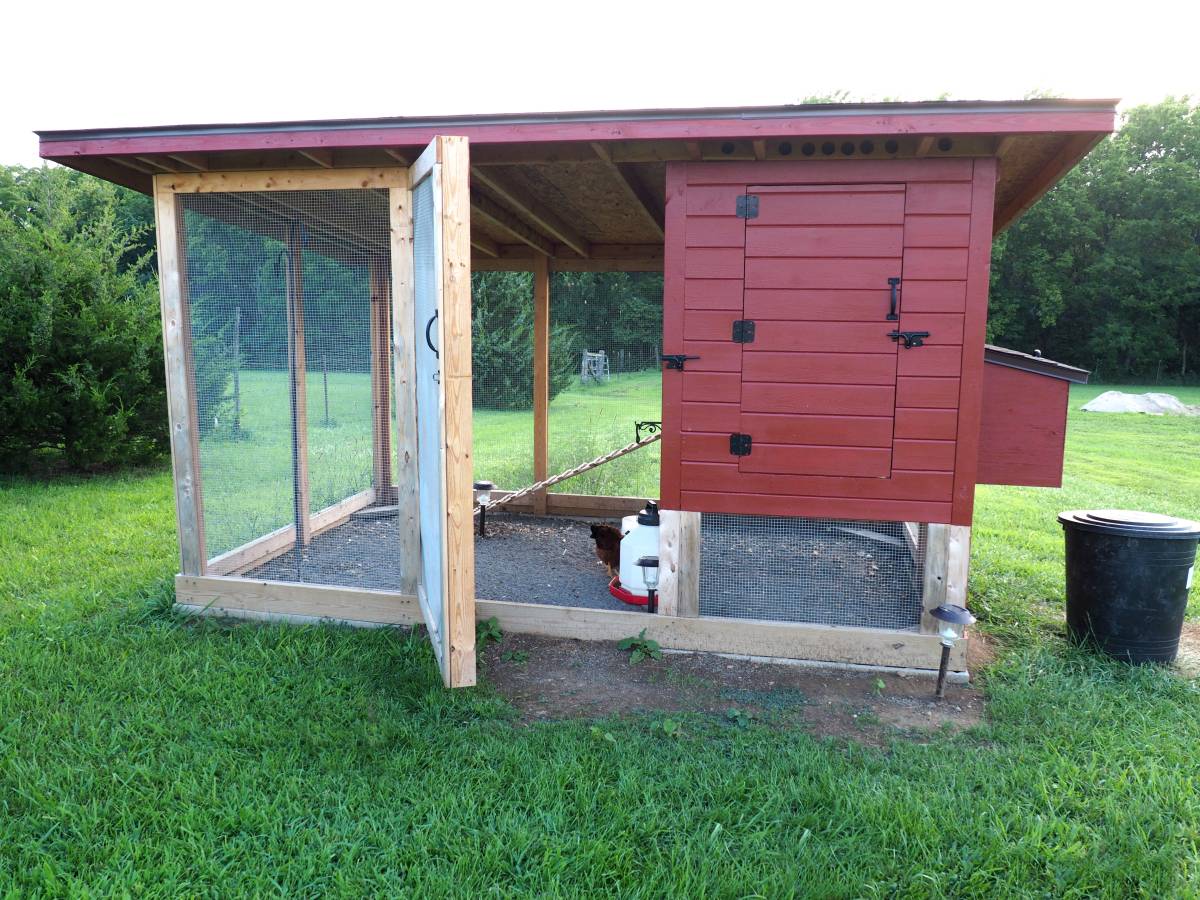
How to fox proof your chicken coop
Read more
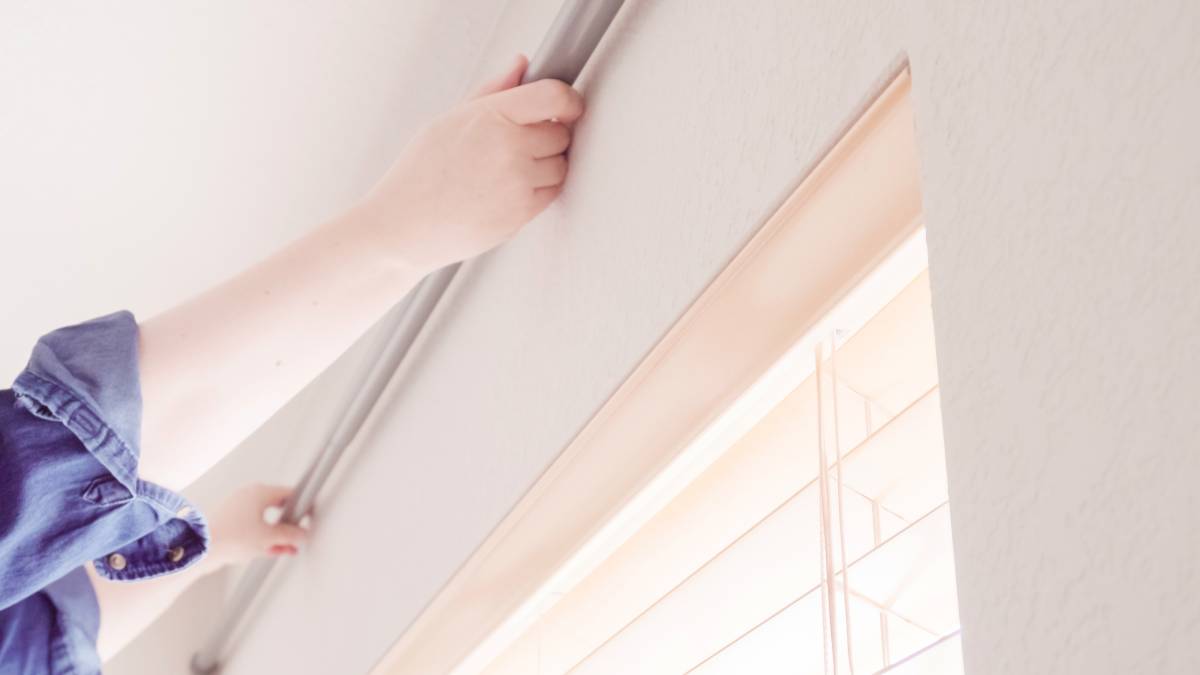
How to install curtain rods
Read more
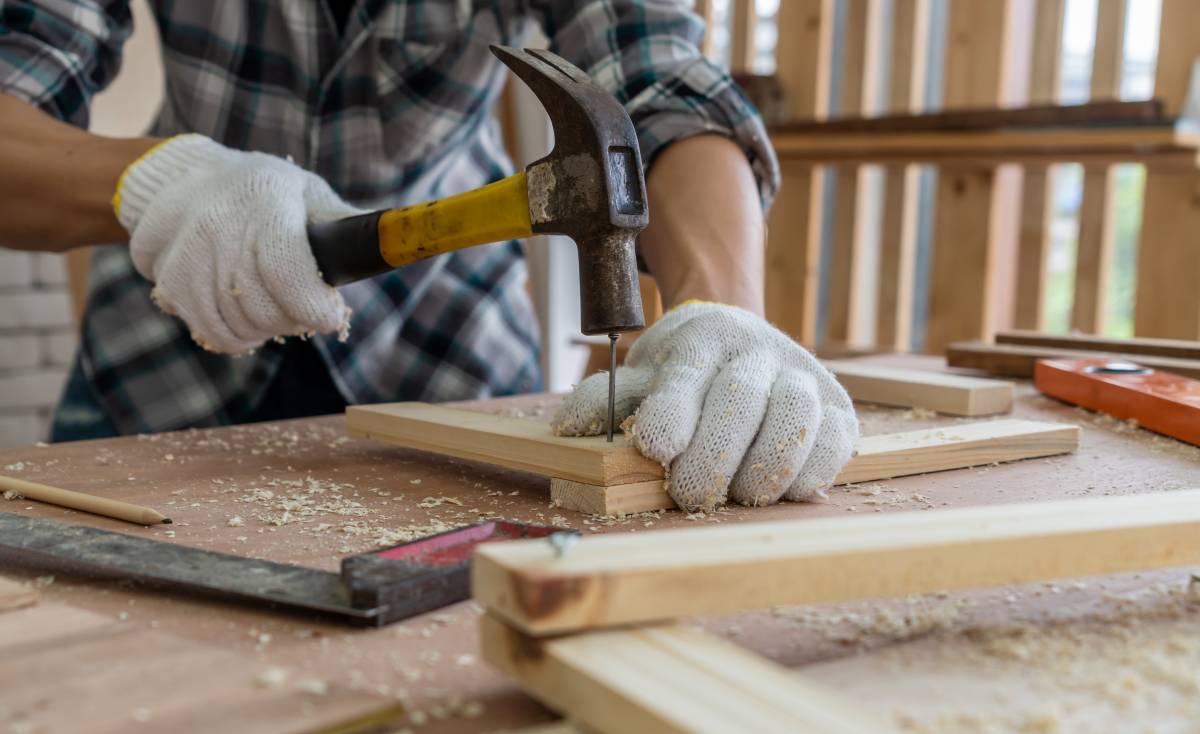
Best blue-collar jobs on Airtasker
Read more
Related price guides
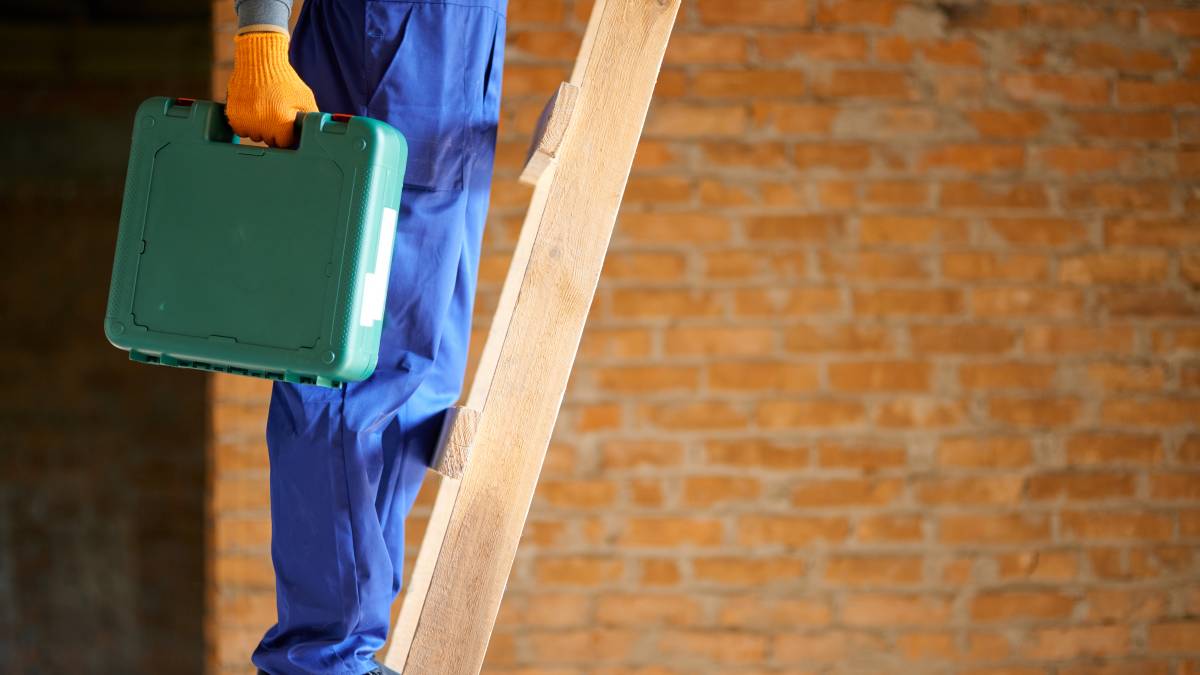
What are average handyman prices?
Read more
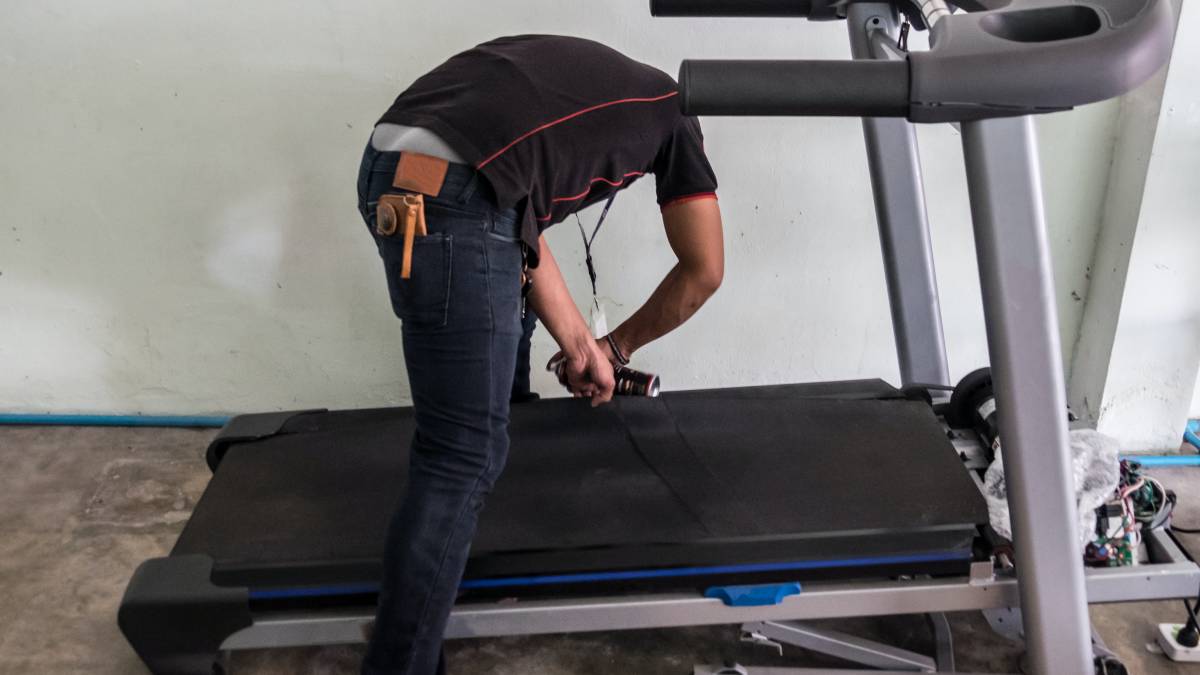
How much does treadmill repair cost?
Read more

How much does clock repair cost?
Read more
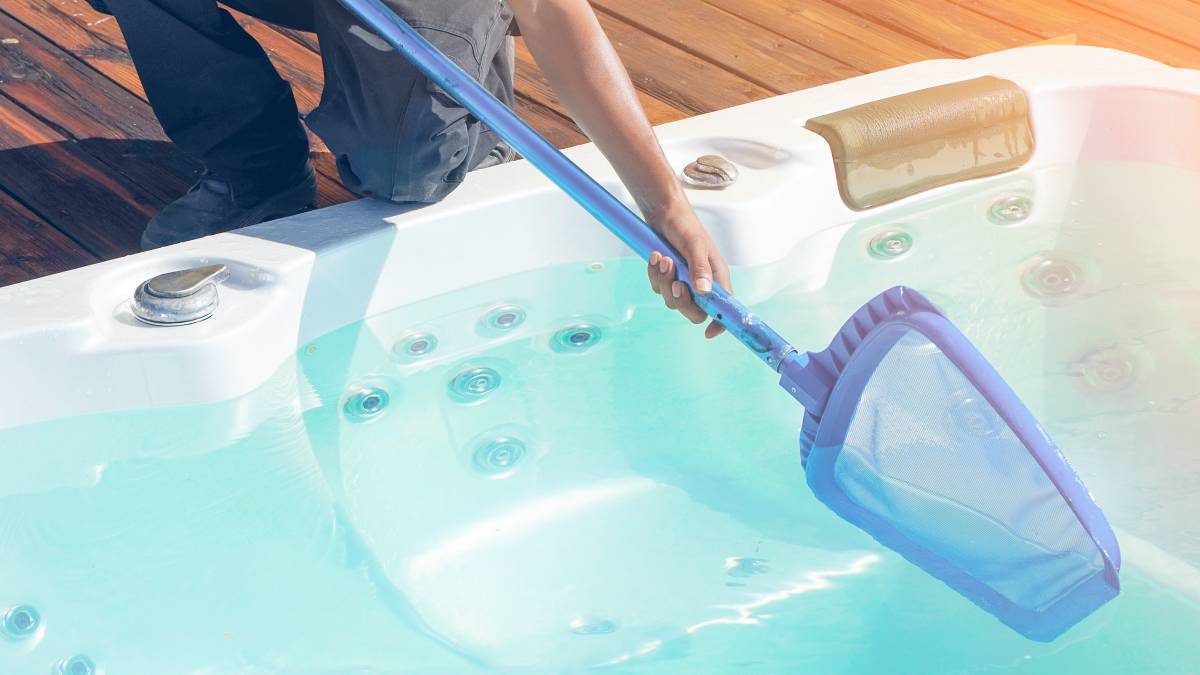
How much does hot tub repair cost?
Read more
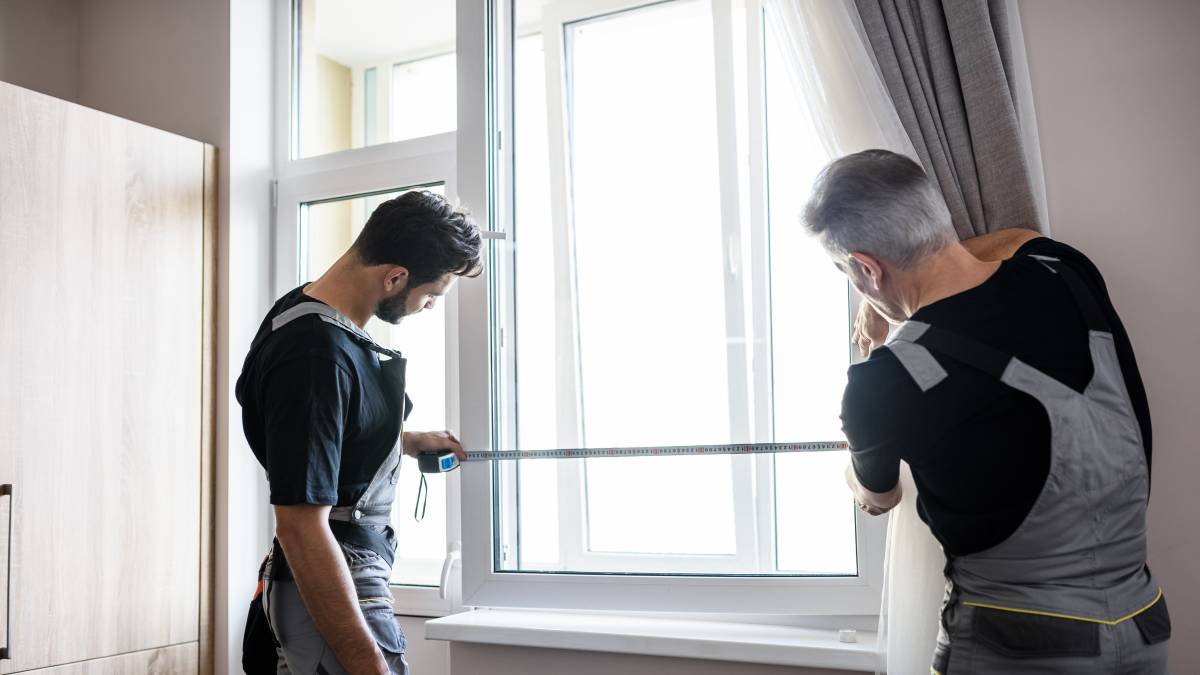
How much do roman blinds cost?
Read more
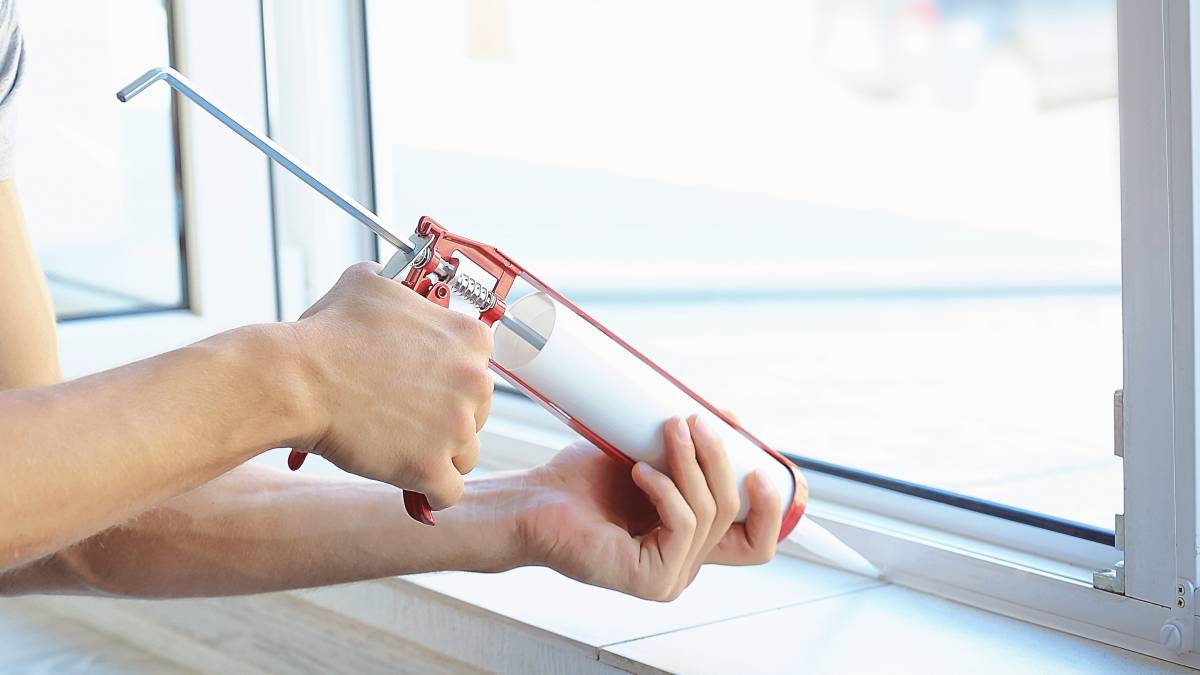
How much does window repair cost?
Read more

How much does signage cost?
Read more
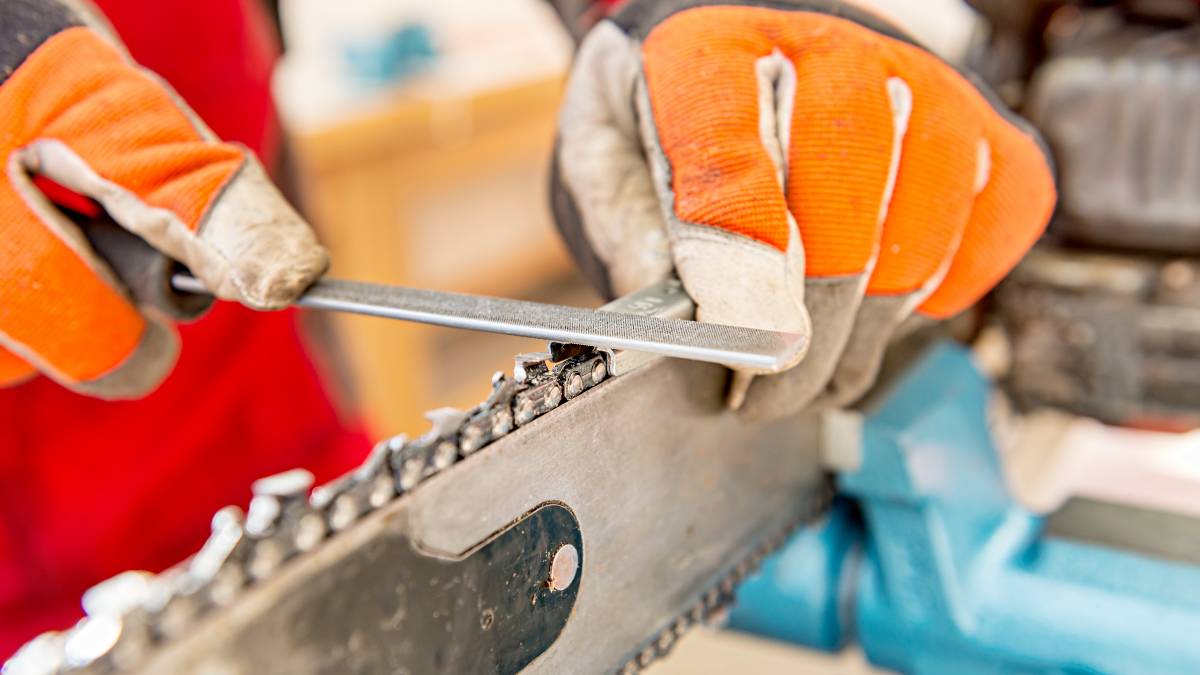
How much do chainsaw services cost?
Read more

